#possibly the best child actress in all of cinema
Explore tagged Tumblr posts
Text
finally watched the Fall (2006) and to be honest I am not okay about it.
#'Are you trying to save my soul' my man she SUCCEEDED.#possibly the best child actress in all of cinema#opposite Lee Pace??? like are you kidding me?#break my heart and then put it back together again why don't you#came out here to have a good time (aesthetic tumblr gif sets) and honestly -
3 notes
·
View notes
Text

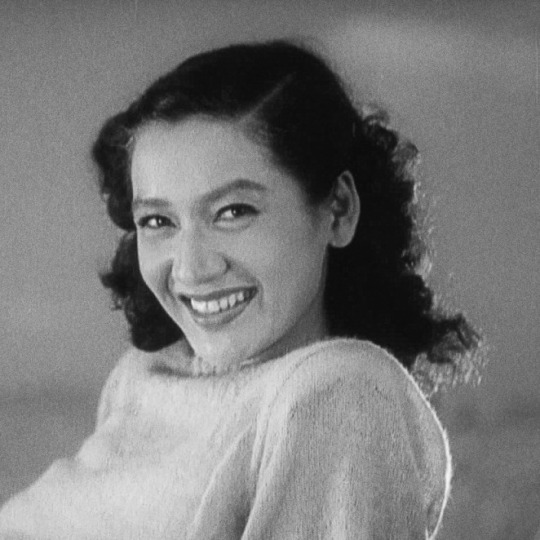
Propaganda
Elizabeth Taylor (Cleopatra, Who’s Afraid of Virginia Woolf, Cat on a Hot Tin Roof)—iconic actress with purple eyes and a double row of eyelashes, the real ebony dementia ravenway of old hollywood. known for her stunning tastes when it comes to jewelry and her incredible, incredible advocacy during the AIDS crisis.
Setsuko Hara (Tokyo Story, Late Spring, The Idiot)— "'The only time I saw Susan Sontag cry,' a writer once told me, his voice hushed, 'was at a screening of a Setsuko film.' What Setsuko had wasn’t glamour—she was just too sensible for that—it was glow, one that ebbed away and left you concerned, involved. You got the sense that this glow, like that of dawn, couldn’t be bought. But her smiles were human and held minute-long acts, ones with important intermissions. When she looked away, she absented herself; you felt that she’d dimmed a fire and clapped a lid on something about to spill. Over the last decade, whenever anyone brought up her lips—'Setsuko’s eternal smile,' critics said, that day we learned that she’d died—I thought instead of the thing she made us feel when she let it fall." - Moeko Fujii
This is round 5 of the tournament. All other polls in this bracket can be found here. Please reblog with further support of your beloved hot sexy vintage woman.
[additional propaganda submitted under the cut.]
Elizabeth Taylor:
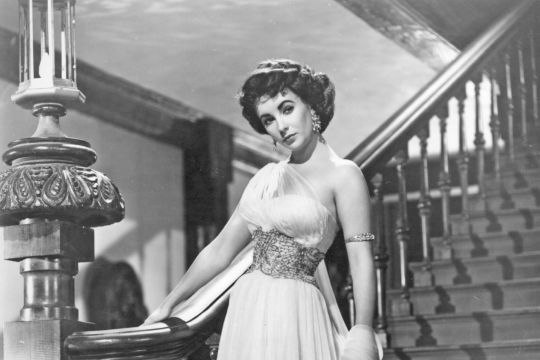
I've been trying to steer clear of the absurdly-big names, but damnit, those violet eyes got me. The *talent*, the *presence*, the string of marriages and (temporally out-of-bounds) work in combating AIDS and pioneering in the concept of the celebrity fragrance line.
Not only did she have gorgeous violet eyes and lashes for days and one of the hottest voices ever, she was also a big supporter of the gay community
Child actress turned starlet, Liz dominated films as one of the greatest screen legends of classic hollywood. If your protagonist has violet eyes, they're imitating hers.
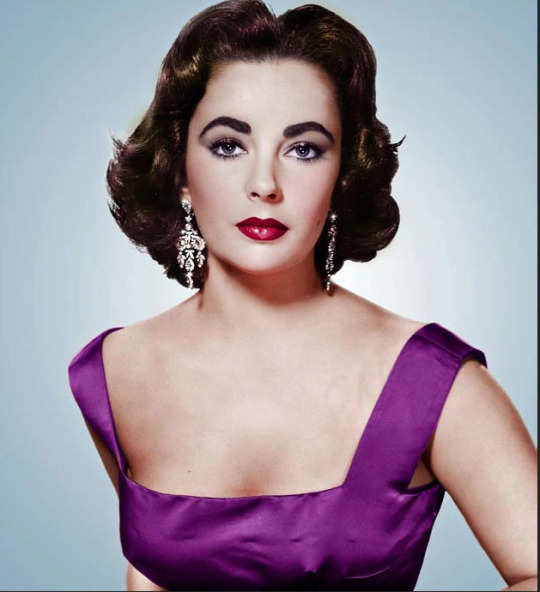
A Legend. She was serving milf rage in Whos Afraid Of Virginia Woolf. A Star in every sense of the word.
She was renowned for the beauty of her eyes; they were a dark blue but could look violet in certain lighting, something that photographers would actually touch up to look even more so in pictures. But even more striking was a genetic mutation that gave her a double row of eyelashes. She was also famed for her string of husbands -- 8 marriages to 7 men. Two-time hubby Richard Burton once said she was “a wildly exciting love-mistress… beautiful beyond the dreams of pornography.”
Her EYES. Early and loud support for gay rights and AIDS victims. Married a bunch of hot dudes, Burton twice!
just look at her. she's gorgeous. there's a video somewhere of her applying her eyeliner in the mirror and I think about it all the time
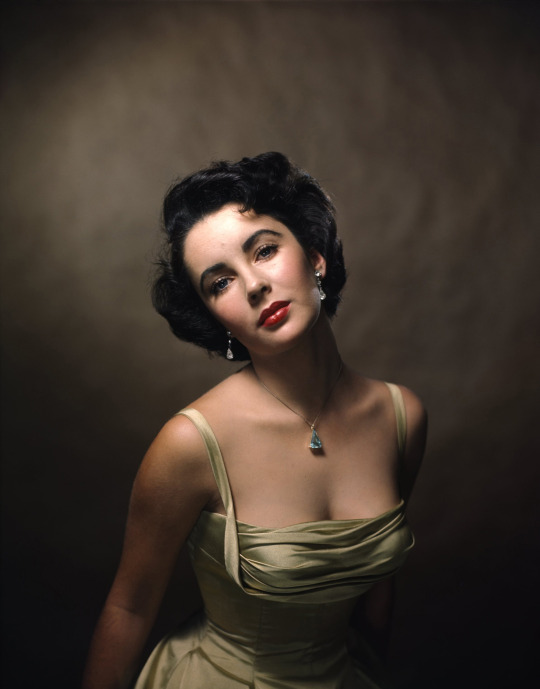
THE Hollywood actress of all time. Not only was she known for her long dark locks and blue-violet eyes, she also had one of the wildest life stories ever….. She’s Carrie Fisher’s stepmother because her father Eddie Fisher cheated on Debbie Reynolds with Liz. She was knighted as a dame of England. She was married to seven different men, one of them twice. She was also very kindhearted and did a lot of charity activism.
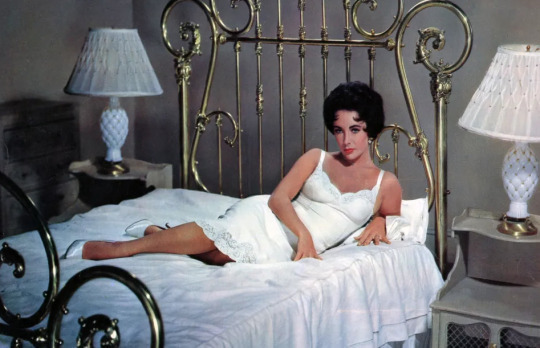
Asides from being an iconic actor, she did a lot of philanthropy and co founded the American Foundation for AIDS research. She’s sometimes considered one of the last great stars of old hollywood
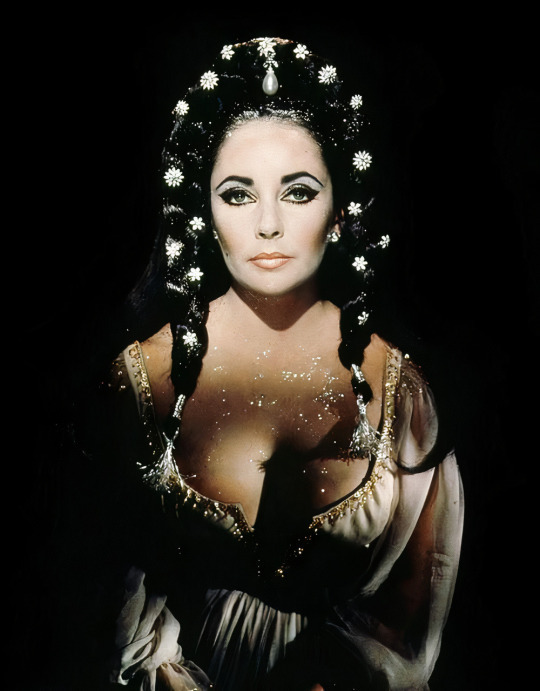
Setsuko Hara:
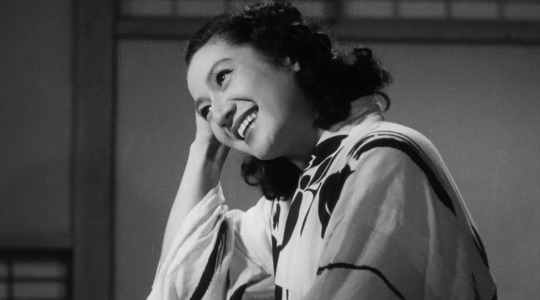
One of the best Japanese actresses of all time; a symbol of the golden era of Japanese cinema of the 1950s After seeing a Setsuko Hara film, the novelist Shūsaku Endō wrote: "We would sigh or let out a great breath from the depths of our hearts, for what we felt was precisely this: Can it be possible that there is such a woman in this world?"
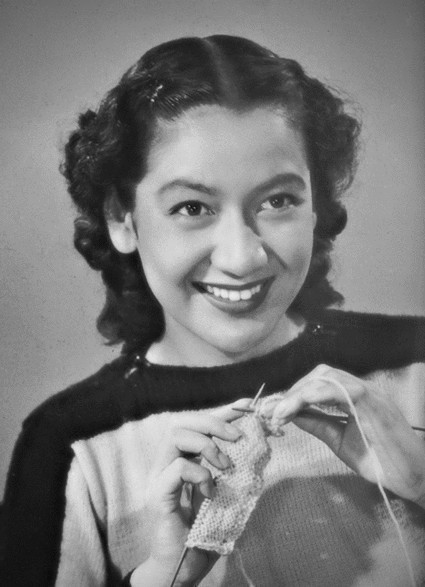
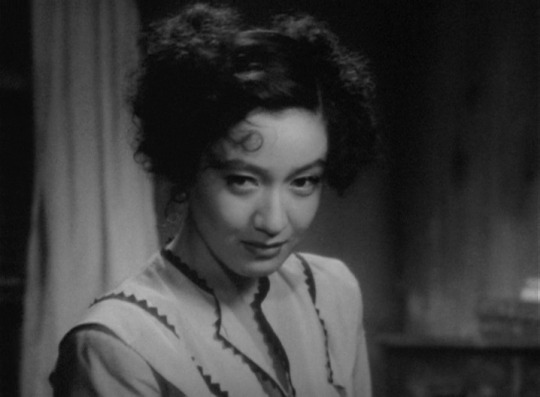
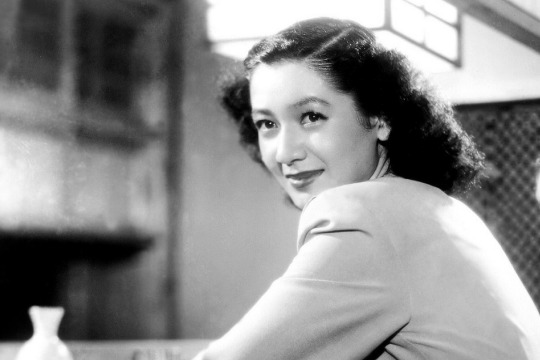
One of the greatest Japanese actresses of all time!! Best known for acting in many of Yasujiro Ozu's films of the 40s and 50s. Also she has a stunning smile and beautiful charm!
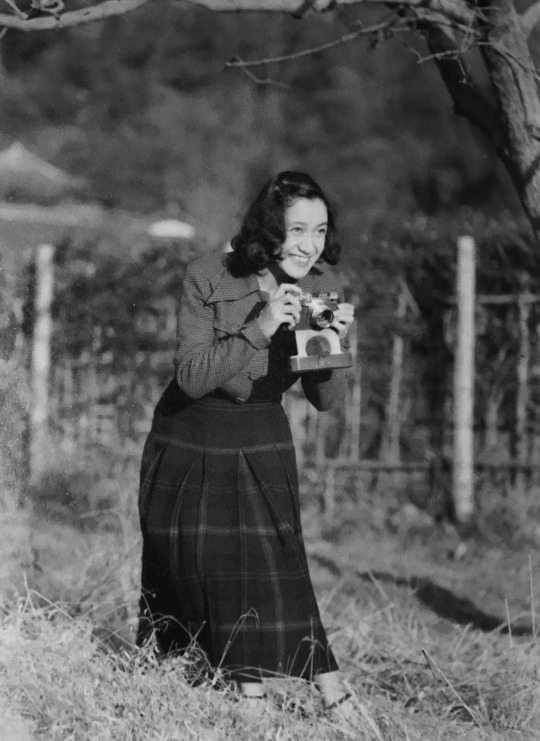
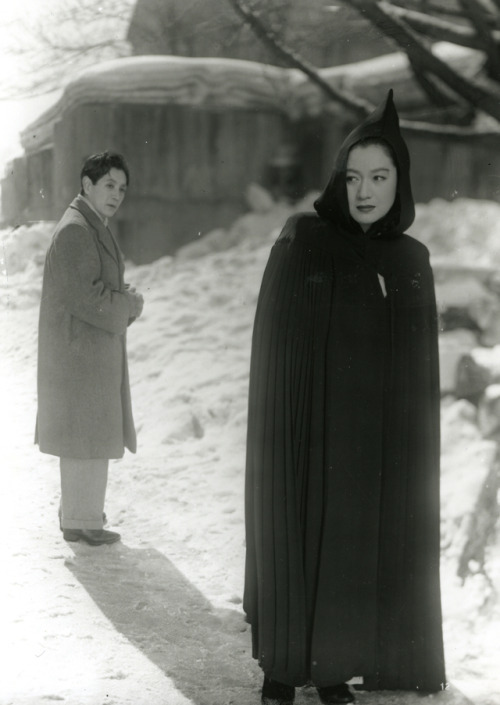
Linked gifset
Linked gifset 2
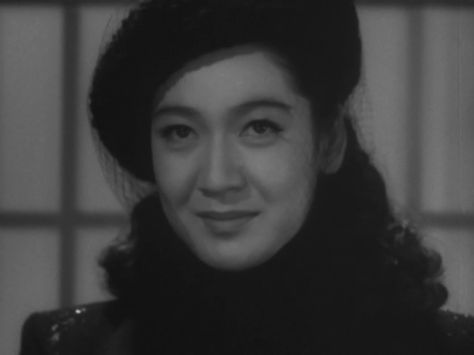
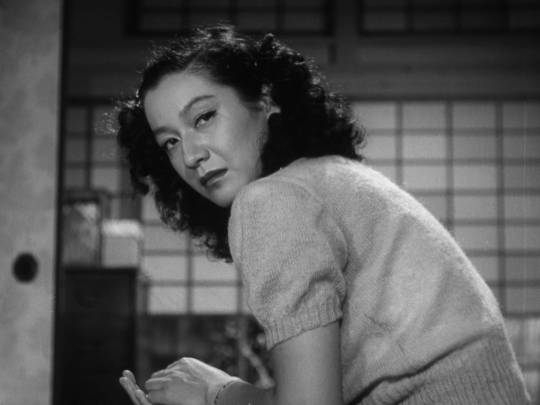
She's considered by some to be the greatest Japanese actress of all time! In Kurosawa's The Idiot she haunts the screen, and TOTALLY steals the show from Mifune every time she appears.
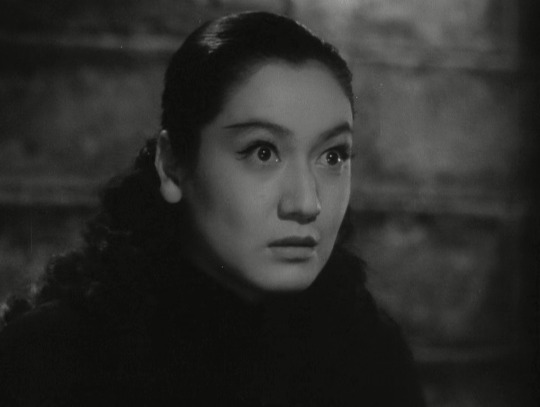
She's considered by some to be the greatest Japanese actress of all time! In Kurosawa's The Idiot she haunts the screen, and TOTALLY steals the show from Mifune every time she appears.
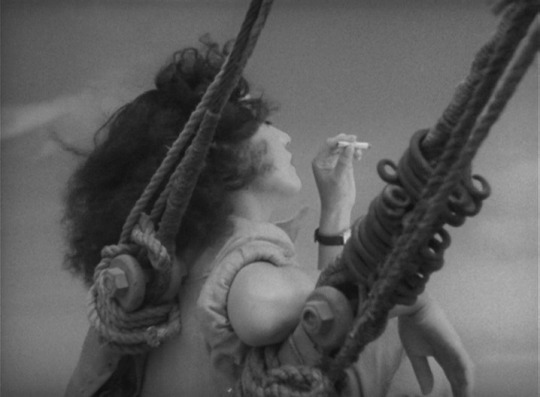
"No other actor has ever mastered the art of the smile to the same extent as Setsuko Hara (1920���2015), a celebrated star and highly regarded idol who was one of the outstanding actors of 40s and 50s Japanese cinema. Her radiant smile floods whole scenes and at times cautiously undermines the expectations made of her in coy, ironic fashion. Yet her smile's impressive range also encompasses its darker shades: Hara's delicate, dignified, melancholy smile with which she responds to disappointments, papers over the emotions churning under the surface, and flanks life's sobering realizations. Her smiles don't just function as a condensed version of her ever-precise, expressive, yet understated acting ability, they also allow the very essence of the films they appear in to shine through for a brief moment, often studies of the everyday, post-war dramas which revolve around the break-up of family structures or the failure of marriages. Her performances tread a fine line between social expectation and personal desire in post-war Japan, as Hara attempts to lay claim to the autonomy of the female characters she plays – frequently with a smile." [link]
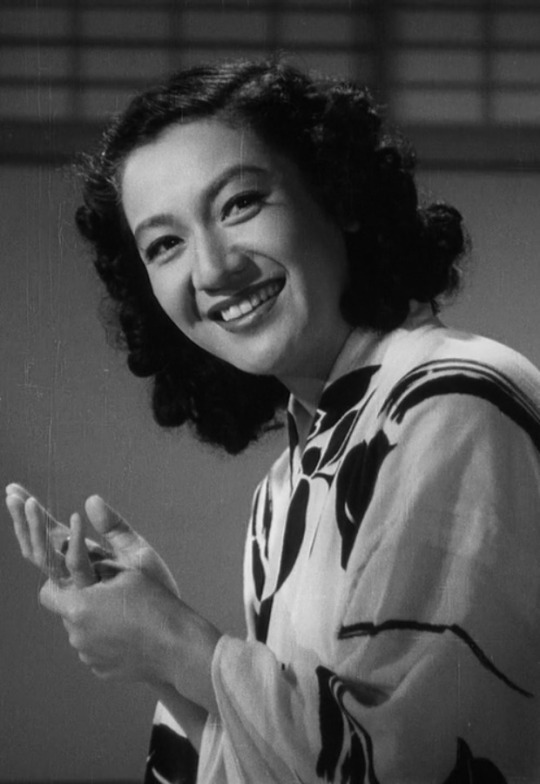
Leading lady of classic Japanese cinema with a million dollar smile
Maybe the most iconic Japanese actress ever? She rose to fame making films with Yasujiro Ozu, becoming one of the most well-known and beloved actresses in Japan, working from the 30s through the 60s in over 100 hundred. She is still considered one of the greatest Japanese actresses ever, and in my opinion, just one of the greatest actresses of all time. And she was HOT! Satoshi Kon's film Millennium Actress was largely based on her life and her career.
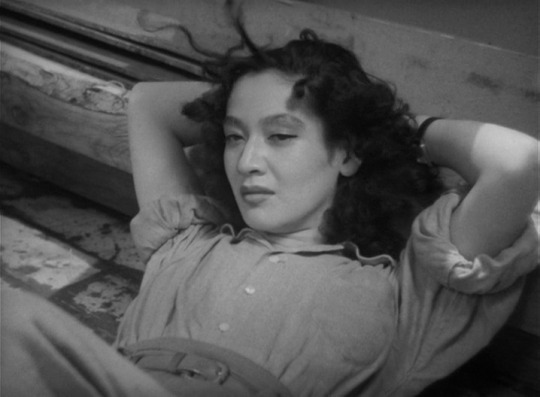
239 notes
·
View notes
Text
Bhumi Pednekar says, “We wish Bhakshak would create more awareness about child abuse”
In director Pulkit’s hard-hitting sophomore feature film Bhakshak, which streams on Netflix from February 9, Bhumi Pednekar brings to life the role of a Patna-based television journalist who blows the lid on a child-abuse racket in a shelter home in Bihar.

Speaking of her compelling portrayal in Bhakshak, Bhumi said, “This is probably my best, along with Sonchiriya. I am trying to do the best work possible, given the restrictions in our cinema where strong roles are hardly written for women. When the director Pulkit, who has written the script with his wife, came to me with Bhakshak, I was stunned.”
The real incident that happened in the town of Muzaffarpur in Bihar was, of course, known to Bhumi. “I had read about the mass abuse of underage girls in Bihar. But after I came on board for Bhakshak, I read up more details, they are in the public domain. It was horrifying beyond words. And it continues. It recently happened in Thane. We wish Bhakshak would create more public awareness about child abuse.”
The actress who has over the past five years acquired a reputation for quality cinema is all praise for her director. “I like working with new directors. They are filled with enthusiasm passion and dedication. The way Pulkit has shot Bhakshak, the production design and technical finesse… it is mind blowing.”
Bhumi revealed that many real-life names had to be changed. “Sadly, we had to change some of the place names and names of real persons for legal reasons. The place where the gruesome crime happens in a shelter home is Munnawarpur. Do you know we didn’t shoot the film in Patna and Bihar? We shot it mainly in Lucknow,” she revealed.
#Aditya Srivastava#Bhakshak#Bhumi Pednekar#Bollywood#Features#Netflix#Netflix India#OTT#OTT Platform#Pulkit#Red Chillies Entertainment#Saie Tamhankar#Sanjay Mishra#bollywood hungama
0 notes
Text

Caitríona Balfe has already received a Best Supporting Actress BAFTA nomination for role in Belfast
'Whatever happens, she'll still be Caitríona' - Monaghan actress tipped for Oscar nomination
It is a long way from the Drumlins of Co Monaghan to the Hills of Hollywood, but Caitríona Balfe has made that journey and is now tipped to get an Oscar nomination for her role as 'Ma' in Belfast.
Nominations will be announced tomorrow.
The former model and proud Monaghan woman has had a whirlwind few months with the success of the Kenneth Branagh directed film, Belfast, which is based on the Troubles.
Only last week the 42-year-old received a BAFTA nomination for Best Supporting Actress in the movie.
"We’re so proud of her and she's worked so hard. She started in Dublin, went to Paris, then London and then on to New York," explained her mother Anne.
"Growing up, she never talked about acting. But she was always taking off people. She used to do a great impression of Margaret Thatcher," said her father Jim.
"She also did a good impression of the MEP, Mairead McGuinness," Anne said.
Caitríona enjoyed school and like many teenagers her age made the annual summer trip to the Gaeltacht where she made lots of new friends.
"She did a lot of singing, drama and dancing there. I found a notebook a few years back, which I shouldn't have got rid of and some young lad said, you’ll make a great actor or model in the future, and I got rid of when I was throwing out old stuff," said Anne.

Jim and Anne Balfe at their home in Tydavnet, Co Monaghan
Caitríona went to secondary school at Beech Hill College in Monaghan. She was involved in cross country running.
Her parents said while she was good at school, she was a "scamp at the same time" and kept them on their toes.
"We are so proud of her and we wish her continued success. I’ve seen the movie Belfast and I hope some day she’ll come visit us here," said Tony McHugh, Assistant Principal of Beech Hill College.
Anne Costello was Caitríona's art teacher. She recalls an enthusiastic and bubbly teenager.
"She was always very confident and so talented. She had such potential, so I’m not surprised she’s done so well. We’re delighted to see it," said Ms Costello.

Caitríona (Centre back row) at Beech Hill College, Monaghan.
"We’re really proud of her. It’s great for our students to see and this will really motivate them," said Mary Gill, another former teacher of Caitríona’s.
Caitríona has had massive success with the hit series Outlander - where she plays Claire Fraser - a historical TV drama which is huge in the US and in Australia.
"Since she started acting, she’s worked hard. She does a lot of preparation. The first year she was doing Outlander, she was living in Scotland, she didn’t know anyone except for the cast and crew. Work, eat and prepare for the next day, that was it for the first 12 months. So, she has put in the hard work, and it pays off," explained her mother.
The success of the film Belfast, which is set during the Troubles, has got everyone talking. Directed by Kenneth Branagh, it also stars Jamie Dornan, Judie Dench, Ciarán Hinds and 12-year-old Jude Hill.
"She doesn’t get carried away. She has her baby and her husband, Tony and they’re number one," her dad said.
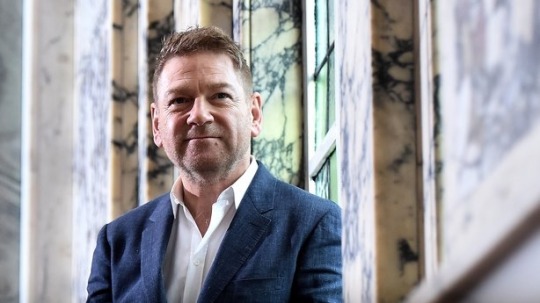
'Belfast' director, Kenneth Branagh
The film, which is in Irish cinemas now, is seen through the eyes of a child and tells the story of a difficult time in Irish history. There’s much hype about it with lots of talk about Oscar nominations.
"We were talking to her last week and she’s so busy. She had ten different journalists from several different countries all doing interviews with her one day. She was worn out from it," said her dad.
"Although she's sitting at a pool now and it’s 23 degrees, so it's not too bad," he laughs.
"When she was home in November, we talked about it. If it comes well and good, and if it doesn’t, what about it," said Jim.
"Even the possibility of it, it's a big thing," said Anne.
"Whatever happens, she'll still be Caitríona, and we'll be glad to see her the next time she gets home," she added.
https://www.rte.ie/news/ireland/2022/0207/1278216-caitriona-balfe/

Sinéad Hussey, North East Correspondent, talks to the parents and former teachers of Caitríona Balfe.
Audio 🎧 in link ⬇️
https://www.rte.ie/radio/radio1/clips/22059528/
Remember… she doesn’t get carried away. She has her baby and her husband, Tony and they’re number one. — Jim Balfe
#Tait rhymes with hat#Good times#BelfastMovie#Interview#RTÉ News#RTÉ Radio 1#Podcast#7 February 2022#Belfast#Worldwide 2022#Thanks castlemaine123#Thanks krisrose16
65 notes
·
View notes
Text
Ita Rina
First and Forgotten Yugoslav Film Star who provocated Gestapo
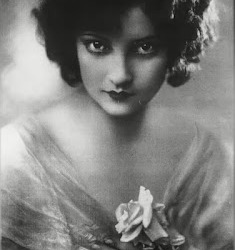

Ita Rina was born on 7 July 1907 in the small town of Divača (then Austro-Hungarian Empire, later Yugoslavia, now Slovenia) as Italina Lida Kravanja. She was called Ida Kravanja for short. She was named after a journalist Finzi Haydée, Jewish family friend from Trieste. The first daughter of Jožef a railroad worker and Marija Kravanja, Rina had a younger sister Danica. Shortly after the outbreak of the World War I, the family moved to Ljubljana, where Rina matriculated in 1923. She was not a good student; she repeated the third grade of elementary school. However, her dream was to be an actress.
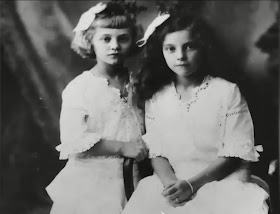
In October 1926, Slovenski narod (Slovenian People) magazine organized a beauty pageant, and Rina entered the competition. She was crowned Miss Slovenia and was to travel to the final event for Miss Yugoslavia, which was supposed to be held on 20 December 1926 in Zagreb. However, her mother did not want to let her go to Zagreb. After a group visit from the Slovenian delegation, Marija Kravanja relented. Unfortunately, when Rina arrived in Zagreb, the jury was already choosing the most beautiful of three finalists. She was, however, noticed by Adolf Müller, the owner of Balkan Palace cinema in Zagreb. He immediately sent her photographs to German film producer Peter Ostermayer. As her mother did not want to let her go to Berlin, Rina ran away from home.
Her escape was enabled by a family friend, a painter Alojz Malota and his wife Hedvig Šarc. They invited her to come with them on a trip to Austria, and instead she went to Berlin. She has said that she felt very lonely and scared during the train ride and thought about returning home.
“That was my longest and hardest journey. I huddled myself in a corner of a coupe and looked around myself in fear. I only knew few words in German...”
Rina arrived in Berlin in 1927. Shortly after she had her first audition, following which she had classes in acting, diction, dancing.
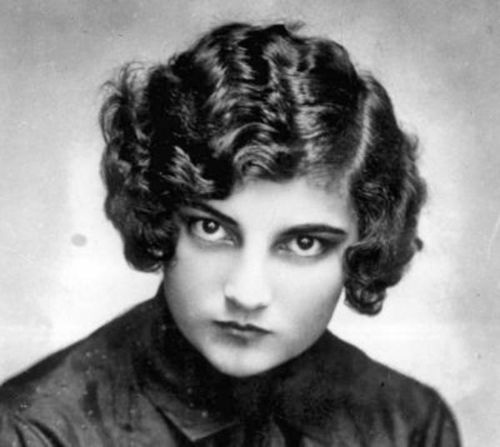
"They would shine a spotlight on me" she later said "cameras would buzz. There were cables everywhere. Some complete strangers would stare at me, whispering amongst themselves. They told me to scream, to laugh, wave and cry. I think I looked most natural in scenes where I was crying. All I had to do was remember how far away from home I've gone and how I've deceived my mother."
"You don't know how to walk!" a director was yelling. I've dedicated all my strength on walking as gracefully as possible, and I thought to myself "how's it possible that I, who have climbed Triglav thrice, all of sudden am incapable of walking." I must admit, first few steps on film were harder than any danger definitely mountaineering.
After several small film roles in 1927 and 1928, the critics finally noticed her in the 1928 film The Last Supper. The same year, Rina met at a Yugoslav embassy party, her future husband Miodrag Đorđević, a shy engineering student from Belgrade, son of a general director of the Royal Post Office.
He asked her out to dinner in a little more upscale restaurant. What he would find out later is that his students account was not enough to pay for the meal. He went to the phone in an attempted to call a friend who could lend him money. Ita figured out what was going on, and since she was already rich, secretly passed him a few bank notes, to spare him the embarrassment. She always liked him, and they understood each other well.
Around that time newspapers in Yugoslavia started to sensationalize her love life, as a counter she published an open letter.
Cenjeni g. urednik!
Vsikdar sem bila ljubeznjiva napram g. dopisniku Vašega lista. Želela sem na ta način izražati simpatije, ki sem jih gojila do “Vremena”. Toda nežentlementski dopis Vašega dopisnika od 15. t. m. je zlorabil to mojo ljubeznivost in me prisilil, da Vas naprošam zaradi istine za uvrstitev naslednjih vrstic: Prišla sem domov na oddih, da se pripravim za bodoče delo, ne pa da se zaljubljam kakor goska. Zaradi tega ne potrebujem nikakih senzacij, zlasti pa ne senzacij, ki gredo preko meja dopustnega. Čudim se prostosti, ki si jo jemlje g. Ambrož, da izmišlja kar imena mojih idealov. Prava senzacija bi bila šele, ko bi g. Ambrož nekoliko srečneje uganil moje ideale. Kar pa piše g. Ambrož, je bilo doslej meni in vsem mojim znancem docela neznano. Odpotovala bom tedaj, ko me pokliče novo delo. Senzacijonalni odhod avtomobilov itd. je prosta glupost.
Da končam. Žal mi je, da se je edini g. O. Ambrož smatral za najpametnejšega od vseh tukajšnjih novinarjev in da je segel po tako nehvaležnem poslu. Naši javnosti je treba servirati resnico o mojem delu in moji osebi, ne pa glupih izmišljotin. Prejmite g. urednik izraze itd.
Ita Rina.
Her breakthrough into European stardom came after taking a role in a controversial film Erotikon by a Czechoslovakian director Gustav Mahaty. As soon as she read the script about a seduced and then abandoned daughter of a guard of a railroad station, she understood it as her big chance, and she was right.
Erotikon premiered in Prague. Czechoslovakian censors cut out the scene of her giving birth to a child, but the movie garnered great success with film critics and audiences across Europe. At the premiere in Paris in Moulin Rouge and the film goers carried her out of the theatre on their hands.
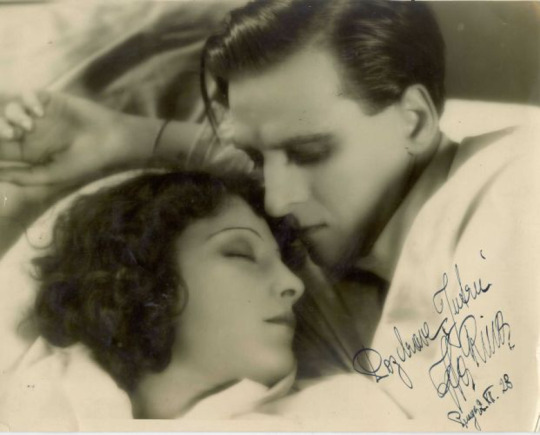
The films success angered the puritans. Especially the french catholic theologian, abbot Betteleme who wrote: "... First, they lie next to each other, and then one to another ... It is true that the cover hides their figures, but it certainly does not hide their movements... The protagonists are shown in particularly long shots, especially Ita... A viewer can recognize her excitement, then her expression of anxiety mixed with longing, then the pain and at the end... I blush while describing the scenes". He went though streets of Paris tearing down the posters that were plastered all over. That only raised the popularity of the film.
In 1930, Rina acted in three films, most notable being the first talking Czechoslovakian film Tonka of the Gallows, which is often named her best role. Meanwhile, she married Miodrag Đorđević in 1931. Although she had announced her retirement from her film career, but she actually continued her acting until the outbreak of World War II. Her last prewar film was crime drama Zentrale Rio.
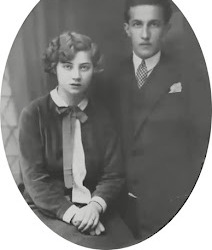
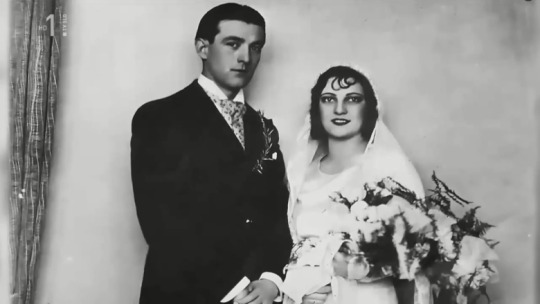
The situation in Germany was getting tense, especially for anybody who was considered undesirable which included actors who were foreign. She left Germany on the insistence of the then ambassador of Yugoslavia Ivo Andrić. In 1939, very close to the start of WW2 every time she went to work or went home, there was a man who sat in the car. In the beginning he was very quiet and she thought he was an assistant of the producer and that he might represent some new custume, a way of saying thanks to the actors. And then he spoke. At first there were talks of the superiority of the German race, but later his changes because more apparent. "I argued with him in that car" she told to the operator in the studio and retold him the whole conversation. "How could you have dared, that man is from Gestapo." said the operator. The story was retold to Ivo Andrić, and he ordered her and her husband to urgently leave Germany. The taping of the film was mostly done. That night they packed all of their belongs. In the morning she taped a few leftover scenes and absconded for Belgrade that same day.
"Only on the road I understood what's going on. Tanks everywhere, soldiers."
They went to live in Belgrade. She didn't act as the war was starting to rage and had her first child Milan in 1940 and thee years later a daughter Tijana. Her in-laws disagreed with the marriage to a controversial actress at first. And they had a permanent table for themselves and their friends at the local tavern.
After the bombing of Belgrade they moved to Vrnjačka Banja. Life during wartime was hard and she laboured and sold all of her possessions to keep family fed. She even rescued her husband from jail where he landed after he, in a tavern proclaimed that Hitler will have the same fate Napoleon did in Russia.
They moved back to Belgrade after the end of World War II in 1945. Although she was promised several roles in Yugoslav films, all projects were cancelled and she was treated unfavorably. After receipt of a letter she had written to President Tito, Rina began working as a co–production advisor in Avala Film. But she soon left Avala Film and moved to Lovćen Film.
She returned to the silver screen once, in the 1960 film War, about nuclear war fallout, directed by Veljko Bulajić. This was her last role. She got her role not though a studio, but through her husband asking nicely.
“Before the shooting of the film War began, I was approached by a very likable gentleman, that was the husband of Mrs. Ita Rine Miodrag, and in a very discreet, shy way, asked if we can talk and during that conversation, suggested to cast Ita. Honestly speaking, I have already completely forgotten about her. There was war, and they she didn't work for a very long time. She wasn't listed anywhere in cinematography as an active actress. I remembered her from her films. I suggested we meet. So we met, I don't know where in Zagreb or Belgrade, I cannot remember, but she impressed me. She made a strong impression, of a smart woman, an actress who didn't want to be in a film for no other reason, but to be filmed. She wanted to know about her role. I really liked that, so we made a deal.”
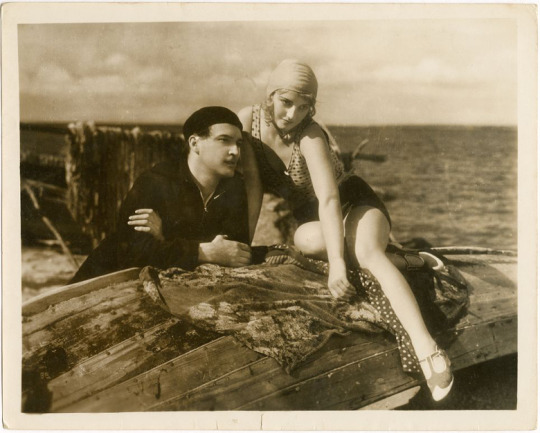
As she suffered from asthma, Rina and her husband moved to Budva (then Yugoslavia, now Montenegro) in 1967. There, she took care of her husband, who was ill with sclerosis. Rina died on 10 May 1979 from an asthmatic attack during the great earthquake that leveled the capital of Montenegro. She was buried a few days later in Belgrade, in the presence of numerous film artists, admirers, friends and family. Her husband died next year.
Best source is in Slovene here:
#ita rina#slovenia#german cinema#european cinema#20s#fritz lang#german expressionism#1920s#1930#Yugoslavia#natache
67 notes
·
View notes
Link
There’s a moment that every child who aspires to movie stardom dreams about. They practise it in front of the mirror: graciously thanking their parents, their first drama teacher, their favourite hamster; smiling; waving; trying valiantly to cry. No, it’s not an Oscar’s acceptance speech – at least, not anymore; it’s the moment that super-producer Kevin Feige offers you his hand across a conference table and tells you you’ve landed a Marvel movie.
Yesterday came the first reports that Olivia Colman is in talks to slip into full-body lycra and join the MCU, via the studio’s next small-screen series Secret Invasion. The news follows a recent clutch of arrivals of actresses of a similar age and calibre to Colman to other Marvel projects, including Kathryn Hahn’s show-stealing turn in WandaVision, and Julia Louis-Dreyfus’ surprise appearance in The Falcon and the Winter Soldier.
Such casting choices may once have sounded insane. Why would the woman who just two years ago won an Academy Award for her grief-stricken, crumbling performance as Queen Anne in The Favourite, and who is up for another one this weekend for The Father, choose to submerge her pristine brand as the reigning monarch of British acting, both on-screen and off-, in a barrel of brightly-coloured, pop-sountracked, quippy-scripted comic bookery?
Secret Invasion sounds even more deranged than the average Marvel project: it will likely focus on the race of green, reptilian aliens called Skrulls (Ben Mendelsohn will reprise his role as Skrull commander Talos from Captain Marvel), as they invade earth by shapeshifting to imitate superheroes. Colman as an alien reptile? It’s hard to think of a more unlikely piece of casting since Judi Dench dressed up in a catsuit.
But over the last decade, a foundational piece of Marvel’s strategy has been signing-on not just fresh-faced stars like Chris Evans and Tom Holland, but some of the world’s most serious performers: inde darlings (Mark Ruffalo, Tilda Swinton, Brie Larson), BBC-drama-grown Brits (Tom Hiddleston, Benedict Cumberbatch) and awards-laden powerhouses (Annette Bening, Scarlett Johansson, and even Anthony Hopkins, Colman’s co-star in The Father, who is also up for an Oscar) have all rocked up in the MCU. Much as the Harry Potter franchise once was, the films have become a who’s who of Oscar after-party invite lists.
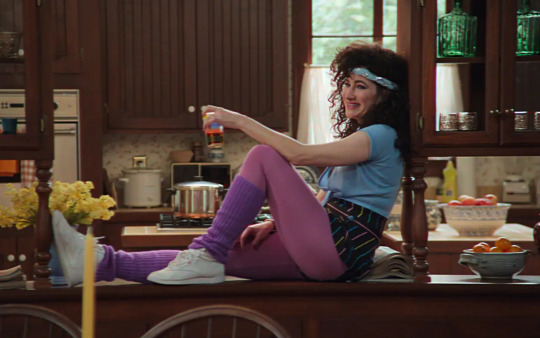
So why would the great and good of Hollywood acting willingly attach themselves to a franchise that one of the greatest directors of all time not so long ago declared to bear a greater resemblance to theme park rides than cinema? Marvel films are delightful but they are also frequently silly (inevitably, in the transition from cartoon comic book drawings to full-sized, three-dimensional adults leaping around on-camera dressed in skin-tight lycra suits and capes, some space for ridicule is opened up).
The studio is fully aware of this, which is why these films are comedies, but that does not make them any more obvious as vehicles for artists interested in rendering psychological depth on-screen. In 2012, Kiwi wunderkind director Taika Watiti told Interview magazine that he was suspicious of the way feature films can often “turn into commodities”. Yet five years later, his own Marvel movie, Thor: Ragnarok, hit cinemas.
The financial incentives to any actor are obvious and no doubt play a part but there is something even more valuable to someone like Benedict Cumberbatch – not exactly strapped-for-cash following Sherlock, The Imitation Game, and The Hobbit films – inextricably wound-up with those mega pay packages. That something is audience size. Avengers: Endgame, the highest-grossing film of all time until Avatar’s re-release in China in March last year, took $357 million at the domestic box office on its opening weekend.
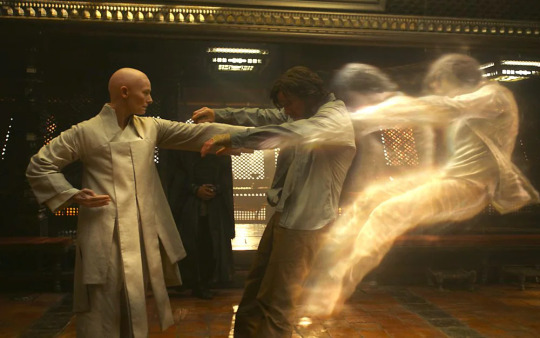
In America, the average price of a cinema ticket that year was about $9 – that means, by the roughest of calculations, that within 48 hours of the film’s release, 12% of the population, or some 40 million people, had seen the film. An actress like Colman has not exactly been confined to niche audiences – The Crown is not a small show – but even so, the prospect of such unparalleled exposure must be seductive.
The dream of a Marvel movie has not replaced the dream of an Oscar – it all but guarantees it. A symbiotic relationship is emerging between the franchise and the Academy, as the popular reach of one feeds and is elevated by the prestige of the other. There is no better example of this than the tragically-curtailed career of the late Chadwick Boseman.
From a handful of critically-lauded but quietly received biopics (42, Get on Up), he was propelled overnight to global stardom by his MCU roles as Black Panther, Marvel’s first black superhero, culminating in the Black Panther film in 2018. Now, just months after his death from cancer, he is a shoo-in to win a Best Actor award this week for his role in Ma Rainey’s Black Bottom. The opposite of a Marvel film in almost every sense – it’s claustrophobic, literary (it’s based on an August Wilson play), and tragic – it was Black Panther nonetheless that secured him the part.

This give-and-take between superhero flicks and prestige dramas extends beyond actors: Watiti, who has just wrapped shooting on another Thor film, was nominated for an Oscar in 2019 for his German Resistance drama Jojo Rabbit, while Chloé Zhao, who is sure to win Best Director this weekend for Nomadland, has just wrapped her own Marvel movie, Eternals, which is slated for release in November.
Kathryn Hahn, meanwhile, was brought into WandaVision by director Matt Shakman, better known for directing prestige shows like Mad Men and Succession. His vision, in collaboration with the writer Jac Schaeffer, led to a formally wildly innovative show, providing the opportunity for Hahn and the show’s pair of stars Elizabeth Olsen and Paul Bettany – both outstanding actors – to flex their comic and creative muscles. Such starpower behind the camera is itself an attraction for actors of Colman’s calibre, and while there is as yet no word on who will direct Secret Invasion, there are many exciting possible names in the mix.
A few powerhouse industry figures were instrumental in fostering this mutually-beneficial relationship. The first was Robert Downey Jr, the original posterboy of the franchise. When he agreed to star in the first film, 2008’s Iron Man, it was a huge gamble – director Jon Favreau had to battle the studio to accept him – as he emerged from a wilderness decade marred by drug addiction, but it was also a huge coup. Downey Jr had just been nominated for an Oscar for Ben Stiller’s comedy Tropic Thunder and had recently starred in David Fincher’s instant cult-classic Zodiac; his personal reputation may have been in tatters, but as a serious actor, he brought chops.
His Iron Man would become the emotional and dramatic heart of the franchise over its next three phases. Kenneth Branagh, who directed the 2011 film Thor, also bridged the gap between the big flashy studio and his own thespy circle: he brought his protégé Tom Hiddleston, who at that point was best known for his British TV and theatre work, onboard to play Loki, a decision that Feige apparently described as the most important the studio would ever make. Hiddleston capitalised on rather than abandoned his roots: he approached the character like “a comic book version of Edmund in King Lear, but nastier.” It paid off: Hiddleston is a global superstar, frequently touted as the next James Bond, and his dedicated Loki spin-off show is the Marvel TV release of the summer.
Of course, there’s one thing that Marvel offers its actors that money simply can’t buy: a bit of fun. “If my actors aren’t having a good time on set, then I’m doing something wrong,” Waititi told Polygon in 2016. Reflecting on her playfully heightened performance in the early episodes of WandaVision in a recent interview with the New York Times, Hahn said that her husband said her performance had reminded him of her younger self in her college days. “I haven’t seen that part of you in so long – just you, hamboning it,” he told her. Colman, who is by all accounts is a mischievous on a film set, may simply want to bust out of those period costumes, slip into a bodysuit, and have a good time.
#Olivia Colman#Tom Hiddleston#Kathryn Hahn#Elizabeth Olsen#Paul Bettany#Robert Downey Jr.#Mark Ruffalo#Scarlett Johansson#Taika Waititi#Chris Evans#julia louis-dreyfus#Chadwick Boseman#Anthony Hopkins#Benedict Cumberbatch#Tilda Swinton#Brie Larson#Chloe Zhao#Ben Mendelsohn#Annette Bening#MCU#Kevin Feige
99 notes
·
View notes
Photo
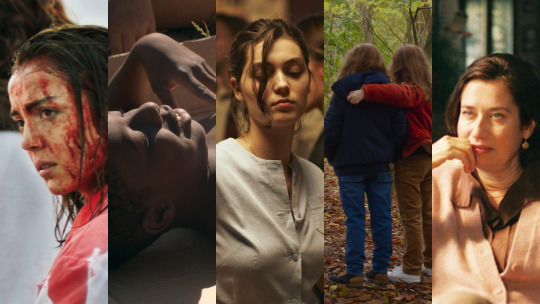
After Agnès: Ten French Filmmakers to Watch in 2021.
It’s not every day that a grass-roots fandom inspires a Letterboxd Easter egg, but the love for Portrait of a Lady on Fire was so strong that those flames are here to stay. With a new Céline Sciamma fairytale on the horizon, we invited Sarah Williams—one of the #PortraitNation instigators—to highlight ten femmes de cinéma with new works due out this year, and suggest films from their back catalogs to watch now.
Among many dramatic moments in cinema in 2020, there was the resignation of the entire César Academy board, following protests about the nomination of filmmaker and child rapist Roman Polanski (dubbed ‘Violanski’ by French feminists). Then there were the walkouts at the 45th César Awards ceremony itself, led by actress Adèle Haenel, after Polanski won there. Firm calls for change followed from Le Collectif 50/50, a movement that has urged parity on festival selection committees, after seeing how few female filmmakers were allowed into competition categories. (They have had some success, particularly with Cannes, where selection committees have moved towards more transparency and a better gender balance.)
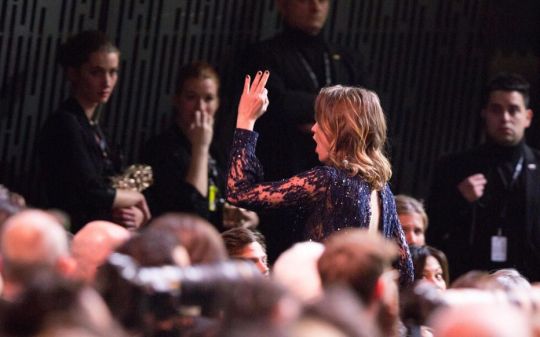
Actress Adèle Haenel has a message for the 2020 César Awards, shortly before walking out of the ceremony.
This year’s Césars were tame, by comparison: actress Corinne Masiero stripped on stage, using her brief spotlight to focus on the pandemic and the crisis of shuttered cinemas across France. May they open as soon as it’s safe, because many of the filmmakers prominent in these social movements have new movies on the horizon. As the older generation retires, this newer group of progressive filmmakers is making waves on the festival scene, working from perspectives often denied or overlooked in mainstream cinema. French cinema is at a sort of crossroads, and the next Portrait of a Lady on Fire, Divines or BPM could be just around the bend.
Letterboxd members are well schooled in the power of Agnès, and Céline Sciamma has entered the worldwide critical sphere—and Letterboxd’s highest ranks—thanks to the success of Portrait of a Lady on Fire (🖼️🔥 forever), but there are many more French storytellers worthy of your watchlists. Alongside Sciamma, here are nine more for your consideration.
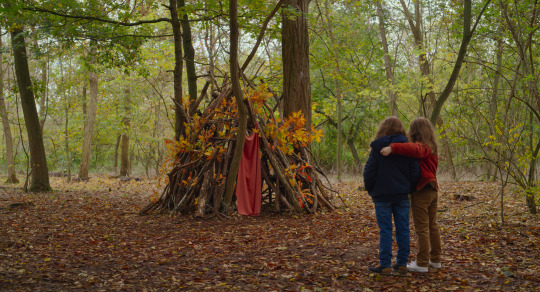
Céline Sciamma’s ‘Petite maman’.
Céline Sciamma
Coming soon: Petite maman Watch now: Water Lilies, Tomboy and Girlhood
Before her worldwide hit Portrait of a Lady on Fire, Céline Sciamma helmed a trilogy of acclaimed coming-of-age stories, Water Lilies, Tomboy and Girlhood. Her fifth feature, Petite maman, both lives in the world of this trilogy, and radically differs from the trio.
Petite maman premiered at the 2021 Berlinale, where the North-American rights were snapped up by NEON, Sciamma’s partner on Portrait’s release. In the film, Nelly (Joséphine Sanz) is eight years old when her grandmother dies, and she goes with her parents to help empty the house. One morning, her mother, Marion (Nina Meurisse) disappears, and she finds a young girl also named Marion (Gabrielle Sanz) building a fort in the same place her mother had as a child. A non-traditional view of motherhood, Petite maman’s supposed twist is never meant to be a twist at all, as this Miyazaki-like fairytale never tries to hide where Nelly’s mother really is.
Unlike other time-travel films, Petite maman is not concerned with physics. It’s a gentle act of love that blurs generational lines, answering the question of what it would be like to see life through your parents’ eyes at your age.
What Sciamma does here is radical even for her, creating an entire film that lies in a safer place of childhood. Where in Water Lilies, Girlhood and, especially relevant, Tomboy, shot in the same forests of Cergy, she depicts the full violence that comes with adolescence, the two young girls here console each other, and don’t have a camera on them for the rougher events of their childhoods.
Sciamma’s earlier films about youth feel like personal catharsis, but also unflinchingly show coercion, a child being outed, and teenage gang violence. With Petite maman, the two young girls are allowed to live in the more innocent parts of their childhoods, and though they deal with grief, worries of abandonment, and one nervously awaits a major surgery, Sciamma now tells a weighty story without needing to show pain on screen.
The end result is a warm, nostalgic film that isn’t bound by time period or the specifics of setting. It’s a live-action Ghibli fairytale that, despite having Sciamma’s youngest leads, has matured from her earlier work. The plays acted out by the children sometimes parallel their own stories, and once, in a scene of a countess and maid, almost seem to be calling back to past films, in this case Portrait of a Lady on Fire. Many times, including at the film’s Berlinale Q&A, Sciamma has said she does not write characters, but stories and situations to enter. This feels more than true with this latest effort, a steady hand extended to an audience, promising us that it will be okay, some day.
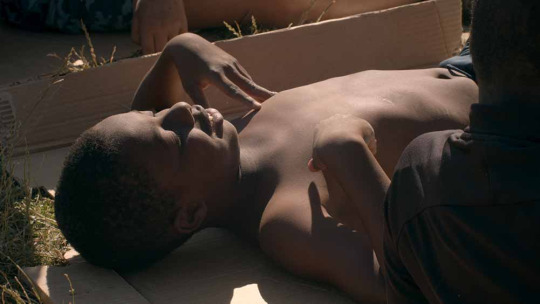
Alice Diop’s ‘We’.
Alice Diop
Coming soon: We (‘Nous’) Watch now: Towards Tenderness (‘Vers la Tendresse’)
Through the many shortcomings and scandals of France’s César Awards, a memorable win of recent years was Alice Diop’s 2017 award for best short film for Vers la Tendresse (Towards Tenderness), a prize she dedicated to victims of police violence. The film is a 38-minute poetic exploration of how men view sex and romance in the French banlieues (suburbs). One line in the film summarizes Diop’s central thesis: “It’s just hard to talk about love. We don’t know what it is.” These young men struggle to conceptualize love from what they are taught, and their flaws are laid bare in the name of understanding the limitations of masculinity.
Though more abstract, Diop’s new film, We, which had its premiere in the 2021 Berlinale industry selection, comes from a similar desire for collective understanding. The train line of the RER B crosses Paris from north to south, and with it, so does an attempt to connect fragmented stories around the city. The film heavily recalls the Varda tradition that a documentary can be made just by walking and waiting. Using a series of suburban vignettes, Diop is able to piece together a wildlife conservatory of ordinary lives, looking at her own community and trying to capture the warmer side of society. She talks to a mechanic, a writer, and even her own father, in a sort of David Attenborough of human landscapes. We weaves through parts of the city with overwhelmingly Black and immigrant populations, building a nostalgic breed of documentary not focused on the gotcha! reveal.

Rebecca Zlotowski’s ‘An Easy Girl’ (2019).
Rebecca Zlotowski
Coming soon: Les enfants des autres Watch now: An Easy Girl (‘Une fille facile’)
Writer and director Rebecca Zlotowski has steadily released a film every three years since 2010. Her stories have centered on Jewish and North-African characters, and her television series Savages, based on a series of novels from Sabri Louatah, focuses on the attempted assassination of a fictional Arab President-elect in France. Very little has been spilled about Zlotowski’s newest film, Les enfants des autres, which began shooting in March. We know that Virginie Efira and Roschdy Zem are attached, and there were casting calls looking for children, and for extras for a scene set in a synagogue.
Though each of her four previous features have their strengths—and I’m even partial to Planetarium, an overzealous magical-realist film about American sisters with a supernatural gift, set in the Parisian film industry around the rise of anti-semitism—2019 Cannes selection An Easy Girl, readily accessible on Netflix, is a choice pick. Notable for its controversial casting of Zahia Dehar, who became infamous for relations with the French national football team while an underage sex worker, this choice proved to be a clever deception in a film about how women said to be easy with men are dismissed.
Dehar plays the older cousin to newcomer Mina Farid’s Naïma, a sixteen year old who longs for her cousin’s seemingly glamorous lifestyle. Naïma soon learns this life isn’t just fashion, but about learning to please wealthy men in order to get what she wants, while never having to give too much of herself away. While most of the director’s closest contemporaries are pioneers of a coherent movement of female gaze, Zlotowski chooses here to shoot through a decidedly male gaze, challenging her audiences’ perceptions of how they treat her characters before we come to understand them.
Also noteworthy is Zlotowski’s debut feature Dear Prudence, based around a diary she’d found in the street. Starring a very young Léa Seydoux as a seventeen-year-old girl who joins a motorcycle gang after the death of her mother, the film’s unique source material makes this Zlotowski’s most intimate film.
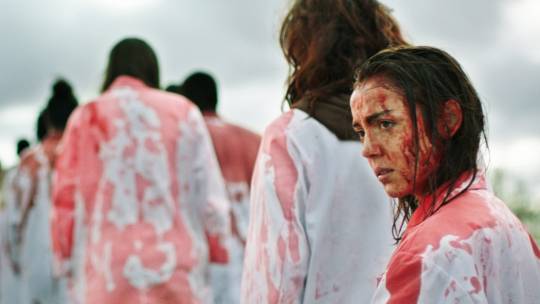
Julia Ducournau’s ‘Raw’ (2016).
Julia Ducournau
Coming soon: Titane Watch now: Raw (‘Grave’)
Julia Ducournau’s cult-favorite, coming-of-age, cannibal gorefest Raw quickly made her a name to watch. When Garance Marillier’s Justine tastes meat for the first time at a veterinary-school hazing, it awakens a cannibalistic desire within her. Shot as one would an erotic realization, Raw is at its essence an uncontrollable thread of self discovery.
Already backed by NEON for US distribution, with a possible mid-2021 release date, Ducournau’s follow-up Titane looks to be a wild thriller, if somewhat more traditional than the teenage “monstrous feminine” body-horror of her early work. Much of the production has been kept under wraps, but we know Vincent Lindon stars alongside newcomer Agathe Rousselle. Lindon plays the father of a mysterious young man named Adrien LeGrand, who is found in an airport with a swollen face, claiming to be a boy who had disappeared ten years before. Ducournau is a filmmaker unafraid to shy away from the provocative, and Titane is all but guaranteed a major platform come premiere.
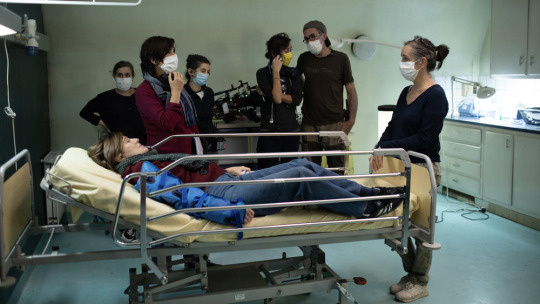
Catherine Corsini’s ‘La Fracture’ (2021).
Catherine Corsini
Coming soon: The Divide (‘La fracture’) Watch now: Summertime (‘La belle saison’), An Impossible Love (‘Un amour impossible’)
Coming a generation before many of the other filmmakers here, Catherine Corsini is best known for her complex romantic dramas. Her most recent are the 1970s feminist-tinged Summertime (2015), starring Cécile de France and Izïa Higelin as a couple torn between rural farmlands and Paris, and An Impossible Love (2018), a novelistic chronicle of a couple (Niels Schneider and Virginie Efira) as their relationship sours from 1958 to the present day.
Summertime, which is currently available to rent or buy in the US, is Corsini’s first film to consciously depict a relationship between two women (though 2001’s Replay is ambiguous as to what is happening between Pascale Bussières and Emmanuelle Béart’s characters). The young lovers learn what freedoms they gain and lose between the pastoral countryside, and the feminist organizers they run with in Paris. It’s a fairly standard romantic arc, but illuminates a fiery counter-culture feminist era, and is a staunchly progressive film from a national cinema built so firmly upon a more traditional view of seduction.
La fracture, Corsini’s latest (and the third film produced by her life partner Elisabeth Perez) centers on yet another couple (Marina Foïs and Valeria Bruni-Tedeschi) who are on the verge of breaking up when a demonstration outside causes tensions to rise at the hospital they’re confined within. A relationship under strain alongside French protest culture? Extremely French subject matter indeed.
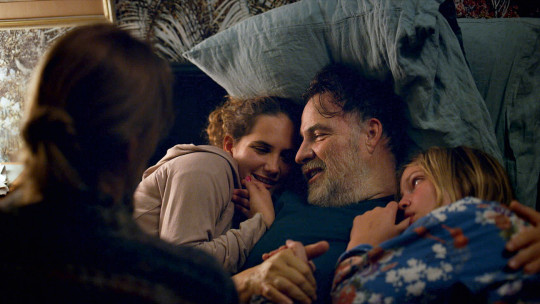
Claire Burger’s ‘Real Love’ (2018).
Claire Burger
Coming soon: Foreign Language (‘Langue étrangère’) Watch now: Real Love (‘C’est ça l’amour’)
Most likely known for her Clouzot-tinged music video for Kompormat’s ‘De mon âme à ton âme’, starring Adèle Haenel, Claire Burger is a filmmaker heavily rooted in location. Her past films, including a graduation short and two features, have been set in the north-eastern town of Forbach, where she grew up, just fifteen minutes from the German border. This looks to be a thread that runs through her next film: Foreign Language is about a friendship between two girls who live on either side of the French-German border. BPM producer Marie-Ange Luciani is set to produce; a poster for BPM made a cameo in Burger’s last feature, Real Love.
A personal story, Real Love is one of non-traditional fatherhood and a family that does not rely on masculinity. When his wife leaves, Mario (Bouli Lanners) is left to raise his two teenage daughters in their small town, all while taking part in a community-theater production. Most of the film is told from the perspective of the younger daughter (Justine LaCroix), experiencing first love with a girl from school, who doesn’t seem to want anything serious.
Notably, after her debut and a lengthy series of short films, this was the first time Burger, who edits her own films, cast professional actors, in the case of Lanners and Antonia Buresi (as a theater director). Yet it is the performance of the actresses playing the sisters that most touched the hearts of Letterboxd fans—as Lyd writes, “Maybe it was the opera music or the fantastic performances by Justine Lacroix and Sarah Henochsberg as the daughters, but it just affirmed so many things about life choices and the tipsy-turvy nature of love as just, everything.”
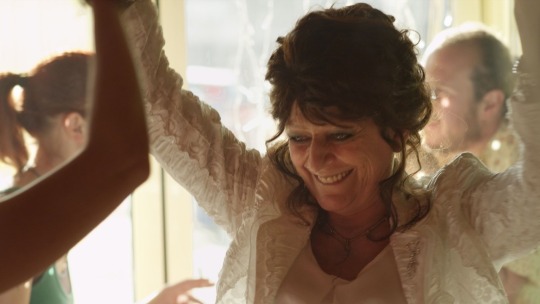
Marie Amachoukeli’s ‘Party Girl’ (2014).
Marie Amachoukeli
Coming soon: Rose Hill Watch now: Party Girl
A rare non-Sciamma project backed by producer Bénédicte Couvreur, Marie Amachoukeli’s solo debut is much anticipated, after Party Girl, where she was one-third of a directing trio with Claire Burger and Samuel Theis (who is shooting a feature of his own titled Petite Nature). Outside the collaborations with Burger, which began in film school, Amachoukeli is screenwriting for a number of films including Franco Lolli’s The Defendant, and has collaborated with animator Vladimir Mavounia-Kouka on two shorts, The Cord Woman and I Want Pluto to Be a Planet Again. A synopsis has yet to be released for Rose Hill, but in an old interview with Brain magazine, Amachoukeli mentioned searching for backers for a lesbian spy comedy.
Party Girl is essentially docu-fiction, with actors cast as versions of themselves building an authentic troupe of real people. Though it’s a collaboration, Amachoukeli shines as a screenwriter, introducing the story of a bar hostess who still lives the partying, single life of a woman in her twenties, despite having reached sixty. She is thrown when a man asks her to marry him, and she must reconstruct her outlook on love. From such young filmmakers, Party Girl is a sensitive portrait of an imperfect, ageing woman, which feels so rare in a cinematic landscape that longs for a fountain of youth.

Audrey Diwan’s ‘Happening’ (2021).
Audrey Diwan
Coming soon: Happening (‘L’evenement’) Watch now: Losing It (‘Mais vous êtes fous’)
French memoirist Annie Ernaux works by reconstructing her life over and over as time passes. One of her more well-known books, L’évènement, retraces her experiences trying to get an abortion in 1963, during a time when the procedure was banned in France.
Audrey Diwan—whose 2019 debut film Losing It follows a pair of young parents (the always-charming Pio Marmaï and Céline Sallette) working through the father’s spiral into addiction and recovery—has a knack for solid performances. She’s able to write a relationship under strain with nuance, and Céline Sallette’s character shows strength as a mother choosing between protecting her children and repairing her relationship to their troubled but good-hearted father, whom she still loves dearly. This skill for writing family should pair well with Ernaux’s deeply personal prose.
Happening sweeps up a small army of promising young actors: Being 17 star Kacey Mottet Klein, and Portrait of a Lady on Fire and School’s Out supporting breakout Luana Bajrami, appear alongside lead actress Anamaria Vartolomei. Her character, Anne, is a bright student who risks everything once her pregnancy starts showing, so that she can finish her studies. Audrey Diwan’s film isn’t the only Ernaux adaptation currently, with Danielle Arbid’s Passion Simple having premiered at Venice in 2020.
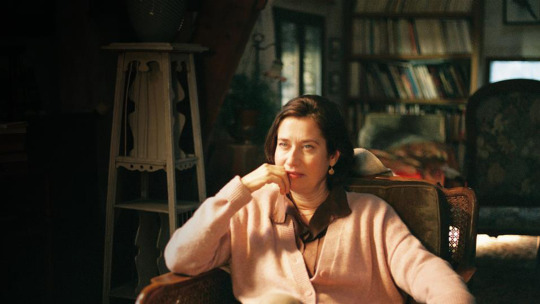
Claire Simon’s ‘I Want to Talk about Duras’ (2021).
Claire Simon
Coming soon: I Want to Talk About Duras Watch now: Mimi
One of few figures to bridge cinema and literature equally, Marguerite Duras was a social commentator on her world; she grew up poor in French-colonized Vietnam, took on a staunch leftist perspective, and developed a singular tone in her observational assertions. Duras’s 1975 film India Song, based on her novel of the same name, was a landmark in feminist film. Through a hypnotic structure (“a viewing experience like no other, one that touches all of the senses,” writes Carter on Letterboxd), India Song delivers a strong criticism of class and colonialism through its story of Anne-Marie Stretter (Delphine Seyrig), a French ambassador’s wife in 1930s Kolkata.
In I Want to Talk About Duras, writer-director Claire Simon (best known for her documentaries on the seemingly mundane) adapts a transcript of conversations between Duras (Emmanuelle Devos) and her much younger partner Yann Andréa Steiner (Swann Arlaud), in which the pair break down the codes of love and literature. These conversations were published in a book named after Steiner, who met Duras when he approached her after a screening of India Song.
The highlight of Simon’s previous work is Mimi, in which she settles down in the countryside with an old friend, and tells her life story over 105 minutes. Recently programmed as part of Metrograph’s Tell Me: Women Filmmakers series, it’s clear the film was selected for its authenticity. However, many Letterboxd members may heavily benefit from seeing The Graduation, her 2016 documentary about the famous Parisian film school La Fémis, and its difficult selection process. Most of the other filmmakers in this list passed through its gates, and Claire Simon’s Wiseman-lite documentary sheds light on the challenges these young people take upon themselves for a chance at a world-renowned filmmaking education.

Amandine Gay’s ‘Speak Up’ (2017).
Amandine Gay
Coming soon: A Story of One’s Own (‘Une histoire à soi’) Watch now: Speak Up (‘Ouvrir la voix’)
Amandine Gay has much to say about access to film school—and opportunities in the film industry—for those outside the mainstream. Initially on the radar for her Afro-feminist activism, Gay arrived on the cinema scene with Speak Up, a narrative reclamation focusing on the diaspora in France and Belgium.
Talking to Francophone Black women who may not be considered formal scholars, allowing her subjects to speak as experts on their own experiences, Gay disproves the idea that France is a race-blind society. She shoots mainly in regal close-ups and using natural light, allowing her subjects the clarity to speak for themselves, unfiltered. (And to put to bed the misconception that Black performers are harder to light, one of many important angles discussed in an excellent interview with Letterboxd member Justine Smith.)
Using family photos and home videos from subjects, Gay’s engaging documentary work is a mouthpiece to spark conversation. Her next documentary, Une histoire à soi, centers on transnational adoption and will likely take a similarly conversational approach in exploring a unique cultural divide; putting the microphone in front of those who can provide a first-person point of view. Though not officially backed yet, she’s also—for years!—teased a Black lesbian sommelier film on podcasts and in interviews. That’s a story that I hope won’t need much more maturing before we see it. A votre santé.
Related content
Feature-length French films by Women—Sarah’s list
The Official Top 100 Narrative Feature Films by Women Directors—featuring Portrait of a Lady on Fire at number one
Little White Lies: 100 Great Movies by Female Directors
Follow Sarah on Letterboxd
#sarah williams#portraitnation#portrait nation#portrait of a lady on fire#celine sciamma#petite maman#cannes#cesar awards#adele haenel#berlinale#berlinale 2021#french filmmaker#directed by women#french female filmmaker#female french director#french woman director#la femme du cinema#french cinema#french new wave#julia ducournau#alice diop#claire burger#letterboxd
90 notes
·
View notes
Text
Brothers Conflict || 03.
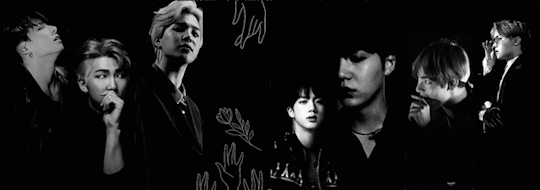
Thrust into an already established family, you struggle to find your footing while dodging the advances of seven, incredibly good looking stepbrothers.
Your father marrying, and you suddenly having to live under the same roof with seven step brothers was a royal mess or so you had thought, Because them falling in love with you was so much worse. Or was it?
◈ Genre: Romance, Fluff, Humour, Smut and maybe a little angst. (PG-18) (step brother AU) (I do NOT support incest, this work is inspired by the popular anime/manga Brothers Conflict)
◈ Pairings: OT7 x Reader (reverse harem)
◈ CHAPTER THREE
WC: 2.7k
Warnings: Language (sfw)
Masterlist

"How about this?"
"Nah, it's too sideways," you reply from where you are standing near the doorway of your bedroom.
"Right or left?" Sunmi asks, as she grips the frame and distances her torso from the wall, trying to see for herself where she should shift the frame. From the looks of it, she's failing spectacularly at it.
Suppressing a snort, you answer ‘left’ and hum when she tilts the frame and you are finally satisfied with its position on the wall. Walking back in, you marvel at the sheer grandness of your room for the umpteenth time as you take in all the space around you. Roughly four times the size of your old bedroom, it was huge.
Floor to ceiling windows on the side opposite the bedroom door, before which was your queen-sized bed. A decent size, intricately designed bedside table beside it, with the floor underneath covered with a soft, plush rosy white carpet. A walk-in closet the size of your old bedroom, a bathroom with a jacuzzi, curtains heavy enough to suffocate and kill you if they were to ever fall upon your body; your new bedroom screams rich.
It would be a lie to say that you don't feel intimidated. Raised in a middle-class, humble neighbourhood, you hadn't in your wildest dreams ever imagined living in a room like this. But here you are, soaking in the reality of the moment; and realising that it feels like something between a dream and a nightmare.
Nearly four hours since you first started unpacking, and five since you had first met your new family, most of your room was organised. All boxes untaped and emptied as you and Sunmi worked hard to make the unnecessarily large, empty room less of a hotel room and more like the bedroom of a 19-year-old girl.
Sighing, you push the last book of your novel collection into the bookshelf. Made from some sort of whitewood, much like everything else, it was designed intricately and looming large over your small shadow.
"This is it."
Slouching, you fall onto your back, eyes straying to the ceiling above and the textures carved onto it, refusing to reply to Sunmi’s statement. Agreeing would mean that you'd have to let her go and you don't think you can, the isolation and abnormality of the situation already sinking in and scaring you.
"Mmn," you reply noncommittally instead.
A long sigh, and then your best friend is curling on the floor beside you, her hand snaking around yours, fingers intertwining, as she silently lets you know that she is here for you. Repressing the tears you can already feel trying to escape your eyes, you squeeze her hand back.
The clammy, ice-cold touch of your skin against hers goes unmentioned as you both lay there in silence.

"I'll call you every day," you whisper, your voice choked as your death grip around Sunmi's waist tightens, and she lets out a strangled moan before pushing you away.
"Woman, stop being so dramatic! You'll see me back in college every freaking day once summer ends and you know I'll come to see you whenever you want me to, the hour-long ride be damned," Sunmi chides. There’s no bite in her words, and her voice wobbles despite her trying to act tough, but you don't call her out on it and only nod.
"You better, you airhead, lord knows you'll probably sob your body dry without seeing me every day."
A giggle comes out of your best friend's tall, lean body, one you are entirely too envious of, and her eyes soften, your smile softening with it.
"Take care, will ya?"
"Always," you whisper back, and with one last kiss thrown over her shoulder, she leaves. Her figure grows smaller and farther with every step she takes, and you bite your lip to prevent a call from tumbling out. Not moving an inch until you hear the distant roar of her car driving away, you finally shut the door when you no longer hear or see her car.
Suddenly you feel scarily small. Like a tiny, irrelevant existence born in a world too large and glamorous; a world where you evidently do not belong.
Meandering through the floor, you gaze at the picture frames on the wall as though you are the actress of some old seventies cinema, bemoaning the absence of a long lost lover.
Dramatic, yes, but you have always been more on the theatrical spectrum of humankind, and it isn't like there is much you can do right now anyway. Not unless you want to hole up in your room and stew in your sadness alone. And even though that might sound appealing to most (considering what your room now looks like), it wasn't something you felt like doing at the moment.
So you mindlessly gaze at the pictures, the setting sun casting a warm orange glow in the darkening hallway as you try to find some semblance of familiarity, a speck of comfort or intimacy.
"Y/n?" a soft voice calls out to you, and you twist on your heels, your eyes meeting with those of Yoongi.
"Yoongi-oppa." Voice coming out soft, your words fade at the end as your eyes track the way Yoongi's face glows when the rays of the setting sun hit his skin. Long messy dark blonde hair makes space for his glittering curvy eyes to shine through, and your breath gets caught somewhere in your chest when you look at the vision that was Min Yoongi.
"Exploring?" he asks casually, but even without knowing him for all that long, you can detect the underlying layer of concern in his voice. You don't know if he is being open with you right now, or if you can just read him well, but the concern makes your heart feel a little warmer.
"Something like that." Your answer is ambiguous, but Yoongi doesn't ask you to elaborate, so you don't add anything more, turning back and looking at the pictures again instead.
"This something you enjoy?" Yoongi asks as he moves beside you, hands stuffed deep in the pockets of his pants, and leans; making himself comfortable against the wall.
Your eyes stray to him. "Sounds like you don't."
"Not really my forte, I can appreciate it from a distance, sure, but not an enthusiast," he replies, the back of his head hitting the wall behind as he looks up at you.
Humming, you shrug. "Same, I guess, it's just fascinating to me. I wish I was smart enough to understand what half of these actually mean, but I am not, so I just appreciate the beauty and move on."
"Fair enough."
You nod and let the silence reign again, but it's a comfortable silence, the kind of quiet where you are both lost in your own thoughts but at the same time appreciate the company of the other.
Slowly the sun sets behind you, and the glassed walls shimmer one last time before the ceiling lights are switched on, bathing the entire floor in warm but bright light.
Yoongi had been silent the entire time as you explored the floor like a child in a zoo, poking and prodding the potted plants, oo-ing and aah-ing over the art around you, fascinated and occupied with the attractions around.
But when the lights switch on, he clears his throat and gets up from the couch he had taken a seat on some time ago, head tilting as he wordlessly asks you a question. You nod back and smile, making your way to him as you finally get ready to spend some time with the rest of your newly acquired family.
As you both make your way to the main hall, you don't miss how your heart is feeling much lighter now. The silent company that Yoongi had provided you with seems to have put you at ease and calmed your racing thoughts.

Walking into the kitchen alone, you try your best to make as little noise as possible. Yoongi, much to your displeasure, had promised that he'd meet you out in a few minutes only to disappear inside of his bedroom and leave you to your own devices.
The sudden bout of bravado from earlier had left your body too, in its place leaving raring, gut-twisting anxiety.
Tiptoeing to the refrigerator, you take out a bottle and pour yourself a glass. The chilled water slides down your throat, quenching your thirst, and you let out a satisfied sigh, smacking your lips in contentment after.
"That thirsty, huh?"
You jump, startled, heart racing and in your throat, as your gaze snaps to the doorway and finds Seokjin standing there. Suit coat hung over his left arm, and a button-down shirt rolled up to his elbows, he was clearly returning back home after a workday.
"Holy fuck, you scared the shit outta me!"
Your brain to mouth filter is seemingly not working after being startled. Feeling anxious was a problem enough, but being scared after was evidently enough to send your last two brain cells out the window. Your common sense and the knowledge that Kim Seokjin was now your stepbrother, eldest stepbrother, flying out the window along with them.
You hear crickets chirping in the distance as an awkward silence blankets the room, and in that moment you want to die. Spontaneously combust and float away into thin air, disappear, dissolve, vanish—die.
"I am so sorry, can we pretend I didn't say that, “you voice out meekly, your eyes avoiding Seokjin’s and instead finding purchase on the wall behind him, seemingly fascinated by the utter whiteness of it.
Hearing a chuckle ring and break the awkwardness in the air, you shift your gaze to the source of said chuckle and catch your eldest brother's gaze. "It's alright Y/n, I get that this is a big adjustment. Please don't feel like you need to rush on anybody's accord, take your time."
And then Kim Seokjin smiles—his pouty, full lips stretched into a small but ridiculously warm smile, and something in your chest clenches at the sight of it. Warning bells ring in the back of your mind, and you squash the thoughts threatening to come forward, their not-so-appropriate nature resulting in an immediate rejection from your end.
Mumbling a thank you, you let him know you'll be down soon and then dash to your bedroom, slamming the door closed once you're inside and sinking down onto the floor.
What the hell was that!?
Raking a hand through your hair, you groan in annoyance, wincing when said hand gets stuck in a tangle and pulls a few strands loose.
Looking back at your impression so far in front of Seokjin, one of your seven step brothers, it had been nothing but absolutely marvellous. So you can't imagine what could possibly go wrong when you sit down at the dinner table and are surrounded by all seven of them.
Nothing, nothing at all, nope-nada-zilch!
Frustrated, you slide a hand down your face, hoping to calm down, but the move only ends up irritating your skin under. The day has been long, and all that you pray for now is that it ends soon. Your bed, which from the looks of it was fit for royalty, was beckoning you over too.
With one last huff, you are pushing yourself up onto your feet and to the bathroom to splash some water, before you go and join the rest of your new family.

Pulling the chair in, you wring your hands nervously under the table, away from any prying eyes. One by one, the rest of your family filters in and takes a seat; Seokjin and Yoongi both pick their seats at the two heads of the table. Hoseok and Namjoon sit on either side of you, with Jimin plopping himself down opposite you, and getting flanked by Jungkook and Taehyugn on either side.
Not much conversation had taken place as they picked their seats, everyone sufficiently tired enough after a long day, but they had smiled or nodded at you when they first entered the dining room.
'Well most of them at least,' you think, eyeing the two youngest, who had both refused to give you even a cursory glance, resulting in your smile going unseen and unreciprocated. Their attitude, however, doesn't bother you too much at this point; as it was, they were virtually nothing more than strangers to you.
Conversations pick up around you, and you feel slightly out of place, as though you are a guest over for dinner rather than their new stepsister, but the feeling doesn't last long, because both Namjoon and Hoseok soon pull you into a conversation. Inquiries come forth about your day, and how your unpacking had gone.
The conversation is mostly superficial, nothing too emotionally challenging; neither of them ask how it feels being a part of their family or something like that, and you are relieved. Grateful, because you don't know if you'd be able to answer those questions anyway. The whole situation is still very odd no matter how many minutes of the day pass.
Someone clears their throat, and your eyes snap to Seokjin, who was pushing his chair back and picking up his glass, the red wine inside sloshing with the movement.
"I've done this before, and yet it never gets any less nerve-wracking," Seokjin starts, and your eyes furrow in confusion, but he continues before you can think about it any more. "Y/n," he says and tips his head in your direction, "I know this must feel a little scary—actually, scratch that, you're probably terrified right now, and that's okay.” he pauses, and takes a breath before continuing, “I'm sure it feels crazy suddenly being thrust into an already established family and being told that now you're one of them, and I just want you to know that I get it. We get it, and we are here for you. If you don’t want to accept us as family, that’s okay too; all of us would understand and support whatever decision you make. I just...” Sighing, he locks eyes with you.
“...I just hope you can let us in eventually, family or not."
Seokjin's eyes bore into yours as he says this, stressing the 'us', and you gulp, feeling the back of your throat tighten at his words. Sensing the fine thread of control that you had over your emotions loosening, you swivel your gaze to the table instead, nodding, your vision growing blurry as you try to blink back the burn in your eyes.
The room goes quiet, as the boys give you time to collect yourself—or sob, you don't know, but you appreciate the consideration nonetheless.
It was going good, it really was. You were holding on, no matter how precarious the hold was, you were holding on. Grasping onto that last string of control and restraint you had with all of your might.
But then Hoseok is wrapping his arms around your shoulders and pulling you into his side, letting you nestle your face in the crook of his neck, and the string snaps, his neck growing wet as tears streamed down your face and slid down his skin.
For a few minutes, you forget that you were now surrounded by strangers who you had to accept and call your family. For a few false, delusional minutes you forget that they don't know you, that the care they were showing was genuine and not something they were obligated to. That the one whose hands were drawing circles across your back, the one whose voice was whispering reassurances in your ear—stupid sweet-nothings that you would tell a small child to make them feel better, actually gave a shit about you.
You forget the reality and slip into a safe headspace, letting the warmth of another human encircle you, hold you, wrap you in its cocoon as you weep.

A/N: dedicating this chapter to @mel-gonzalez07, one of my oldest, most loyal readers, and more than anything else an amazing friend. ily angel 💖
Y/n is going through some shitt here. Imagine being thrust into a dynamic that has been established for years, and then having to act like you are meant to be a part of it.
The taglist for the story can be found:- here. A kind reminder that tumblr sometimes doesn’t give an alert for a tag notification, but you’ll find the notification in your notification dash. So, check it once a week as I usually update weekly.
Feedback means the world to me, so tell me what you thought. What would you do if you were in oc’s shoes?
Until next time! Take care you sweet soul and Oo! Go stream folklore 💖

Tag-list: @mel-gonzalez07 @favsssxx @imluckybitches @nomimits7 @alex4243 @calling-dips-on-j-hope @joonsinnerchild @iconicgguk @untamedfaith @kaheryn @nottodayjjk @moments-of-melancholy @gee-nee @confusemonkey @beautyyounggirl @blossoming-cherrytrees @seoul9711 @btsismybiass @toochie-too @sugakookie0698 @maboiisuga @kurohas-world @namseokiesmoonv @kerikaaria @chiidbits @girlyyzzyz @loveyoongles @btsfeelzies @knjkitten @honeyspillings @thestrugglesofateenagedirtbag @starrykook97 @xanny91 @leilalago @jiminie-08 @voguejoonie @lovelikeyouwant
#bts fanfiction#bts fanfic#bts x reader#bts fluff#bts x y/n#networkbangtan#btsghostie#ficswithluv#btsgoldnet#goldenclosetnet#bangtanhq#vantaenet#thehouseofbangtan#thebtswritersclub#bangtanidx#cypherwritersnet#bts x you#ot7 x reader#bts smut#ditttiii#ditttiii writes#jungkook fanfiction#bts ot7xreader#poly!bts#jimin fanfic#kim namjoon fanfic#jeon jungkook fanfic#jung hoseok x reader#min yoongi fanfic
588 notes
·
View notes
Text
Beware of the thief
How do you become the longest-lived criminal in the history of Italian comics? For LUCA MARINELLI it all started as a child, at the zoo. Before the eyes of a panther
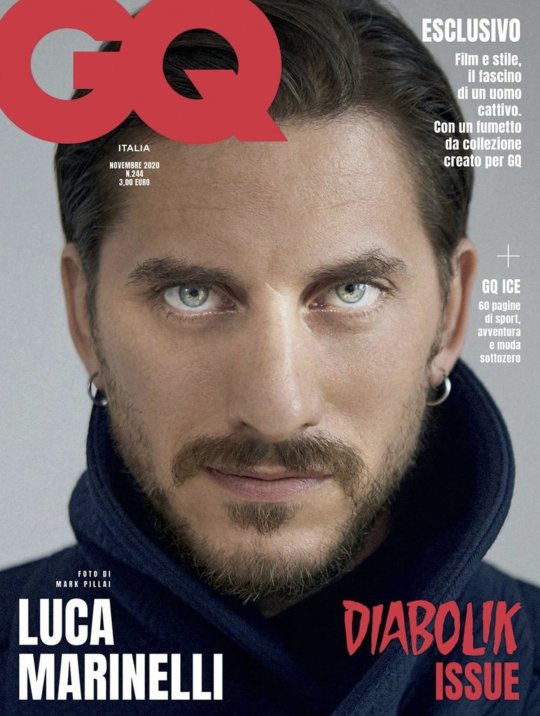
«The cold determination of a panther that silently approaches its prey: this is the expression I tried to instill in our Diabolik's gaze». When Luca Marinelli frowns and lights up the panther's eyes - the writer has had the opportunity to get a taste of it during the interview - the first instinct is to flee that look: too intense. It will be him, armed with a dagger and dressed in the famous tight black jumpsuit, with a hood that leaves only the icy eyes uncovered, to interpret the anti-hero born from the imagination of Angela and Luciana Giussani - the two sisters of Milan well known in history as the Queens of Terror - in the awaited cinematic adaptation of the comic directed by the Manetti Bros. (Ammore e malavita), in cinemas from December 31st.
«Fifty years in the homes of Italians. 150 million copies sold. Impressive numbers. Diabolik is an icon, it belongs to the IMAGINARY of hundreds of thousands of people"
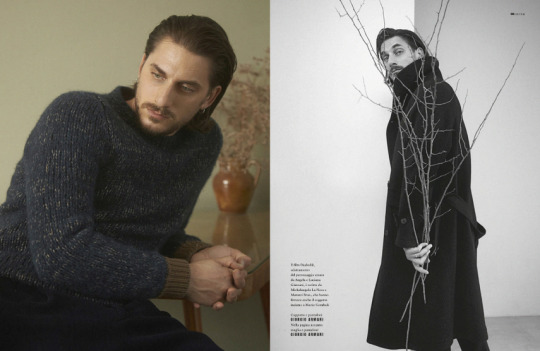
During a walk along the Kreuzberg canal in Berlin, his adopted city since 2012, the Roman actor explains that the choice to be inspired by the feline for the interpretation of the character is not accidental. «Fans will know that Diabolik takes his name from a panther. Their meeting, which lasts a few moments, is significant: after a high-tension face-to-face, the feline decides to spare the boy, almost as if he had smelled a fellow in him. The panther was one of my favorite animals as a child. I remember like it was yesterday the day my parents took me to see it at the zoo, and my amazement in front of that creature, that night-black mantle, shiny and iridescent, with bluish reflections, and that deep, rhythmic breathing. Finally, particularly indelible in my mind is the feeling of sovereign calm that emanated from the animal». “From the beginning, I had a good feeling about this film,” continues the actor. «The first meeting with the Manettis, which I have been following with interest since the time of Zora the Vampire, took place in Rome, in the neighborhood where both Antonio and Marco and I grew up. They explained to me that they had a very specific vision of the character's personality, but that they would like to see what I could offer them. We auditioned together, which was very useful in igniting the spark of collaboration. I have a clear memory of that day and the subsequent exchange of emotions and thoughts. When I later found out that I was chosen for the part, I was very happy».
Luca Marinelli is certainly not new to acting challenges. From the dazed Mattia in ‘The solitude of prime numbers’ (2010), the character with whom he conquers notoriety, over the years he engages in roles that are not very easy, very different from each other ("The only thing they have in common is my nose", ironically, pointing to his face), showing great versatility and an extraordinary capacity for psychological identification. Among his most convincing interpretations, that of the Zingaro in ‘They call me Jeeg’ and that of Martin Eden in the homonymous film by Pietro Marcello, with which he won, respectively, the Silver Ribbon and a David di Donatello as best supporting actor and the Coppa Volpi as best actor. But dealing with a myth like Diabolik, the object of an almost sacred cult, is a new challenge.
«Fifty years in the homes of Italians. 150 million copies sold. Impressive numbers. Diabolik is an icon, and for this reason it belongs to the imagination of hundreds of thousands of people. If you think you can satisfy them all, you start off on the wrong foot: you risk that the final result is not what you really want to stage, but I'm sure the public will not be disappointed, or at least I hope. You will see how much love and respect there was in implementing this transposition", explains the actor, who speaks with full knowledge of the challenge of interpreting an icon: in 2018 he plays a true sacred monster, Fabrizio De André, in ‘Principe Libero’ by Luca Facchini. A friend told him: you're crazy to take this part. But he, careless, immerses himself in the biography of the singer-songwriter, ventures like a shrink into the maze of his psyche, and he returns to the man of that icon, receiving critical acclaim for that insidious role. The only flaw, some malevolent purists observe, is his Roman accent.
Despite being a comic book hero, to face Diabolik, the actor «decided to avoid any comic characterization of the character, trying to give a convincing representation from a human, psychological point of view. Who is this mysterious man, who with his criminal findings terrorizes the rich city of Clerville? What vicissitudes lead him to become a king of crime? Questions that have become the starting point of my research. For months and months, my flat was flooded with comics, scattered all over the place. And for every hundred I read, the Manettis - who I suspect know all the 800 and more numbers in the series - were ready to lend me as many». Day after day, Marinelli has thus sneaked into the lair of the King of Terror: he spied on his objects, opened his wardrobe, rummaged in his drawers. “I fell in love with him, unconditionally, without giving in to the temptation to express a condemnation or an acquittal. It is a precious lesson, which was passed on to me in the Academy: never judge your character. You risk that a distance will form between you and him which, I play hard, is negatively reflected in the quality of the interpretation».
The result is a film that is radically different from the first film adaptation, directed by Mario Bava, in 1968. "Among its strengths, there is a fascinating 1960s aesthetic, made up of machines, costumes, places and a thousand technological inventions of our Diabolik», he says. “To my great pleasure, I was involved in the discussion of the character's look right from the start. Particularly difficult was the development of the mask and the legendary black suit, designed by Diabolik himself and equipped with fantastic characteristics, not repeatable in reality. An almost impossible mission, but after weeks of attempts, thanks to the collaboration of all departments, we arrived at a result that was very satisfied: we did it by working together. I want to emphasize the all together. When you work with the Manetti Bros., this aspect is deeply tangible: everything takes place in an atmosphere of great exchange and collaboration. Many have known each other within the crew for years, and one almost has the impression of having been adopted by a large family, rather than working on a normal set ».
“Who is this mysterious man who terrorizes the rich city of Clerville? What led him to become what he is? For months these questions have been my RESEARCH"
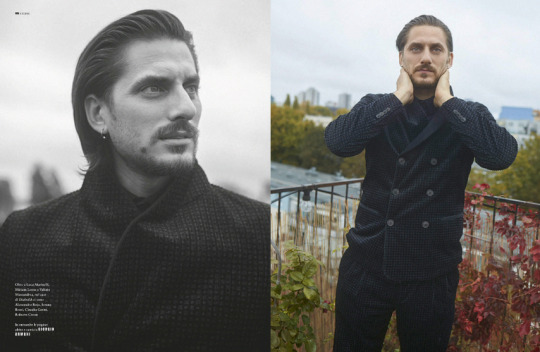
The film - which the Manettis defined as "darkly romantic" - will also tell, to the delight of fans, the prodromes of the love story between Diabolik and his partner in crime, Eva Kant (Miriam Leone). "Two special, different people who first sniff each other with suspicion, only to recognize each other as soul mates," he explains. “I really like their level of complicity. Diabolik, however, is a very tough and reserved character, who rarely shows a feeling: this is certainly one of the differences, perhaps the clearest, between him and me. I am his opposite: as a good romantic and empathetic, I confess, I often cry. I think that doing so can be an important moment of openness, growth and awareness, which we should learn to actively seek. Are you feeling down? Play the saddest song you know and give yourself a treat: enjoy your tears, a friend once told me. Holy words: woe to keep everything inside. You run the risk of walling yourself up alive behind a senseless wall of hardness».
Although "very interesting", the actor prefers to gloss over future film projects out of luck. "At the moment my wife and I (the German actress Alissa Jung) are very busy with our association: we are about to open the headquarters of PenPaper-Peace in Italy, the association founded by Alissa in Germany, with which we built two schools in Haiti after the disastrous earthquake of 2010». As the actor launches into the memories of his first trip to the Caribbean island, the weeping willows of the Kreuzberg canal that framed the interview mentally give way, for a moment, to the lush vegetation of the Caribbean. «Indelible memories. Two years after the disastrous earthquake, I found a country on its knees, surrounded by rubble, pain and despair, but also many smiles and a contagious desire to live", he says. As the name of our association suggests, all you need is a sheet of paper and a pen, and you can give a child education, and with it a possibility, a future. And this not only in Haiti, but all over the world. At the moment we are focusing on a project in Italy that will support the boys and girls who are going through this difficult period of the pandemic».
GQ Italia
Just wanted to translate this interview for the non-italian’s fans ^^ (sorry for my English)
170 notes
·
View notes
Text
Whether or not God exists is one perpetual conundrum, but even the most hardened atheists of this world are rarely able to disclaim the significance of fate in life. What plausible reason other than misfortune accounts for the countless failures thousands of people encounter regularly in various spheres of life despite never making a mistake of their own? None. How else can a sane person explain why some individuals are born privileged while other similar ones are forced to suffer incessantly amidst abject poverty until death relieves them of their sufferings? Cruel, you say? Well, undoubtedly so. One person’s good luck so often brings misery to someone else.
This is exactly what happens in Zoya Akhtar’s debut directorial film, ‘Luck, by Chance’ when a photograph of the protagonist Vikram Jaisingh is selected purely ‘by chance’ for the lead role in a film and that of his at least as talented (if not more) friend Abhimanyu’s is missed. One random action, and Vikram rises to glory in the magical kingdom of Bollywood! Fortunately or unfortunately, this is true of innumerable ‘Vikrams’ and ‘Abhimanyus’ in the real world. Notwithstanding the massive amounts of effort that people involved with film-making put in every day, the vital role played by ‘luck’ in the industry can hardly be ignored. And Zoya is not scared to showcase it in her very first venture. She juxtaposes Vikram’s dream ride masterfully with Sona’s nightmare in Bollywood and allows the uncomfortable truth about brutal fate to reverberate unabashedly throughout her film. It is this hard hitting honesty that makes ‘Luck by Chance’ one of the best chronicles of the Hindi film industry during recent times.
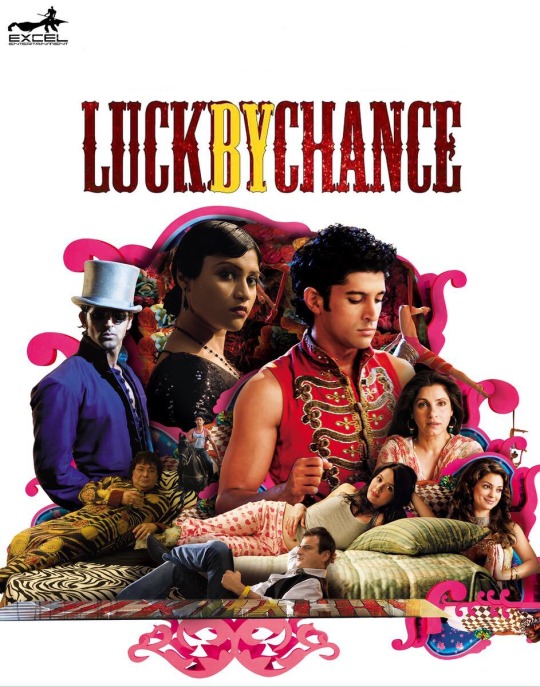
Just like her later films, here Zoya presents the audience with a vast gamut of characters that add exquisite flavours to her concoction, thereby making it all the more memorable for them. The mix includes a shrewd producer, an ageing, conceited, yester-year, her impulsive as well as ambitious daughter, an incompetent director, an egotistical superstar, a self-centered newcomer and a talented, hardworking, but exploited young actress among several others. Farhan Akhtar and Konkona Sen Sharma lead this brilliant ensemble which includes some of Bollywood’s most respected names such as the late Rishi Kapur, Dimple Kapadia, Juhi Chawla, Sanjay Kapur, Isha Sharvani and last but definitely, not the least, Hrithik Roshan.
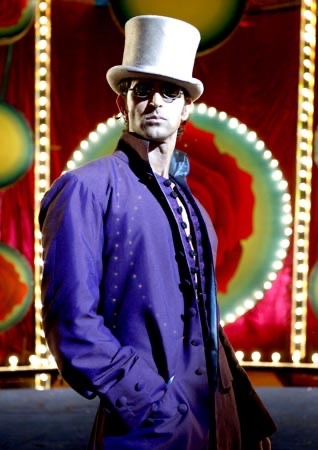
It is this last name and the character he plays that we are going to focus upon in the present blog. Of course, the film itself deserves a complete blog but since this project started as a celebration of Hrithik’s works, we deemed it best to maintain our initial objective. Perhaps once we have completed analyzing all Hrithik’s films, we can come back to this very special one and dedicate a separate blog to it.
Hrithik plays Zafar Khan in Luck by Chance, the quintessential Bollywood superstar. Suavity, good looks, charm, talent- Zafar has everything in abundance. He is also completely human, filled with the baser human emotions of envy, guile and selfishness. It is Zafar who backs out at the last moment from the film of his mentor (Rishi Kapur) because he finds greener pastures. He does so without much concern for the massive loss that his producer might incur, the same producer who had given him footing in Bollywood. But, as Zafar points out to his secretary, he is tired of being ‘owned’ by the man. Incidentally, it is this specific moment wherein Zoya decides to portray Zafar’s softer side. Stuck at a traffic signal, Zafar finds few street urchins flocking near his luxury car and what follows is one of the most endearing scenes Bollywood has ever produced. The pure joy on the faces of the children as they see the superstar ‘up close and personal’ is heart-touching. And so is Zafar’s reaction to them! Instead of being irritated or throwing tantrums which might be expected from stereotypical stars, Zafar engages with the kids in his own way, making them happier with every little interaction. In that instant, he is as pure a human being as is possible for anyone to be. Zoya masterfully manages to reveal that Zafar is neither a monster nor an angel, only a common human being filled with both positives and negatives, through this very subtle and apparently trivial moment. The closed window of Zafar’s car which acts as a barrier between him and the children is a metaphorical representation of the class divide that prevails not only in ours but every ‘civilized’ society across the world. It is also a symbol of the boundary that separates a superstar from his common fans; a boundary that is often impossible to cross even if someone is willing to. Only a director of Zoya’s calibre can be expected to convey so many hard realities through a scene that lasts for about a minute. As flawless with his expressions as ever, Hrithik is superlative in this scene as the humane Zafar.
Talking about expressions, Luck by Chance also contained ‘Baawre’ which definitely ranks among Hrithik’s top dance performances in our list, not just because of his moves but more importantly, due to his countenance and attitude. Hrithik is phenomenal in this song and it is an out and out ‘paisa vasool’ performance. One other scene that deserves to be mentioned in the context of Hrithik’s acting is the interaction between Zafar and Karan Johar at a party during which the latter discloses to Zafar how stars are made. It is all a matter of the same old ‘luck’. A reigning star refuses to do a film and some newcomer gets a chance. Luck by Chance! Of course, whether or not he is able to utilize that opportunity depends on the individual’s talent, but destiny does come first. Hrithik’s conveyance of Zafar’s jealousy as he realizes that he has created his own competitor unwittingly is absolutely on the spot. All in all, Zafar Khan is possibly one of the most impactful extended cameos Hindi cinema has ever seen, and all thanks to Zoya and Hrithik for that.
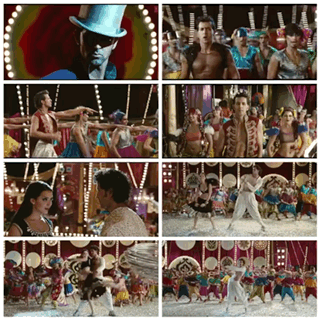
Incidentally, Hrithik also played notable guest roles in two other films. One of them was directed by none other than Zoya’s brother Farhan. Hrithik starred as none other but Don himself in a scene with the stunning Priyanka Chopra. Well, it was the Don (Shahrukh) in Hrithik’s mask. Looking dapper in a suit, Hrithik walked right into the hearts of the audience as he twirled with Priyanka on the dance floor. Farhan was clever enough to make use of Hrithik and Priyanka’s terrific on-screen chemistry in that one scene and they sizzled together. The other film in which he did a cameo was Vikram Phadnis’s Hrudayantar. He donned Krrish’s attire once more there to give a few moments of happiness to a dying child. The scene between him and the little girl was truly gut-wrenching.
With that, we bid goodbye to our lovely friends with a promise that the break shall be a short one. Thanks for being patient with us.♥️♥️♥️♥️
5 notes
·
View notes
Text
Rest In Peace ~ Sushant Singh Rajput
Hey guys, I was going into a spiral thinking about SSR and everything he went through and I needed somewhere to write my feelings down. There’s so much noise about this on Facebook, Twitter and Instagram, I didn’t want to add to the noise, bashing and overall negativity, so found this to be the best place. I’m sorry in advance if I offend anyone. This is going to be very long.
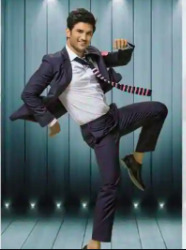
Sushant Singh Rajput the Actor and Human:
I’m not going to lie, I wasn’t his biggest fan, not by a long shot. I watched him in Pavitra Rishta every now and then because my mum was obsessed with that show and I used to be confused as to why everyone was obsessed with Manav and Archana - I was 12 years old when the show started and just felt it was another saas-bahu serial. However, to this day it amazes me how Manav and Archana were able to capture their audience for three consecutive years when their story was another saas-bahu serial. It was obviously the actors portraying them, and it takes a lot to grab someone’s attention and keep it on yourself. SSR had that energy. I remember then he came onto Jhalak Dikhlaa Jaa, I watched that show quite religiously because of my love for dance, and was bowled over by how good of a dancer he was. He had perfect lines, and his posture was amazing, I was in awe every time he danced. I remember that in that show he proposed to his then-gf in the cutest way possible, a proposal that is etched into my mind till this day.
He then left his daily soap, for a career in Bollywood, it was a very risky, bold move because it is a well known fact - Tellywood actors, are rarely able to make good careers in Bollywood. Most of them become irrelevant after their first or second movie. But man was everyone wrong about Sushant. I didn’t watch Kai Po Che, but I remember the buzz around it at the time, everyone was talking about it, and it was one of the biggest movies of that year. He then did Shuddh Desi Romance - a movie I was inclined to watch because he was in it, I was slowly turning into a fan, but I didn’t get the chance to watch it. Then came PK. When PK’s trailer was launched, SSR’s cameo was kept a secret, I remember I was in the theatre and he came onto the screen and absolutely owned it. His performance as Sarfaraz won me over, and a smile still comes to my face when I remember him in the song “chaar kadam”. SSR had an amazing screen presence, he knew how to keep the audience’s attention on himself and a lot of the time you would forget this Sushant Singh Rajput, in fact you would only think of him as his character. The brilliance in his craft was the ability to become his characters completely, to the point you think of them as a real person. The next movie I watched of his was MS Dhoni - a movie that became a sensation. Everyone who went to the movie as Dhoni fans, came back as Sushant’s fan. He deserved that and more. You could see his hardwork, his passion and his dedication in everything he did. I remember when the trailer for Raabta dropped, I was super excited two of my favourite actors - Sushant and Kriti had come together. At that point I started watching more interviews of him and got to know him a little from what he portrayed as a person. Raabta flopped at the box office, however, personally I enjoyed it and I was amazed at the chemistry he had with Kriti Sanon. In Kedarnath, I was so excited that Sara Ali Khan was doing her debut with him, and man both did not disappoint. Kedarnath was an amazing movie and Sushant portrayed his character with utmost conviction. Chichore was the last movie I watched of his and I absolutely loved the movie and him in it. The themes and overall message of that movie hit deep, and it was intelligently made, with comedy mixed with the darker themes, but not taking away from the main message they were trying to convey. Overall, even though I wasn’t a fan of him at the start of his career, he had won me over.
I also started adoring him as a person. His love for physics and astronomy; his eyes full of curiosity and enthusiasm towards the great unknowns. He didn’t finish his engineering degree, but the childlike wonder he had towards science made me excited as a scientist myself. He showed everyone that he had a brilliant mind and I’ve said this before and I’ll said it again, actors who are educated and well-spoken make me respect them more, they have a different way of thinking, they are eloquent and they show how much education can do for a person. SSR had all of these qualities. I could hear him speak for hours at a time. His instagram posts were always so deep and meaningful, it would make me thing differently, and his 50 things bucket list inspired me to no end. Especially how much he wanted to do for other people and how much he wanted to grow as a person. He also had an infectious smile, his smile used to make his fans smile and it takes a big person to do that.
SSR’s Death:
I was doing an assignment when one of my friend’s had sent me the news. I thought it was a hoax at first, but then I googled him, and it was true - Sushant Singh Rajput had committed suicide. Honestly, I’ve been distraught since then, I cried multiple times, and I can’t stop thinking about him, the pain he must’ve felt in order to take this decision, and whenever I saw his sisters or dad I cried even more, the sadness and despair I felt would be nothing compared to theirs, especially because his death was preventable. I’ve never been depressed, I’ve had my fair share of panic attacks and anxiety but I don’t know what depression is. I only know what I’ve studied, that people who are depressed have physiologically different brains to people who are not, they have decreased levels of oxytocin and serotonin, and that they have less grey matter. I’ve also been told that this causes them to not be able to function, they sleep too much, become unable to socialise, and their brain starts to turn them against themselves. However, I believe that there is always an underlying cause of depression. There are triggers for depression, a person doesn’t become depressed over nothing. I know everyone wants to know the trigger; why did he take such a drastic step, but he didn’t leave a note. He left with silence. I know it is difficult, but I feel that we should respect that, however, we should not let him die in vain.
But I’m going to be real here IT IS NOT OUR PLACE AS THE GENERAL PUBLIC/AUDIENCE OR FANS TO GO ONTO OTHER CELEBRITIES TWITTERS/FB/IG AND CALL THEM MURDERERS. How dare we think that we can blame other people for someone’s death. I don’t care how these people treated him while he was alive, let them mourn him in peace. His death has taught me one thing, not one person is toxic, not one industry is toxic, all of us are. The person who is now checking up on every single person that they usually would not care for because of guilt, the girl shouting all over my timeline that Karan Johar, Deepika Padukone and Alia Bhatt murdered SSR, the boy screaming that x person didn’t post about his death they wouldn’t be affected by this or they don’t care. Every single person. Everyone needs to stop with raging on social media. They need to take a step back and breathe, and mourn and let others mourn.
My take on Nepotism and Bollywood:
Here’s the crux of the issue. Bollywood. I’m your average desi girl, I’ve grown up watching bollywood, being obsessed with it. To the point that at a certain time I only watched Bollywood. Then the whole nepotism scandal hit. I remember thinking to myself then, what’s the big deal? Also did people really not think about this until an actress had to come speak about it on national television? Did no one realise that Bollywood has been preferring starkids over other talents for decades? I used to think that yeah, Bollywood has nepotism, but where does nepotism not exist. The truth is nepotism exists everywhere. A doctor’s child becomes a doctor. A business man’s child becomes a businessman etc. But here’s the thing, the doctor’s child has to work towards becoming a doctor, he/she has to go through the same steps that other non-doctor children have to do. The only advantage they get is, that their parents might be able to help prepare them for what’s coming, and it’s not like every doctor has doctor parents, both people get equal opportunity. The child of a doctor just has more insight. However, in Bollywood, there is no equal ground, it isn’t as if a starkid only has it easy to get their first movie. Nope, they sign their second or third movie before their first one releases. Take Sara Ali Khan for example, she had already signed Simmba, before Kedarnath had released. Now take Anushka Sharma, she didn’t get her second movie two years after the release of her first one. Nepotism does exist, it will exist, but in other industries, the people who aren’t a product of it are still able to get promoted, to do good work and receive equal opportunity. However, in Bollywood this is not the case. It has never been the case. This needs to change. This needs to desperately change. Especially because nepotism didn’t use to be as bad, as the products of nepotism were still talented, but now, they are not, and SSR’s death can bring this change, because Bollywood is losing it’s credibility, and as I consider Bollywood my own, my home, I want it to do better. Actors who come from non-film backgrounds and television deserve to share space in mainstream cinema with those who do come from film backgrounds.
Where From Here
In the past couple of years, we’ve become a horrible society. We pretend to like people when we meet them, and then bitch about them behind their back. We also think that whatever comes to our heads we can say to whatever celebrity the way we want because them being public figures is an open invitation for us to say hurtful things to them which normally we would not say if we meet them in person. We are the people who cry about nepotism, and then when a movie doesn’t have a big star in it we go “we’ll watch it at home, if we have time, why waste money going to the cinema”. We are the same people who cry about mental health issues and to raise awareness, when we think its absolutely fine to give a celebrity death threats because of a comment they made. We are also those people who cry about how SSR was treated unfairly, when we had a chance to go see his movies but didn’t. Who gave us this authority to be able to judge? Who gave us the right? If we won’t talk to other people with such disrespect in real life, why can we over the internet? WE. NEED. TO. DO. BETTER. AS. A. SOCIETY.
We need to stop shaming people, we need to support artists that aren’t star kids, but also support star kids. They don’t deserve the hate they get either. It isn’t completely their fault that they are given more opportunity. It’s our fault too. We are the ones who make them successful. Directors know that they could sell more tickets with Ranbir Kapoor on the poster than Sushant Singh Rajput, even if Sushant Singh Rajput is a better artist. We need to support both talents. We need to show filmmakers as an audience, that both artists should be given equal opportunity. That the only thing nepotism should do for a starkid is just give them insight on what a life of an actor is like. That is all. They should also go to auditions, they should also be accepted or rejected based on talent. And for the love of god, we need to stop getting celebrities to judge other celebrities based on acting skills and sex appeal. it’s 2020, we can do better.
Also to anyone who’s having any sort of dark thoughts. Please, I beg of you talk to someone. There is someone who loves you; your parents, siblings, teachers, friends, family, that brown guy in your dms. And if you truly don’t know anyone that you can talk to, talk to a therapist on a free hotline. My inbox is also always open if you want to chat.
To Sushant Singh Rajput - I will miss seeing you at the movies, your smile and your interviews, and how much of an inspiration you were to me. I hope you are at peace now, and finally found happiness.
For anyone who read this - thank you for reading my absolute ramble and I hope I made sense
Here’s a dumb joke to make you hopefully smile a little, or at least roll your eyes: What do you call bacteria found in Agra? Agraculture - does this even make sense. IDK. All I want to say is, that I’ve been an absolute dukhi aatma for the past couple of days, and now its time to smile, and look at some positives.
#Sushant Singh Rajput#TLDR#Nepotism#Bollywood#I tried my best to write less but pent up feelings came and became this mess#Live and let live#Be kind
88 notes
·
View notes
Text
THE DARK CORNER
November 10, 1947

Synopsis ~ A former San Francisco private eye, just in back New York after two years in prison (the victim of a frame-up), finds himself a target for another send-up and murder.
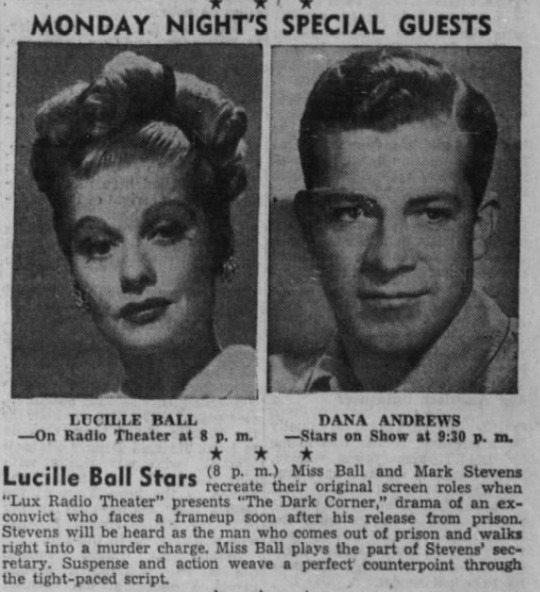
Directed by Fred MacKaye with musical direction by Louis Silvers and sound effects by Charlie Forsyth
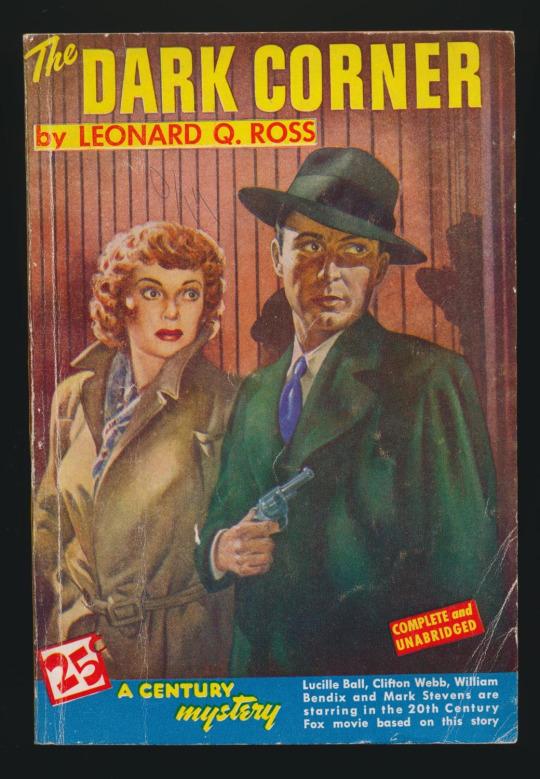
Adapted for radio by Sanford Barnett from the screenplay by Jay Dratler and Bernard Schoenfeld based on the book by Leo Rosten.
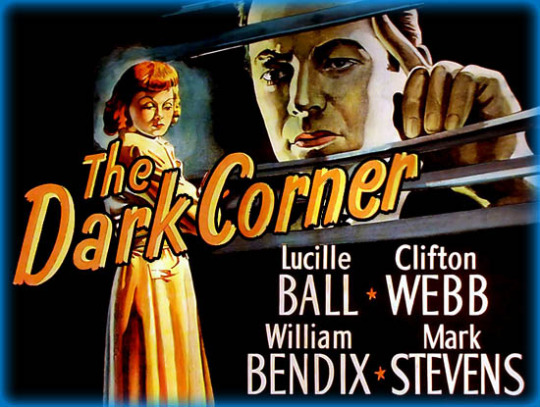
It was based on the 20th Century Fox motion picture of the same name released on May 8, 1946.
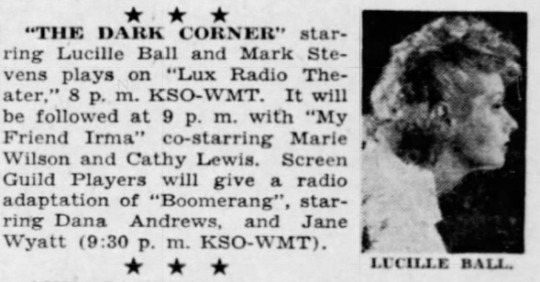
In later years, Lucille Ball was vocal about hating the experience of shooting The Dark Corner. Director Henry Hathaway's bullying reduced Ball to stuttering on set, at which point Hathaway accused her of being inebriated. At the time, Lucille Ball was suing to get out of her contract with MGM. As a result, MGM loaned her to Fox for this picture, which included a significant pay cut.

Lux Radio Theatre (1935-55) was a radio anthology series that adapted Broadway plays during its first two seasons before it began adapting films (”Lux Presents Hollywood”). These hour-long radio programs were performed live before studio audiences in Los Angeles. The series became the most popular dramatic anthology series on radio, broadcast for more than 20 years and continued on television as the Lux Video Theatre through most of the 1950s. The primary sponsor of the show was Unilever through its Lux Soap brand.
CAST

Lucille Ball (Kathleen Stewart) was born on August 6, 1911 in Jamestown, New York. She began her screen career in 1933 and was known in Hollywood as ‘Queen of the B’s’ due to her many appearances in ‘B’ movies. “My Favorite Husband” eventually led to the creation of “I Love Lucy,” a television situation comedy in which she co-starred with her real-life husband, Latin bandleader Desi Arnaz. The program was phenomenally successful, allowing the couple to purchase what was once RKO Studios, re-naming it Desilu. When the show ended in 1960 (in an hour-long format known as “The Lucy-Desi Comedy Hour”) so did Lucy and Desi’s marriage. In 1962, hoping to keep Desilu financially solvent, Lucy returned to the sitcom format with “The Lucy Show,” which lasted six seasons. She followed that with a similar sitcom “Here’s Lucy” co-starring with her real-life children, Lucie and Desi Jr., as well as Gale Gordon, who had joined the cast of “The Lucy Show” during season two. Before her death in 1989, Lucy made one more attempt at a sitcom with “Life With Lucy,” also with Gordon.
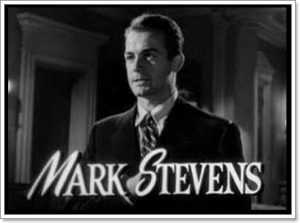
Mark Stevens (Bradford Galt) reprises his role from the film version of The Dark Corner (1946). He became a contract player for Warners at $100 a week in 1943 but they darkened and straightened his curly ginger-colored hair and covered his freckles. At first he was billed as Stephen Richards, he later changed it to Mark Stevens at the suggestion of Darryl F. Zanuck when he switched to 20th Century-Fox. He died in 1994 at age 77.

Joseph Kearns (Ralph Wickett) appeared on “I Love Lucy” as the psychiatrist in “The Kleptomaniac” (ILL S1;E27) and later played the theatre manager in “Lucy’s Night in Town” (S6;E22). His most famous role was as Mr. Wilson on TV’s “Dennis the Menace” (1959). When he passed away during the show’s final season, Lucy regular Gale Gordon took over for him, playing his brother.
In the film, the character was named Hardy Cathcart and was played by Clifton Webb.
Norma Jean Nilsson (Little Girl at the Boarding House) was a child actress who left Hollywood at age 19 after appearing in 16 films and television shows.
In the film, the character carries a slide whistle, which is not used here. She was played by Colleen Alpaugh.
Wally Maher (Fred Foss aka Stauffer) was born on August 4, 1908 in Cincinnati, Ohio. He was known for Mystery Street (1950), The Reformer and the Redhead (1950) and Hollywood Hotel (1937). He was married to Molly Bruno. He died on December 27, 1951.
In the feature film, the role was played by William Bendix, who would go on to fame as the title character in TV’s “The Life of Riley.”
Dan O'Herlihy (Anthony Jardine) was an Irish-born actor nominated for an Oscar in 1954 for Robinson Crusoe. In 1960 he made an appearance on Desilu’s “The Untouchables.” He was in two of the RoboCop movies. He died in 2005 at age 85.
In the feature film, the role was played by German-born actor Kurt Krueger.
Fay Baker (Mari Wickett) was born on January 31, 1917 in New York City as Fanita Baker Schwager. She was known for Notorious (1946), The House on Telegraph Hill (1951) and Deadline - U.S.A. (1952). She died on December 8, 1987.
In the feature film, the role was taken by Cathy Downs, making her first credited screen appearance.
ENSEMBLE
Trude Marson was seen in uncredited roles in four films from 1937 to 1947.
Noreen Gammill started her screen career as the voice of Catty the Elephant in Disney’s Dumbo (1941). She made two background appearances on “The Andy Griffith Show” (1963 and 1964), filmed on the Desilu backlot.
William Johnstone is probably best remembered as Judge Lowell on the long-running daytime drama “As The World Turns”. Prior to that he worked extensively in radio and took over the role of Lamont Cranston on "The Shadow" playing opposite Agnes Moorehead when Orson Welles left the series.
Janet Scott was a regular background voice on “Lux Radio Theatre” with dozens of episodes to her credit from 1937 to 1955.
Lois Corbett was married to Don Wilson of “The Jack Benny Program” and as such did more than a dozen episodes of the television shows with him from 1954 to 1964.
Edward Marr was seen in The Affairs of Annabel with Lucille Ball in 1938. He was also in two Bob Hope TV specials with Hope and Ball in 1966 and 1970.
Stanley Farrar was seen on “I Love Lucy” in “Home Movies” (ILL S3;E20) and “Staten Island Ferry” (ILL S5;E12). He on “The Lucy Show” in “Lucy and Arthur Godfrey” (TLS S3;E23) and “Lucy Meets Danny Kaye” (TLS S3;E15).
Herb Butterfield was born on October 28, 1895 in Providence, Rhode Island. He was known for The Halls of Ivy (1954), The House on Telegraph Hill (1951) and Shield for Murder (1954). On radio, he portrayed the Commissioner on NBC 's "Dangerous Assignment" (1949-53) and Clarence Wellman on "The Halls of Ivy" (1950-52). He died on May 2, 1957
Cliff Clark was seen with Lucille Ball in Her Husband’s Affairs (1947), Miss Grant Takes Richmond (1949), and The Fuller Brush Girl (1950).
OTHERS

William Keighley (Host and Producer) was the director of nearly 40 feature films between 1932 and 1953. His film The Adventures of Robin Hood (1938) was selected for the National Film Registry by the Library of Congress as being culturally significant.
Dorothy Lovett (Commercial Spokeswoman as Libby Collins, Hollywood Reporter) appeared as Meta Bauer on radio’s “The Guiding Light" (1945-47) and as Toni Sherwood in "The Adventures of Rocky Jordan". She did three films with Lucille Ball from 1939 to 1941.
Betty Ann Lynn (Herself, Act Two Intermission Guest) is best known for playing Thelma Lou on “The Andy Griffith Show” (1961 to 1965) which was filmed on the Desilu back lot.
John Milton Kennedy (Announcer) was the announcer of all 35 episodes of “The Loretta Young Show” from 1954 to 1955.
ACT ONE

William Keighley introduces the program, noting that many years earlier, director Fred Kohlmar saw a titian-haired young model who had great possibilities - Lucille Ball. He later had the privilege of presenting her in the film version of The Dark Corner. After a mention of Lux Toilet Soap, the program begins.
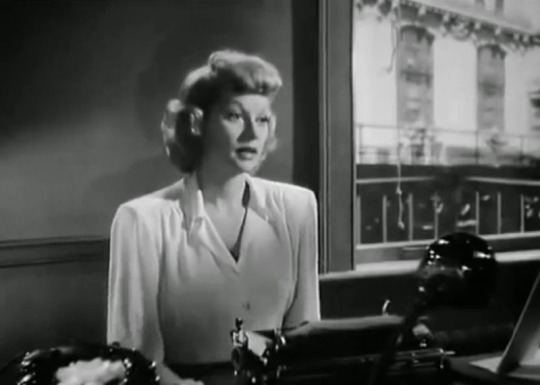
The action opens in a New York City office building on a sultry summer afternoon. Police detective Reeves visits the Offices of Bradford Galt, Private Investigator and speaks to his secretary, Kathleen Stewart.
Galt enters and Reeves wonders why Galt didn’t notify him that he moved offices after his prior unpleasantness. Galt asks Kathleen to have dinner with him. After dinner, Galt asks her to go dancing but she’s wise to his advance. As they walk down the street, they realize that they are being followed.
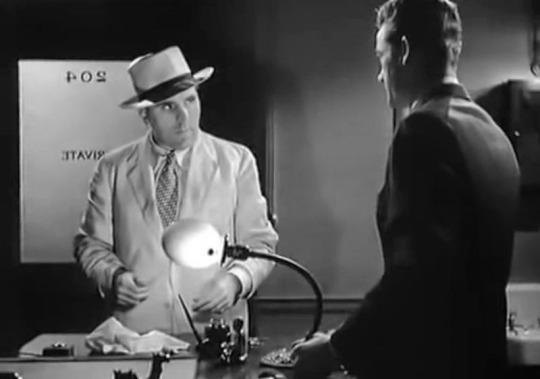
Kathleen takes a cab back to the office, while Galt confronts the pursuer at gunpoint, taking him back to his office for questioning. He says his name is Fred Foss, and that he’s also a private detective. Galt doesn’t believe him and decides to beat the truth out of him.

After some roughing up, Fred discloses that he is being paid to tail Galt by Anthony Jardine. In the tussle, some ink spills on Foss’s white suit. He lets Foss leave. Kathleen was supposed to tail Foss after he left the office, but he tricked her and got away.
Back at his rooming house, Foss uses the hall telephone to call art gallery owner Ralph Wickett, and his ink-stained suit is noticed by a Little Girl neighbor.
At a party for his third wedding anniversary, Wickett hangs up and is greeted by Jardine, a lawyer. Mrs. Lucy Wilding takes Jardine aside pretending to ask legal advice, but it is revealed that he is blackmailing her.
Meanwhile, Galt confides in Kathleen about his past. Jardine is trying to kill Galt because he was a former partner that Galt confronted about his blackmailing female clients. Now Jardine wants to finish the job.
Mari Wickett, Ralph’s wife, is having an affair with Anthony Jardine. She wants to run away with him. At the same time, Galt is headed there to settle the score.
End of Act One

A Lux commercial break takes the form of a story from Libby Collins, Hollywood Reporter. She says she saw Universal’s The Lost Moment starring Robert Cummings and Susan Hayward. Libby says she was on location when they filmed the big fire scene, the biggest fire ever done on a sound stage. She says that she and Susan Hayward washed the soot off their faces with Lux Toilet Soap!
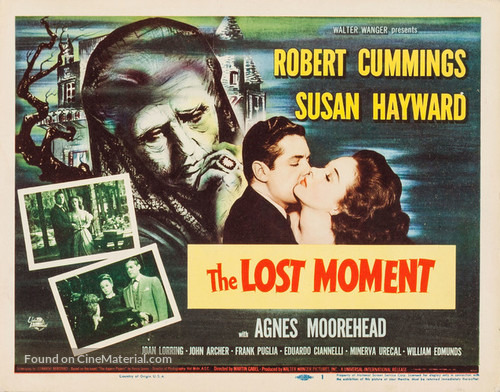
At the time of the broadcast, The Lost Moment was still two weeks from being released. It opened in cinemas on November 27, 1947. The story is set in Italy, so the cast included Edward Ciannelli, who played pizzeria owner Mr. Martinelli in “Visitor from Italy” (ILL S6;E5) and Saverio LoMedico who played the Rome hotel bellboy in “Lucy’s Italian Movie” (ILL S5;E23). The film was not a box office success.
ACT TWO

An hour has past since the end of Act One and Galt is at Jardine’s door. Galt threatens Jardine, who denies tailing him.The two fight while Mari is hiding in the other room. After Galt leaves, she convinces him to run away with her.
At the Gallery, Wickett is visited by Foss. It is clear Wickett is setting up Jardine to take the fall when he has Galt killed. Foss calls Galt to betray Jardine for a price. Galt suggests a one-on-one meeting at his apartment - 904 West 52nd, apartment 307 at 8pm sharp. Wickett will send Jardine to Galt’s apartment at 7:30pm.
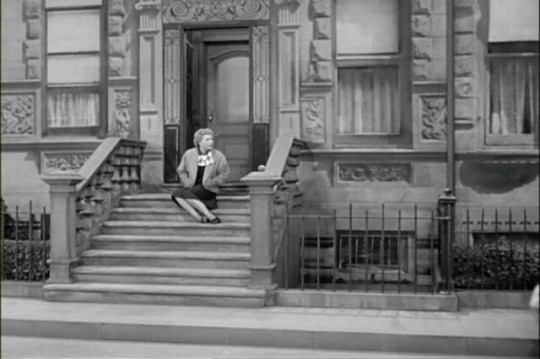
In reality, there is no such address. West 52nd Street in New York City ends at the the 600s block. This is similar to the Ricardo and Mertz apartment building. 623 East 68th Street, which, if real, would be in the East River!
Kathleen and Galt are supposed to meet at the movies, but he doesn’t show so he goes to his apartment at 8:30. Galt opens the door and reveals that Jardine is dead. Galt was ambushed with and knocked out with ether. He woke up to find Jardine’s body bludgeoned by the fireplace poker. Galt realizes he was set up.
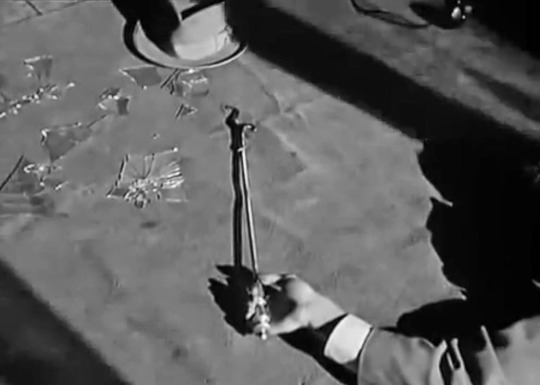
Later, Galt meets Kathleen at her apartment. He couldn’t find Foss and doesn’t know where to look next.
Wickett reminds Mari that they are due at the Kinsglsey’s that night, but she begs off. He strongly hints that he knows that Mari is stepping out on him and looking to run off.
Galt suddenly realizes that Foss would have to have his white suit cleaned, so he is determined to search all the cleaners for the suit and get his address.
Foss phones Wickett, and the Little Girl is there to overhear his conversation. Foss makes a plan to meet Wickett on the 31st floor of the Grant building.
Galt and Kathleen are about to give up on the search for the suit when a cleaner comes through. They get his address and trace Foss to the rooming house where he lives. His name turns out to be Stauffer, not Foss. The landlady reports that he moved out an hour ago and doesn’t know where he went. But the Little Girl does - and spills the beans for a quarter! Galt and Kathleen head for the Grant Building.
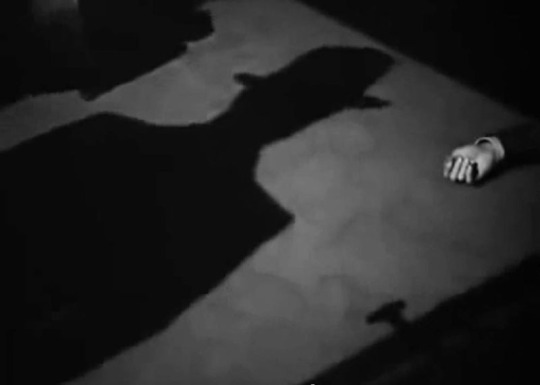
End of Act Two
In the break, Keighley interviews Fox contract player Betty Ann Lynn, who saw filming of Daryl F. Zanuck’s Gentleman’s Agreement starring Gregory Peck and Dorothy McGuire in a “very unusual picture”.

Gentleman’s Agreement premiered on November 11, one day after this broadcast, in both New York City and Chicago. It dealt with anti-Semitism and went on to win three Oscars, including Best Picture. The cast included Lucycom alumni Mike Lally, Shep Houghton, Roy Roberts, and Amzie Strickland in uncredited roles. Betty Ann Lynn says that she also likes to watch the filming of a costume picture like The Foxes of Harrow starring Rex Harrison and Maureen O’Hara, who had 26 costumes made just for her. She notes that O’Hara has a Lux complexion.
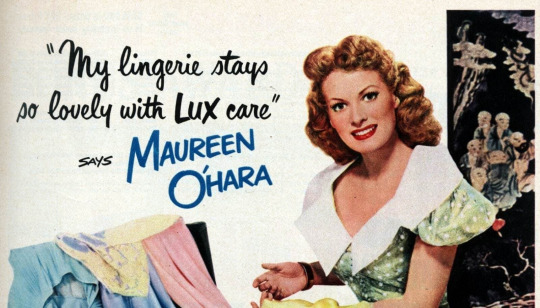
The Foxes of Harrow was released September 13, 1947. "Lux Radio Theater" broadcast a sixty minute radio adaptation of this movie on December 6, 1948, with Maureen O'Hara reprising her movie role. The movie was the screen debut of William Schallert, who did several episodes of “The Lucy Show.” O’Hara and Lucille Ball became lifelong friends after their 1940 film Dance, Girl, Dance. Like Gentleman’s Agreement, The Foxes of Harrow also features Roy Roberts, who went on to play bank president Mr. Cheever on “The Lucy Show.”
ACT THREE
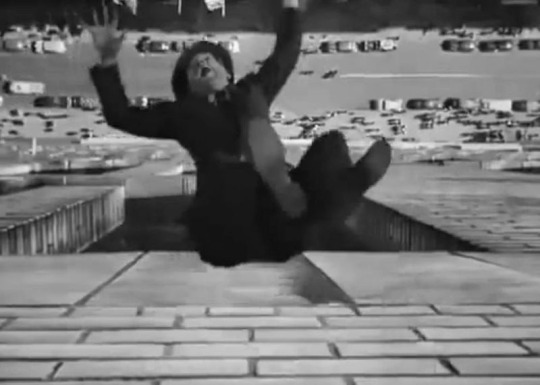
Kathleen and Galt rush to the Grant Building, where Mr. Wickett is about to settle accounts on a remote fire escape. Foss / Stauffer brings proof that Jardine is dead but Wickett throws him from the fire escape to his death.
Galt and Kathleen witness the whole incident from the street, as does the cab driver who was waiting for Foss / Stauffer. Thinking fast, Galt steals the cab which still contains Foss’s luggage. Later, we hear that the bags were only full of clothes. Kathleen urges him to keep thinking. Kathleen suddenly remembers that the Little Girl mentioned galleries. They put the pieces together and all evidence leads them to the Wickett Galleries. Galt heads there and questions the clerk. Under the guise of buying a painting, Galt inquires about meeting Mr. Wickett, and the clerk departs. Mari comes in the side door, and Galt tells her that Anthony Jardine has been murdered. She faints. Wickett comes in and when Galt tells him the truth, Ralph locks him in the gallery vault. Mari has revived and overhears Ralph’s threats, holding a gun on him. She shoots her husband dead.
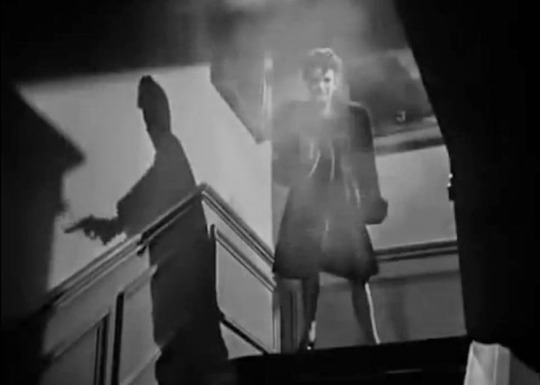
Kathleen has tipped off the police, who only want to charge him with stealing a taxi cab. Kathleen asks if he can be booked at another time because they have a date at the City Hall - to get married.
End of Story
As a curtain call, Keighley chats with Lucille Ball and Mark Stevens. He congratulates Ball on the success of her stage show, Dream Girl, a play she says she will do again in San Francisco. When Keighley asks how Lucille’s busy schedule and that of her husband Desi Arnaz’s leave any time for a personal life, Ball says that they will be playing in San Francisco at the same time.

In June 1947, Lucille Ball performed at New Jersey’s McCarter Theatre in Dream Girl, a play by Elmer Rice. It also played Brooklyn, Detroit and Boston.

The San Francisco production opened just a week after this radio telecast. As Ball states, Desi Arnaz was also in San Francisco at the time, playing in the Rose Room of the Palace Hotel, a fact that was advertised in the Dream Girl program. During the Los Angeles engagement in January 1948, Ball fell ill and had to withdraw. Although she love performing on stage, her radio career and then television success did not allow her to return to the footlights until 1960.

Lucy notes that like many other busy stars, she owes her good complexion to Lux Soap!
Turning to Mark Stevens, Lucille notes that he will play an FBI man in his next project at Fox, with Keighley as director.
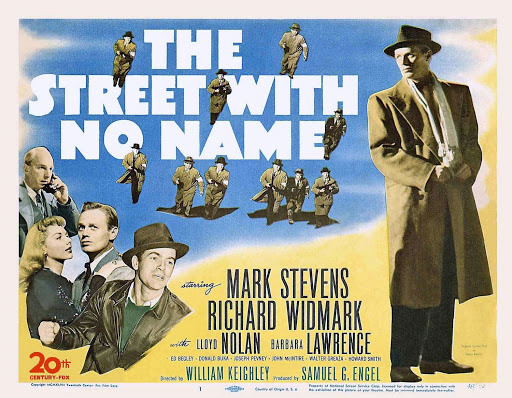
Although the film’s title is not mentioned, they are referring to The Street With No Name, which won’t be released until June 1948. Stevens plays Gene Cordell aka George Manley, a covert FBI agent who infiltrates a ruthless gangster mob. "Lux Radio Theater" broadcast a 60-minute radio adaptation of the movie on January 31, 1949 with Mark Stevens reprising his film role.
Keighley notes that next week “Lux Radio Theatre” will present Jane Wyman and Ronald Reagan in Nobody Lives Forever.

The Warner Brothers picture Nobody Lives Forever was released on November 1, 1946. It originally starred John Garfield and Geraldine Fitzgerald in roles taken on radio by Reagan and Wyman, who were husband and wife at the time. Of course, Reagan left Hollywood for a grander stage, first in California as Governor, then as President of the United States. He bestowed Lucille Ball with The Kennedy Center Honor in 1986.
A public service announcement asks housewives to salvage kitchen fats and turn them in at their local butcher for cash!
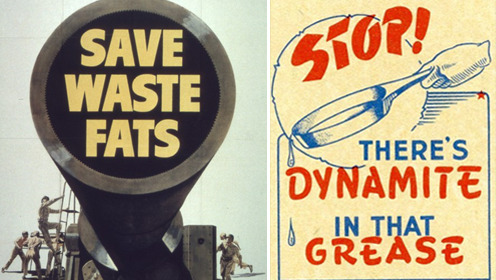
These were used to make supplies for wartime, such as ammunition and weapons.
Announcer Kennedy notes that Mark Stevens appeared through the courtesy of 20th Century Fox, producers of Forever Amber.

Forever Amber is a 1944 romance novel by Kathleen Winsor set in 17th-century England. It was made into a film in 1947 starring Cornel Wilde, who appeared in “The Star Upstairs” (ILL S4;E25). When “Lucy Writes A Novel” (ILL S3;E24), Ethel jokes about finding Lucy’s hidden manuscript and burning it: “We pulled down the kitchen blind and changed the name of your novel to 'Forever Ember.'”
‘DARK’ TRIVIA

In a September 1985 episode of “Remington Steele,” a character played by Stephen Dillane has the name Bradford Galt! The stories, however, are not otherwise connected.
In both the film and the radio show, Fred Foss gives his phone number as CH-elsea 4-43510. However, according to the Manhattan phone book for 1946, there were only CH-elsea 2 and CH-elsea 3 exchanges. Real phone numbers were rarely used in film or television.

When television began to supplant radio, “The Lux Video Theatre” was introduced. It was seen from 1950 to 1959. Initially, the show was a thirty-minute weekly show featuring live stage plays, but when it moved to NBC in August 1954, the show was extended to sixty minutes. As on radio, the programs were then primarily adaptations of motion pictures. The host would introduce each act, and would conduct an interview with the stars at the end of the play. Of the cast of this radio version of The Dark Corner:
William Keighley directed an episode in 1951.
Mark Stevens did an episode in 1955.
Dan O’Herlihy did five episodes.
Joseph Kearns did three episodes.
The character name Ralph Wickett replaced Hardy Cathcart for the radio show. It is likely that they could no longer get legal clearance to use the name Hardy Cathcart, necessitating the change.
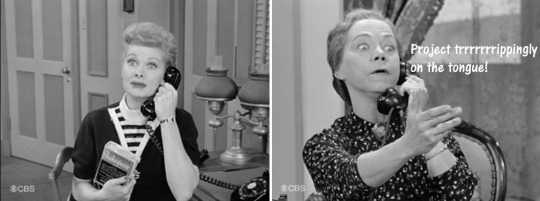
The film featured Ellen Corby as a maid, a role not in the radio drama. Corby went on to be seen as Lucy Ricardo’s high school acting teacher and in several small roles on “The Lucy Show” before her best-loved role of Grandma on “The Waltons.”

The film also features background work by Sam Harris, who did 15 films with Lucille Ball, in addition to multiple episodes of “I Love Lucy” and “The Lucy Show” as well as Harold Miller, who did eight films with Lucy and two episodes of “I Love Lucy”.

The film is available on DVD complete with DVD commentary and original trailer.

#The Dark Corner#Lucille Ball#Mark Stevens#Lux Radio Theatre#Radio#1948#Joseph Kearns#William Keighley#1947
8 notes
·
View notes
Photo
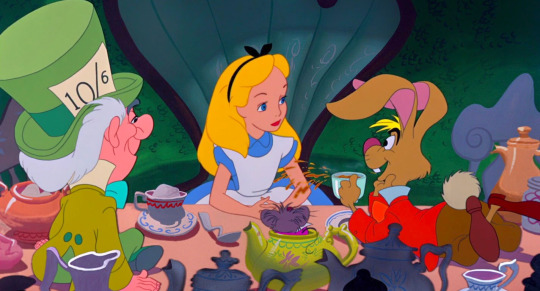
Movie Odyssey Retrospective
Alice in Wonderland (1951)
There is an abandoned building at 1127 E 31st St. in Kansas City, Missouri. That 1922 building, made up of red brick and mortar, would have met the wrecking ball long ago, if not for its historical value. For one year, it housed the Laugh-O-Gram Studio, founded by Walt Disney and the first job in animated film for several people who would become instrumental in shaping the American animation industry. Alongside Disney, the Laugh-O-Gram staff included:
Ubbe “Ub” Iwerks, who co-created Mickey Mouse and Oswald the Lucky Rabbit with Walt. Ub stayed with the Disney studios as an animator or special effects specialist through Mary Poppins (1964);
Hugh Harman and Rudolf Ising, who founded Looney Tunes and Merrie Melodies with Warner Bros. in the 1930s under producer Leon Schlesinger, later moving to Metro-Goldwyn-Mayer (MGM);
and Friz Freleng, who joined Harman and Ising and Warner Bros and MGM as principally a director, while introducing or developing most of the central Looney Tunes characters.
All of these figures would shape the environment for animated talkies into the midcentury. But Laugh-O-Gram could not survive the financial obstacles that led to the studio’s closure after only a year. Go back and watch the Laugh-O-Gram shorts and you will find imaginative, rowdy stories paired with movements as fluid as animators not named Winsor McCay (1914’s Gertie the Dinosaur, 1918’s The Sinking of the Lusitania) could draw in the early 1920s. Laugh-O-Gram’s last film, Alice’s Wonderland (1923), was never released commercially to the public and – considering its hybrid of animation and live-action footage – demonstrates the influence McCay had over Disney and his fellow animators.
Later in 1923, Walt submitted Alice’s Wonderland to Margaret Winkler, whose Winkler Productions was the leading animated short film distributor of the time. Winkler had just fallen out professionally with Pat Sullivan, the co-creator of Felix the Cat. Needing a quick replacement and charmed by the animated frenzy surrounding the hybrid animation/live-action Alice, Winkler signed Walt Disney and his Laugh-O-Gram team (including child actress Virginia Davis) to produce the Alice Comedies short film series (1923-1927, including 1923’s Alice’s Wonderland) in Hollywood. These films, Disney’s first taste of commercial triumph, shared little resemblance to Lewis Carroll’s novels Alice’s Adventures in Wonderland and Through the Looking-Glass, except for the curiosity of the title character and the fantastical situations she might find herself in. After the end of the Alice Comedies series and the formation of Walt Disney Productions (now Walt Disney Animation Studios), Walt wished to adapt Carroll’s books – which he had been familiar with since his childhood in Missouri – into a feature film. Outside forces delayed the project, including the box office failure of Paramount’s live-action Alice in Wonderland (1933) and the creative and fiscal burdens that his studio had to bear during World War II.
During this time, Walt resigned himself to the fact that any animated adaptation of Carroll’s novels, more interested in illogic and wordplay than any sensible storytelling, would not reach the artistic heights of Snow White and the Seven Dwarfs (1937). His long wait to adapt Alice in Wonderland as a feature film would end in 1951, with the film co-directed by Clyde Geronimi, Wilfred Jackson, and Hamilton Luske. A stellar voice cast, mixture of storybook and unusual animation, and an acceptance of its own absurdity make Alice in Wonderland one of the best non-Golden Age Disney animated features.
Alice (voiced by Kathryn Beaumont) is a child, probably ten years of age give or take. She is one of the youngest protagonists in Disney’s animated canon and a rare human female lead without monarchical ties or aspirations. Her story is simply a fantastical dream of her subconscious’ creation. Thus, freed from the limitations and expectations of the “real world”, Alice in Wonderland – and the novels it was adapted from – is an episodic series of nonsensical encounters of the various characters that inhabit Alice’s Wonderland. This posed a dilemma for the Disney animators and the army of writers on the film. How does one make Alice, whose only notable characteristics include her naïveté and incurable curiosity, a more interesting character than what Lewis Carroll wrote? With the animators and writers finding no answer, Disney’s Alice is just as reactive (as opposed to proactive) as Carroll’s characterization for her. Inane things happen to and around her, infrequently because of her own initiative; anyone expecting the studio’s first female lead to write down names, possess a sharp wit, and kick ass might need to recalibrate said expectations given the source material.
This discourse wades into questions about literary fidelity in cinema – no standard formula exists for how literature should be adapted to a film. To adapt Alice’s Adventures in Wonderland and Through the Looking-Glass as faithfully as possible would be to invite structural and tonal chaos. Carroll’s numerous poetic asides, extremely abrupt (and, to me, exhausting) tonal shifts, and his near-complete dedication to exposition whenever nonsense is not present does not make for a digestible film. The Alice in Wonderland that audiences have enjoyed since 1951 presents its developments far out of any Carroll’s narrative order. The tone and individual moments remain Carroll-esque, but, upon release, British critics savaged the film for degrading Carroll’s best-known works (more on this later). Yet by my judgment and familiarity with Carroll’s books (which, to reiterate, are not concerned about character development) Disney’s animated version is the best cinematic adaptation in line with the Carroll’s artistic intentions.
Alice in Wonderland is best seen as a quasi-Disney package film filled with one-upmanship in its animation. A distracted Walt was barely aware of day-by-day developments during production, and thus did not rein in some of the animated excess Alice in Wonderland is now justly acclaimed for. For the second consecutive entry in the Disney animated canon, Mary Blair’s concept art (1950’s Cinderella, 1953’s Peter Pan) is principally responsible for what the background animators would adopt. In the bookend scenes outside Wonderland, the lush, foliage-filled backgrounds recall her work during Disney’s package era, and are easily the most “realistic” backgrounds since the inimitable Bambi (1942). Once the film descends into Wonderland, the background animators, attempting to convert her concept art into cel animation, attempt (but fail to) replicate the characteristic flatness of her concept art.
But for everything else integral to Blair’s artwork – the lack of straight lines, highly stylized architectural and natural features, and detonation of colors – the background animators (who would be assigned specific scenes) faithfully render her style as closely as they can without completely making Alice in Wonderland a modernist phantasmagoria. The film is an overload of colorful experimentation. Just choose from any one of the scenes involving the White Rabbit’s house, the Caterpillar’s toadstool hideaway, the tea party, or the Queen of Hearts’ domain and one is subject to a visual cacophony of inspired production design and artistic audacity. It can be overwhelming, but Wonderland’s locales represent some of the greatest examples of settings-as-character in almost all of animated cinema.
Alice’s Wonderland, however, is nothing without the characters that dwell within. Some of the most impressive character designs of Disney’s mid-century animated films appear in this film, thanks mostly to two of the “Nine Old Men” – Ward Kimball (Snow White and the Seven Dwarfs, 1971’s Bedknobs and Broomsticks) and Frank Thomas (1940’s Pinocchio, 1977’s The Rescuers) – and Norm Ferguson (“Dance of the Hours” in 1940’s Fantasia, 1953’s Peter Pan). Because of the sheer number of characters that Thomas and Kimball designed and directed on this film (and this is not even mentioning several other fellow directing animators), I will focus on two specific characters of theirs.
For Norm Ferguson, he is the sole directing animator of the Walrus and the Carpenter, the characters from the eponymous segment imparted to Alice by Tweedledee and Tweedledum (itself an adaptation of Carroll’s “The Walrus and the Carpenter” poem within Through the Looking-Glass). As a study of differences, the designs of both characters give their personalities away even if one were to mute the audio or view a still image. The Carpenter – scrawny, scruffy, and short – telegraphs his dimwittedness and gullibility from his opening moments on-screen. Adding to that visual characterization is that he shares a voice actor, J. Pat O'Malley, and a squeaky, honky timbre with Tweedledee and Tweedledum. O’Malley also voices the Walrus, but adjusts his delivery to a throaty bass, interspersed with the coughing one expects from a chain-smoker, let alone a chain-smoking walrus. The Walrus – appropriately rotund (as walruses should be) with a kitschy suit – is a charming fellow, but beneath that charm are his occasional all-knowing smirks that belie selfish intentions. Ferguson’s clashing character animation for both, in addition to the morbid comedy of “The Walrus and the Carpenter”, are a brilliant complement the abridged poem used in the scene. Alice in Wonderland would be Norman Ferguson’s penultimate film with the studio before his retirement due to complications with diabetes.
youtube
With Alice in Wonderland, Frank Thomas is the directing animator for the movie’s antagonist for the second straight Disney animated feature. The techniques and artistry used for Cinderella’s Lady Tremaine and the Queen of Hearts – voiced deliciously (and boisterously) by Disney regular Verna Felton (Dumbo’s Mrs. Jumbo and the Elephant Matriarch, Cinderella’s Fairy Godmother) – could not be any more different. Where Lady Tremaine was heavily rotoscoped in her movements and facial expressions, there is nothing realistic about the Queen of Hearts’ physicality. As a buxom bundle of waving limbs, she has arguably the most fleshy and expressive face in a 1950s Disney animated feature. In that face, in Felton’s iconic voice acting, we find a crazed monarch who desperately needs to see a therapist to contain her volcanic temper. Thomas’ character design sells the Queen of Hearts’ mood swings – perfunctory courteousness, egomania, pettiness, and bloodlust (“Off with his head!”). Thus, she becomes Disney’s closest analogue to the uptight and pretentious narcissists that the likes of Bugs Bunny or, to a lesser extent, Daffy Duck might have brought down to size in a Looney Tunes short film. How fortunate that the Queen of Hearts only appears in Alice in Wonderland’s concluding stages; an entire film dedicated to her (please do not pass this hypothetical along to a Walt Disney Company executive) would be a wearisome indulgence.
The last masterstroke of character design is thanks to Ward Kimball. Kimball, shortly about to revert his focus from feature animation to television and the Disney theme parks, was the principal designer of the Cheshire Cat. The wide-grinning Cheshire Cat, voiced by Sterling Holloway (Kaa in 1967’s The Jungle Book, the original voice of Winnie the Pooh), is a distinctive swirl of purple and pink stripes, his yellow eyes giving off a blazing glare. As opposed to the Queen of Hearts, the Cheshire Cat – no more or less peculiar than any other inhabitant of Wonderland – rarely stands on his hind legs. Instead, he prefers to perch himself, stomach-first, and limit his non-facial physical movements. With Holloway’s mellifluous voice acting, the physics-bending Cheshire Cat is not the sort to be vengeful or unleash verbal fire and brimstone. But with his capabilities of troublemaking for his own personal entertainment, he is the least predictable and perhaps most dangerous character of all. Depending on the viewer, the Cheshire Cat can be seen as a darkly comic figure and/or the film’s greatest source of malevolence, however restrained.
After watching Alice in Wonderland more than most Disney animated films over the course of my lifetime, I still struggle over how to categorize Kimball’s magical cat. Certainly, Cheshire Cat is an antagonist, but do his actions place him in the pantheon of Disney villains? Reading Carroll’s books and noting – however circuitously – Cheshire Cat helps Alice become “unlost”, perhaps being considered a trickster will suffice.
The soundtrack to Alice in Wonderland contains the greatest number of songs (sixteen from a potential thirty) in the entire Disney animated feature canon. That is partly due to the length of these compositions – clocking in, in several instances, at just under or over one minute – and that more than a handful of these songs are adaptations (partial or complete) of a Lewis Carroll poem. Disney hired a battalion of Tin Pan Alley composers and lyricists to pen/adapt songs around Carroll’s poems, but just over half of the songs were composed by Sammy Fain (“Secret Love” in 1953’s Calamity Jane, “Love is a Many-Splendored Thing” from the 1955 film of the same name) set to Bob Hilliard’s (“Civilization”, also known as “Bongo, Bongo, Bongo (I Don’t Want to Leave the Congo)”) lyrics. Among their mostly original compositions, Fain and Hilliard are responsible for the title song, “In a World of My Own”, and “Painting the Roses Red”, among several other earworms utilizing Carroll’s poetry.
Debatably Alice in Wonderland’s ultimate earworm is the original song “A Very Merry Un-birthday” by Mack David, Al Hoffman, and Jerry Livingston (the trio also composed “Bibbidi-Bobbidi-Boo in 1950’s Cinderella). Because of this song’s affiliation with a certain ride at the Disney theme parks, you, the reader, might already be very familiar with the song’s melody without ever watching Alice in Wonderland. Sung raucously by the Mad Hatter and March Hare (incredible voice acting by Ed Wynn and Jerry Colonna, respectively) alongside Alice, the “unbirthday song” is even more jaunty, celebratory, and devilishly catchy than “Happy Birthday” itself. With this lengthy soundtrack, Alice in Wonderland’s songs completely overshadow and are referenced across Oliver Wallace’s (the notorious title song and score to 1942’s Der Fuehrer’s Face, 1963’s The Incredible Journey) score. For such a riotous and absurd movie, the film contains an equally riotous and absurd soundtrack to empower all of its nonsense.
The qualities that have made Alice in Wonderland treasured by many (including yours truly) today are the exact same ones that British literary and film critics took issue with in 1951. This Alice eviscerates Lewis Carroll’s literary vision and it is too “American”, these critics wrote. Walt Disney, years removed from his namesake studio’s Golden Age animated features (an era where he might have considered the words of academic and critics), now could not care less.
Walt’s distaste for academic and critics in the second half of his career began after musical and film critics pilloried Fantasia (1940). But his disdain for such individuals was fully realized after their response to the innovative and controversial Song of the South (1946) – which Walt intended as a hurrah for the American folklore that colored his childhood. Even upon Song of the South’s release, protesters and picketers decried the film for sentimentalizing the lives of black people in the immediate postbellum American South. “The master-and-slave relation is so lovingly regarded in your yarn,” New York Times film critic Bosley Crowther wrote, “… that one might almost imagine that you figure Abe Lincoln made a mistake. Put down that mint julep, Mr. Disney.” Disney took this wave of criticism over Song of the South personally, and convinced himself that supposedly communist enemies from rival studios and hostile sociopolitical circles were inflaming these attacks against his films and his studio. How dare these people, Walt must have thought, tell the inventor of Mickey Mouse and the man who gave Hugh Harman, Rudolf Ising, and Friz Freleng their first jobs in animated cinema what he could or could not do artistically. Walt Disney could justly say he laid the foundation for American animated cinema in Kansas City – before Burbank, before the overcrowded studio in Hyperion – all those years ago, which must have fueled his pride and dismissal of his naysayers.
In an earlier decade, Walt – especially when noting that Carroll’s work was integral to his start in animated film in the 1920s – might have publicly lashed out to the polarized response that met Alice in Wonderland. Now, Walt had compartmentalized his feelings. And as Alice in Wonderland made its way through theaters, a long-gestating animated feature featuring a canine romance was finally moving forward. Another film, made possible due to the windfalls from Cinderella, had just been greenlit, and would not see completion until decade’s end.
Although not successful in its theatrical run, Alice in Wonderland became the first Disney film to rejuvenate its reputation in the popular mindset through television. TV became widespread in the United States and Britain after the Second World War and, with it, Walt Disney would use the medium to broadcast his older films, to alter popular perceptions of his own persona and personal history, and to employ idealized images and storytelling in telling the story of his namesake studio. Removed from the cultural discourse dominating airwaves and headlines in the early 1950s, viewers in the decades following Alice in Wonderland’s release can now appreciate the film’s role in the Disney animated canon. Alice in Wonderland is a demented classic that, because of its narrative-unfriendly content, has influenced few films following it. The film adjusts Lewis Carroll’s books in ways that pay homage to his writing, but also to chart a colorful course for viewers and Disney fans as cinematically as possible.
My rating: 9/10
^ Based on my personal imdb rating. Half-points are always rounded down. My interpretation of that ratings system can be found in the “Ratings system” page on my blog (as of July 1, 2020, tumblr is not permitting certain posts with links to appear on tag pages, so I cannot provide the URL).
For more of my reviews tagged “My Movie Odyssey”, check out the tag of the same name on my blog.
This is the twenty-first Movie Odyssey Retrospective. Movie Odyssey Retrospectives are reviews on films I had seen in their entirety before this blog’s creation or films I failed to give a full-length write-up to following the blog’s creation. Previous Retrospectives include The Kid (1921), Cinderella (1950), and The Sound of Music (1965).
#Alice in Wonderland#Walt Disney#Clyde Geronimi#Wilfred Jackson#Hamilton Luske#Kathryn Beaumont#Ed Wynn#Sterling Holloway#Verna Felton#J. Pat O'Malley#Bill Thompson#Mary Blair#Oliver Wallace#Ted Sears#Sammy Fain#Bob Hilliard#Norman Ferguson#Ward Kimball#Frank Thomas#My Movie Odyssey
5 notes
·
View notes
Text
Watch Canada's Drag Race Season 1 Episode 10 : Full_Episodes
BIGG~MoVieS[HD+]- watch Canada's Drag Race Season 1 Episode 10 FULL EPISODES? HQ Reddit Video [DVD-ENGLISH] Canada's Drag Race Season 1 Episode 10 (2020) Full Movie Watch online free Dailymotion [#Canada's Drag Race Season 1 Episode 10] Google Drive/[DvdRip-USA/Eng-Subs] Canada's Drag Race Season 1 Episode 10! (2020) Full Movie Watch online No Sign Up 123 Movies Online !!
〘 Official | 123Movies | Watch | Full Episodes | Openload | Netflix 〙

=================๑۩๑===============
WATCH HERE 📥 📥 https://Canada's Drag Race Season 1 Full_Episodes
=================๑۩๑===============
In Canada's Drag Race Season 1 Episode 10, the gang is back but the game has changed. As they return to rescue one of their own, the players will have to brave parts unknown from arid deserts to snowy mountains, to escape the world’s most dangerous game. Canada's Drag Race Season 1 Episode 10 (2020) [CARTERET] | Watch Canada's Drag Race Season 1 Episode 10 Online 2020 Full Movie Free HD.720Px|Watch Canada's Drag Race Season 1 Episode 10 Online 2020 Full MovieS Free HD !! Canada's Drag Race Season 1 Episode 10 (2020) with English Subtitles ready for download, Canada's Drag Race Season 1 Episode 10 2020 720p, 1080p, BrRip, DvdRip, Youtube, Reddit, Multilanguage and High Quality.
Watch Canada's Drag Race Season 1 Episode 10 Online Free Streaming, Watch Canada's Drag Race Season 1 Episode 10 Online Full Streaming In HD Quality, Let’s go to watch the latest movies of your favorite movies, Canada's Drag Race Season 1 Episode 10. come on join us!!
What happened in this movie?
I have a summary for you. It’s the first rose ceremony of the movie and the drama is already ratcheted up! Two very different men – Blake and Dylan – have their hearts set on handing their rose to HCanada's Drag Race Season 1 Episode 10h G., but who will offer it to her and will she accept?
All About The movies
Euphoria centers on CDC researcher Abby Arcane. When she returns to her childhood home of Houma, Louisiana, in order to investigate a deadly swamp-borne virus, she develops a surprising bond with scientist Alec Holland — only to have him tragically taken from her. But as powerful forces descend on Houma, intent on exploiting the swamp’s mysterious properties for their own purposes, Abby will discover that the swamp holds mystical secrets, both horrifying and wondrous — and the potential love of her life may not be Canada's Drag Race Season 1 Episode 10 all.
Public Group
2 minutes ago
#moviesfree co Watch Online Canada's Drag Race Season 1 Episode 10: Complete movies Free Online Full Strengthens
Crusaders and mountan Moorish comders rebelled against the British crown.
How long have you fallen asleep during Canada's Drag Race Season 1 Episode 10 Movie? The music, the story, and the message are phenomenal in Canada's Drag Race Season 1 Episode 10. I have never been able to see another Movie five times like I did this. Come back and look for the second time and pay attention.
Watch Canada's Drag Race Season 1 Episode 10 WEB-DL movies This is losing less lame files from streaming Canada's Drag Race Season 1 Episode 10, like Netflix, Amazon Video.
Hulu, Crunchy roll, DiscoveryGO, BBC iPlayer, etc. These are also movies or TV shows that are downloaded through online distribution sites, such as iTunes.
The quality is quite good because it is not re-encoded. Video streams (H.264 or H.265) and audio (AC3 / Canada's Drag Race Season 1 Episode 10) are usually extracted from iTunes or Amazon Video and then reinstalled into the MKV container without sacrificing quality. Download Euphoria Movie Season 3 Movie 6 One of the streaming movies.
Watch Canada's Drag Race Season 1 Episode 10 Miles Morales conjures his life between being a middle school student and becoming Canada's Drag Race Season 1 Episode 10.
However, when Wilson “Kingpin” Fiskuses as a super collider, another Captive State from another dimension, Peter Parker, accidentally ended up in the Miles dimension.
When Peter trained the Miles to get better, Spider-, they soon joined four other Canada's Drag Race Season 1 Episode 10 from across the “Spider-Verse”. Because all these conflicting dimensions begin to destroy Brooklyn, Miles must help others stop Fisk and return everyone to their own dimensions.
the industry’s biggest impact is on the DVD industry, which effectively met its destruction by mass popularizing online content. The emergence of streaming media has caused the fall of y DVD rental companies such as Blockbuster. In July 2020, an article from the New York Times published an article about Netflix DVD, No ches Frida 2s. It was stated that Netflix was continuing their DVD No. No Frida 2s with 5.3 million customers, which was a significant decrease from the previous year. On the other hand, their streaming, No ches Frida 2s, has 65 million members. In a March 2020 study that assessed “The Impact of movies of Streaming on Traditional DVD Movie Rentals” it was found that respondents did not buy DVD movies nearly as much, if ever, because streaming had taken over the market.
So we get more space adventures, more original story material and more about what will make this 21st MCU movie different from the previous 20 MCU films.
Watch Final Space Season 2 — Movie 6, viewers don’t consider the quality of movies to differ significantly between DVDs and online streaming. Problems that according to respondents need to be improved by streaming movies including fast forwarding or rewinding functions, and search functions. This article highlights that streaming quality movies as an industry will only increase in time, because advertising revenues continue to soar on an annual basis across industries, providing incentives for the production of quality content.
He is someone we don’t see happening. Still, Brie Larson’s resume is impressive. The actress has been playing on TV and film sets since she was 11 years old. One of those confused with Swedish player Alicia Vikander (Tomb Raider) won an Oscar in 2016. She was the first Marvel movie star with a female leader. . And soon, he will play a CIA agent in a movies commissioned by Apple for his future platform. The movies he produced together.
Unknown to the general public in 2016, this “neighbor girl” won an Academy Award for best actress for her poignant appearance in the “Room”, the true story of a wo who was exiled with her child by predators. He had overtaken Cate Blanchett and Jennifer Lawrence, both of them had run out of statues, but also Charlotte Rampling and Saoirse Ronan.
Watch Canada's Drag Race Season 1 Episode 10 Movie Online Blu-rayor Bluray rips directly from Blu-ray discs to 1080p or 720p (depending on source), and uses the x264 codec. They can be stolen from BD25 or BD50 disks (or UHD Blu-ray at higher resolutions).
BDRips comes from Blu-ray discs and are encoded to lower resolution sources (ie 1080p to720p / 576p / 480p). BRRip is a video that has been encoded at HD resolution (usually 1080p) which is then transcribed to SD resolution. Watch Canada's Drag Race Season 1 Episode 10 The BD / BRRip Movie in DVDRip resolution looks better, however, because the encoding is from a higher quality source.
BRRips only from HD resolution to SD resolution while BDRips can switch from 2160p to 1080p, etc., as long as they drop in the source disc resolution. Watch Canada's Drag Race Season 1 Episode 10 Movie Full BDRip is not transcode and can move down for encryption, but BRRip can only go down to SD resolution because they are transcribed.
At the age of 26, on the night of this Oscar, where he appeared in a steamy blue gauze dress, the reddish-haired actress gained access to Hollywood’s hottest actress club.
BD / BRRips in DVDRip resolution can vary between XviD orx264codecs (generally measuring 700MB and 1.5GB and the size of DVD5 or DVD9: 4.5GB or 8.4GB) which is larger, the size fluctuates depending on the length and quality of release, but increasingly the higher the size, the more likely they are to use the x264 codec.
With its classic and secret beauty, this Californian from Sacramento has won the Summit. He was seen on “21 Jump Street” with Channing Tatum, and “Crazy Amy” by Judd Apatow. And against more prominent actresses like Jennifer Lawrence, Gal Gadot or Scarlett Johansson, Brie Larson signed a seven-contract deal with Marvel.
There is nothing like that with Watch The Curse of La Llorona Free Online, which is signed mainly by women. And it feels. When he’s not in a combination of full-featured superheroes, Carol Danvers runs Nirvana as greedy anti-erotic as possible and proves to be very independent. This is even the key to his strength: if the super hero is so unique, we are told, it is thanks to his ability since childhood, despite being ridiculed masculine, to stand alone. Too bad it’s not enough to make a film that stands up completely … Errors in scenarios and realization are complicated and impossible to be inspired.
There is no sequence of actions that are truly shocking and actress Brie Larson failed to make her character charming. Spending his time displaying scorn and ridicule, his courageous attitude continually weakens empathy and prevents the audience from shuddering at the danger and changes facing the hero. Too bad, because the tape offers very good things to the person including the red cat and young Nick Fury and both eyes (the film took place in the 1990s). In this case, if Samuel Jackson’s rejuvenation by digital technology is impressive, the illusion is only for his face. Once the actor moves or starts the sequence of actions, the stiffness of his movements is clear and reminds of his true age. Details but it shows that digital is fortunately still at a limit. As for Goose, the cat, we will not say more about his role not to “express”.
Already the 21st film for stable Marvel Cinema was launched 10 years ago, and while waiting for the sequel to The 100 Season 6 Movie war infinity (The 100 Season 6 Movie, released April 24 home), this new work is a suitable drink but struggles to hold back for the body and to be really refreshing. Let’s hope that following the adventures of the strongest heroes, Marvel aged to increase levels and prove better.
Watch ACanada's Drag Race Season 1 Episode 10 Full Episodes ✓ Enjoy watching! Watch Full Episode Online Complete!
Canada's Drag Race watch Canada's Drag Race Canada's Drag Race Season 1 Episode 10 Canada's Drag Race Season 1 Episode 10 Canada's Drag Race Saison 1 Episode 10 Canada's Drag Race Temporada 1 Capitulo 10 Canada's Drag Race Stagione 1 Episodio 10
#Canada's Drag Race#watch Canada's Drag Race#Canada's Drag Race Season 1 Episode 10#Canada's Drag Race Saison 1 Episode 10
12 notes
·
View notes
Text
Interview with Director/Screenwriter MAURO IVÁN OJEDA on his film THE FUNERAL HOME.
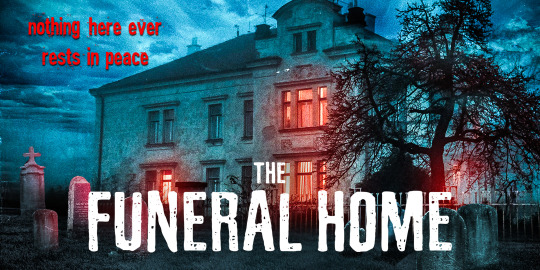
Argentinian director and screenwriter Mauro Iván Ojeda offers viewers a supernatural thriller with his film THE FUNERAL HOME.
Bernardo, played by Luis Machín, is an undertaker/funeral director, who runs his mortuary business on the same location as his family’s home. While part of his job is aiding the families to coupe with their loss, it seems that some of the “dearly” departed have not moved on and taken up residence in the family’s quarters. Bernardo, his wife, and daughter, manage to coupe with their “guests,” their presence adding more chaos to an already stressful home life. Things begin to spiral out of control when a darker, sinister spirit makes itself known. Bernardo turns to a local psychic, who has guided him in the past, to help his family in hopes of protecting them and removing the ghost that is terrorizing them.
Mauro Iván Ojeda is a talented filmmaker who serves up a compelling supernatural tale that is steeped in the cinematic tradition of such films as The Legend of Hell House, The Haunting, and Poltergeist. THE FUNERAL HOME is a smoldering tale that is flavored with some of traditions of Argentina that give it a fresh perspective.
We had the pleasure to ask Mauro Iván Ojeda about his film via email, as well as what he might have in the works for his next project.
FEARS: From what I could find on the internet, it appears that this is you first feature film. Is that correct? If so, why did you decide to make your debut with a horror film?
Mauro Iván Ojeda: Yes, The Funeral Home is my debut film. I like all genres, but since I was a child, and then in one of my jobs in a video club watching all the movies there, I’ve felt really attracted to the horror genre and the whole fantastic universe.
FEARS: What is or are the most important elements of a story you decide to make as a director; plot, characters, genre, budget, etc. Could you see yourself making a musical?
Mauro Iván Ojeda: The script is a very important pillar for me; the story must be original, powerful and must really have something to tell. The characters are the heart of each story, and if the heart does not beat, there is no life: the characters are fundamental. A musical? Yes, I would like something like The Wall by Alan Parker.
FEARS: How difficult was it to get a genre film made in Argentina?
Mauro Iván Ojeda: In Argentina you always find yourself dealing with the difficulty of the budget, especially for genre films. There are many factors that influence, and one of them is our national currency instability, which forces you to do your best ticks with all the teams to achieve a great film that has good production standards. Genre cinema in Argentina is increasingly solid, with very interesting filmmakers, good teams in all areas, bold actors and actresses, and great films are emerging. In this case, with Del Toro Films we teamed great, they have experience with horror films that have been part of many international film festivals, and have been distributed worldwide, that added a lot to this production.

FEARS: As a storyteller, who or what films would you say are your biggest influences on THE FUNERAL HOME?
Mauro Iván Ojeda: The films I’ve watched, some from my childhood, and that have inspired me in the universe of The Funeral Home are: Poltergeist, The Entity and some elements of The Conjuring.
FEARS: THE FUNERAL HOME has a lot of supernatural elements going right from the start. I was wondering what was the core idea that first inspired you to write the screenplay?
Mauro Iván Ojeda: The core idea of the script starts from the premise that the funeral home business that shares the same space with the family's home, slowly engulfs everything until the funeral business and the house become the same. Human relationships and family bounds are dying, inert, withering, coffins piled up as household furniture, scattered wreaths, the presence of corpses roaming the house and the naturalized interaction of the family with them, all that opened a door for me to the world of the “uncanny,” defined by Freud as: incidents where a familiar thing or event is encountered in an unsettling or eerie context, in which the familiar turns strange, or strange turns familiar, or both realities in the same context
FEARS: With all these subplots in the story did you decide to not to explore them more as a result of budget or running time?
Mauro Iván Ojeda: You choose the points of view and where to focus, those are decisions, obviously, putting in action the plot in a shooting schedule affects those decisions, sometimes, you have very little time to deliberate. In the case of THE FUNERAL HOME, there are many subplots that reinforce and strengthen the story, just as there are subtle elements that you can detect or not as a spectator.
FEARS: Is this story over for you or if you have the resources would you make another film set in this universe, with these characters? Because it seems like you have so much material here what are your thoughts in terms of long format like a series?
Mauro Iván Ojeda: It happens a lot to me, that people who watched the film, tell me that they would like to know about the beginnings of that house, how did all began. They tell me that they would like to see that world from its genesis, or, that I should place the second part a few years in the future and know what happens with this and that character. For now I don’t have in my projects to write something about LA FUNERARIA, but I don’t rule out that I can explore other formats such as series, or a second part.
FEARS: You have a great location; it’s like another character in the film. Did you find exactly what you were looking for, and other then the portable toilet, did you have to add/build anything to it?
Mauro Iván Ojeda: It took a huge search to find the ideal house, several months, almost a year, until one day I visited this house that would be the definitive one. I examined the house several times and it had everything I needed to tell the story. But it was not easy. There were several elements that were difficult to put on the set: the portable toilet (which seems to be the more obvious), but also there were a lot of coffins, there were about ten, and some were turned into flowerpots, then, painting the entire house and the location with the red lines that divide the area for the family, and creating the area for the presences with all its elements. All that had its degree of difficulty and cost.
FEARS: There are some great scary moments. There are a lot of what I assume are particle effects. I’m a fan of particle effects. Was that choice budget related, you didn’t have a CGI artist available to you, or, maybe, it was something else like schedule?
Mauro Iván Ojeda: There are many effects throughout the film, it was a nice challenge. There is a mix with VFX, and on set actions to make them look more real. It was my decision; I am one of those who believe that the special effect must be realistic, because if it looks fake it takes you out of history.
FEARS: I loved the daughter character, Irina, and the actress who played her. How hard was it to cast the part?
Mauro Iván Ojeda: Camila Vaccarini, the actress who plays Irina, was a great find. A casting was held, and then hours and hours spent analyzing footage and rehearsing scenes. Every time I saw Camila, it convinced me more. She had the talent and that high level of rigorousness and performance that her character required, from screaming and chasing, to enormous dramatic challenges.
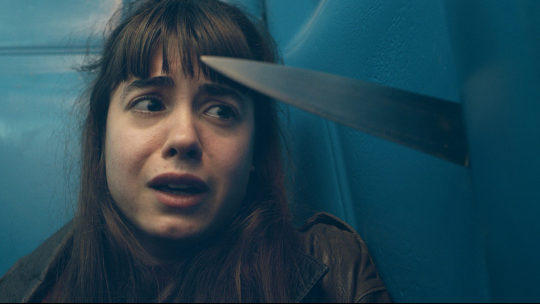
FEARS: Irina adds a bit of comic relief to the film. Was that something that was in the script or something that developed once that part was cast?
Mauro Iván Ojeda: The script had small hints of humor, very dosed, and Camila added certain characteristics to the character of Irina, that added a lot to the film.
FEARS: With THE FUNERAL HOME completed and being released, do you have other projects you are working on, anything you might already be in production on?
Mauro Iván Ojeda: While reaching our world release date in US and Canada, and waiting for the release of THE FUNERAL HOME in Argentina and other territories, I continue creating. I’m already engaged in two new projects. They are a crossover of horror and fantastic genres, written by me, and we are in developing stage with producers. This is a particular and difficult year due to the pandemic, but little by little we are advancing as much as possible. I hope soon I can get back to you with some news.
THE FUNERAL HOME Review: https://bit.ly/3oKF7bq
THE FUNERAL HOME Trailer: https://youtu.be/nnWvVwKJG3s
Interview by Joseph Mauceri
1 note
·
View note
Text
Winter Begonia episode 33 recap
The episode start with Lin Danqiu talking about finding what he thought was his family, wanting to turn his life around, but his crippling gambling debt prevented him from doing so. Aiyu told him everything would be alright, she would sell their ancestor’s estate and pay off his debts. At that moment, he decided/realized that he was a Zeng, that Aiyu and him were blood sibling, as he received such a huge favor from the family he never knew. That gave him motivation to protect his ‘sister’, to carry on the ancestral line and repay their kindness. That is all fine and dandy, but that is not your family. You are not blood, Rui Rui is. He slaps himself upon the realization that he got his sister to debase herself for his sake, telling Rui Rui he is sorry.

Er Ye arrives at the station looking for his bae. He spots Zeng Aiyu and asks her if she saw Shang Lao Ban. She tells him that he went for a chat with her gege. She then tells him that Rui Rui told her about Fengyi’s situation. She seems interesting in hearing about her daughter, but CFT tells her that he is raising the child, not to worry. She tells him she is not worried, just curious. He tells her that he knows about her prejudice towards opera performers but the troupe would not neglect the baby, will raise her well, and that she will not always live there. Probably wants to raise the baby with his wife until irresponsible baby Fan Lian grows up. I vote for keeping the baby with her biological uncle since she is Rui Rui only link to his blood sibling. OK, Er Ye pulls a picture of his wifey holding his niece and WHY THE FUCK DOES A STRAIGHT DUDE HAVE A PICTURE OF HIS SO-CALLED BROTHER IN HIS POCKET? Give me an explanation show!? He gives it to Aiyu as a keepsake to remind the baby by, and perhaps give her a keepsake of her real brother. I don’t know, this is still a salient point for me. The fact that Rui Rui and Danqiu look nothing alike, the fact that she can’t even recognize who her real brother is, bothers me. She looks at her daughter, half sad, half happy, calling the baby My Fengyi. Sigh. I wish she could raise the child, but single moms back then were a huge no no. Gone would have been her marriage prospect, her future. Er Ye asks if she has a picture of herself so that he could show Fengyi that her mother was a beautiful woman. She grabs her purse and pulls a picture.

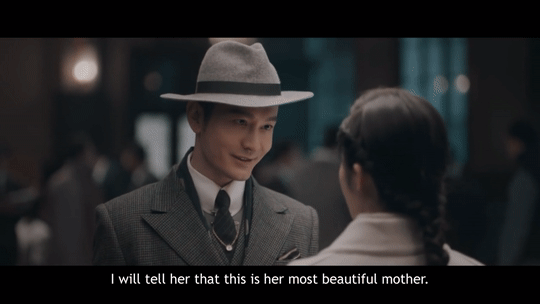
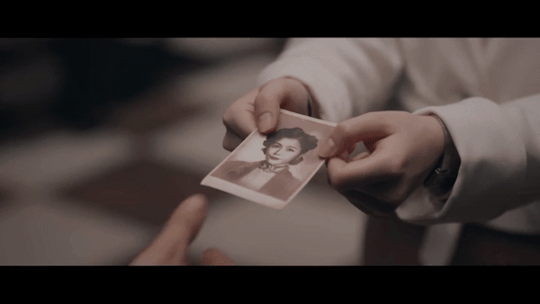
Meanwhile, her two brothers comes out, looking disheveled. She asks what happened, looking angrily at Rui Rui asking if he hurt her fake brother. Lin Danqiu tells her that he was clumsy and fell down the stairs. It’s a little white lie that has a lot of weight; it allows Zeng Aiyu to not leave with rancor in her heart for her real brother. She believes the lie, while Er Ye realizes the sacrifice his bae did in allowing Lin Danqiu to take his place as the eldest Zeng. Lin Danqiu bids his adieu and they leave for the train. Lin Danqiu pauses and gives a deep bow, probably of gratitude that he gets to have a life he never thought possible, due to Rui Rui’s sacrifice. Rui Rui calls out to his sister and tells her to take care of herself. She smiles at him, oblivious of the emotion behind such a simple sentence. My heart is in pain. I can’t. I just want Rui Rui to be happy, to be with his family. WELP.
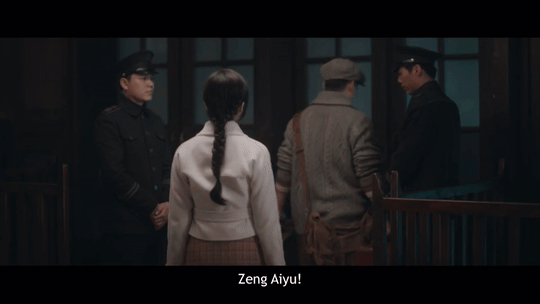
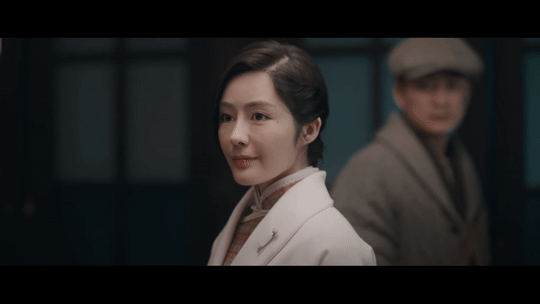
In the car, Er Ye tells Rui Rui he really thought his bae would beat Lin Danqiu to death. Rui Rui replies it is against the law to beat him to death, it’s not worth it. LOL, wait, since when do you care about such thing?! He adds that besides, it wouldn’t be punishment enough. Er Ye asks how did he punish him, but Rui Rui remains mum. Er Ye pulls Zeng Aiyu’s picture and gives him to Rui Rui. Awwww, so he actually got the picture for his bae! He tells Rui Rui if he doesn’t tell him how he punished Lin Danqiu he won’t give him the picture. Yooo, you know your Rui Rui can be a bit kooky, don’t play with him. As expected, Rui Rui tries to grab the picture and covers his eyes while the man is driving. LOL, I told you Er Ye. Rui Rui takes the picture while Er Ye is like, you might not care about your life, but I do! Awww Rui Rui is happy to have a picture of his meimei. LOL, they settle back into their married routine as Rui Rui tells him he is hungry and Er Ye obliges, asking him what does he want to eat. :Cough: I have some ideas... Oh wait, Rui Rui is talking about real food! He wants pan fried pork dumpling. Hmmm that is also delicious. Er Ye says okay and after that we are going to have a movie date.



Meanwhile, in the train, Lin Danqiu holds Rui Rui’s pendant. I have to say, this breaks my heart. Sigh, I am not happy, but I get it, still I am not happy. This would effectively close the possibility of Zeng Aiyu realizing her mistake, since for her the pendant will act as proof that Lin Danqiu is her real brother. I get why Rui Rui did it and it is a huge sacrifice to make. Our Rui Rui is growing up. We see in a flashback that Rui Rui gives him the pendant as he effectively accept that Lin Danqiu is the person his meimei recognizes as her brother and the punishment he has incurred upon Lin Danqiu is to take care and cherish her for his entire life, and for his sake (Rui Rui’s). If he finds out he tricked her or made her suffer, he will kill him. See, how mature our Rui Rui has become? She sees the pendant and jubilates that her gege has found his lost pendant. He lies and tells her that he suddenly found it while doing his luggage.
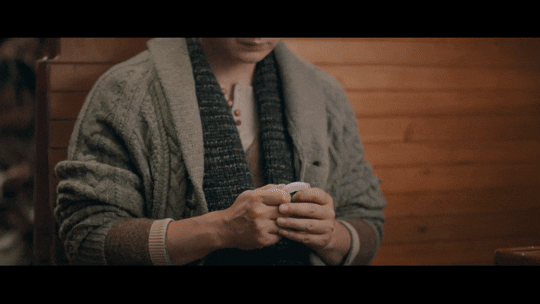

Alright, we leave the sadness behind for some ChengShang gushing moment. So, they are discussing the movie they have just watched. Wait, how late did they stay up?????? Our opera addict Rui Rui comments on the actress acting skills, finding it lowly because all she did is straightened her eyebrow and stare at her costars eyes. LOL, oh Rui Rui, you would have a tough time watching half of the TV dramas’ actors and actress, some who are so wooden you wonder how they got their part or fame. He compares her to his acting skills, especially her posture and voice, along with the lyrics she sang. He finds it too simplistic. LOL. He adds that Du Qi would have had a fit if he heard that. I doubt it, since Du Qi lived abroad, therefore as a better knowledge of cinema. Er Ye tells him he thought it was good because it relieves boredom and doesn’t require too much thinking. True, unlike a play, Broadway show or opera, which demands more attention, movies are simple entertainment that can be mindless fun. He says that unlike movies, watching operas can take 3 days for the entire opera to finish. GEEZUS. Yeah, I cannot, sorry Rui Rui. Not only that but you have to know the right time when to shout bravo, when to sing praises, so many freaking rules. If you don’t know the rules, you get ridiculed and called an amateur by an useless sperm donor. It might be too demanding on the audience. Rui Rui asks what does Er Ye like to watch. Er Ye tells him he used to watch movies, but now he prefers watching opera, specifically Shang Lao Ban’s operas more. He tells him that whatever role you play, you bring it to life. It is like he is inhabited by many souls. Whenever he puts on makeup and costume, the soul will borrow his body and come alive while he is on stage. Once he leaves the stage, the soul departs but the story stays alive in him. Rui Rui tells him his writing sounds just as good as Du Qi and is flattered by the compliment, asking for more. LOL, greedy queen.


Er Ye is like, who asks for compliments like that, beside you got so many people praising you already, you don’t need me. Rui Rui tells hubby that his words means more to him than others. Er Ye is like fine, I’ll shower you in compliments. Guys, you better get your salt vapors because the next line might make you faint and ask how the fuck did this get past censors. Ok, so I am directly quoting here: “Shang Lao Ban is like a flower, or a fire that only cares about blooming for itself, flaming in a blaze. For those who likes watching you, you will do your best to show it to them. For those that don’t like watching you, you won’t try to appeal to them by changing yourself and go against your own will. You are such a popular ju’er, but you can still live so freely. This is truly extraordinary. Very rare! It’s true innocence. Everyone says someone like Shang Lao Ban who is so talented can only be looked from afar. Others do not dare to walk shoulder to shoulder with him. Except for me, Cheng Fengtai, who is willing to go into the fire and stay by your side.” I WANT MY CHENG FENGTAI. WHO DO I NEED TO GOAD TO HAVE ONE?????? Rui Rui is so taken aback that he stops walking to look at his hubby.
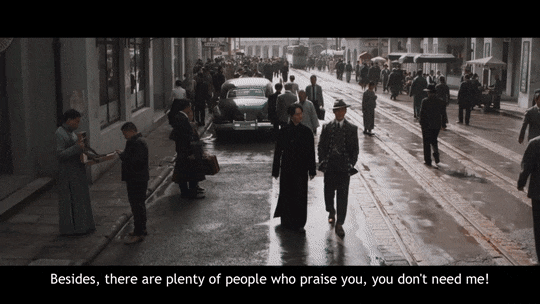
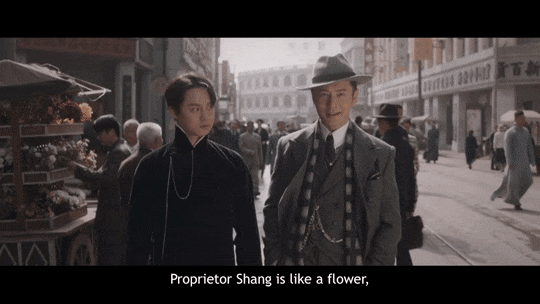



Er Ye asks what is it. Really Er Ye, after saying such words, you ask him why he is stopping in his track?! Awww shit, trouble is brewing as we heard voices from an alleyway. Rui Rui follows the voices and runs up to the alleyway, followed by Er Ye. A woman is fighting off two lecherous dudes. Rui Rui is pissed, probably thinking of his sister if she were in this situation. He kicks one of them and threatens the lecherous men. One of them tells the woman she should have told them she had a lover. Man GTFO with that shit. The woman recognizes him as he asks if she is okay. Er Ye is like, goddmammit, another fan trying to take away my bae’s precious time. LOL, Rui Rui is like, awww shit, yeah, grabbing his hubby so he wouldn’t have to deal with the fangirl. She blocks their path and tells Rui Rui she’s been looking for them. He is like, que? Who are you? She seems to struggle to say.
We see a man wearing a cast with a bottle of booze. Oh My GOD, it’s my bae Chen Renxiang!!! NOOOOOOOOOOOO. Rui Rui asks what happened to Chen Lao Ban to be in such a state. It turns out the woman is the talkative prostitute from Nanjing who had taken Chen Lao Ban away before meeting Liu Hanyun. She had sought her freedom from the brothel and come to him in Shanghai. Upon her arrival, he was already in such disheveled state. Rui Rui asks his bae and the ex-prostitute to leave the room so he can have a heart-to-heart with Chen Renxiang. Rui Rui believes Chen Lao Ban put himself in such a state because he lost the competition. He tells him if he had been the one to lose, he would have done everything to better himself so he could fight him out once more. He had been impressed by how he had defended him against his uncle, seeing him as a hero so how did he become such a coward? Chen Lao Ban still remains quiet as Rui Rui lambast him, saying unlike the ex-prostitute he would have left him to die since he doesn’t seem to care about his own well-being. He sets out to leave when our sad ju’er finally speaks. He tells Rui Rui that he is indeed a coward and that the girl doesn’t care that he lives or die. Rui Rui yells at him that he is ungrateful dog for ignoring all the effort to girl has made to seek Rui Rui out and beg him to help Chen Renxiang out. Xiang Xiang replies that he is not talking about the ex-prostitute named Yueling, but his Shanghai girlfriend he had mentioned when they were on their way to Shanghai after the Liyuan Association incident. Apparently her parents did not approve of their relationship, thus the lovers decided to elope, however, they were caught by goons hired by her family. They broke his leg and dump him barren fields while taking her back home. He asks Rui Rui if he wasn’t a coward, what would he be? Rui Rui is like, yes, you are a coward since his girlfriend probably as no idea that he is injured and hiding out getting drunk off his ass. How would she know he is alright or care whether he is alive or dead if she doesn’t know where he is. That makes him an ungrateful dog, which Xiang Xiang tries to deny, but Rui Rui interrupts him telling him he thought of an idea for him to help him reach out to his girlfriend. Get his leg treated, so he can perform opera with Rui Rui, like this everyone in China will be talking about it, thus his girlfriend will be able to find him. Isn’t it better than him being a drunken stupor? This seems to bring a bit of hope to Xiang Xiang until he remembers the conditions of their bet. Rui Rui laughs at that, telling him he wasn’t serious about not letting him perform for a year. He tells him he will find a doctor to help set his leg back and that he needs to clean up and stop drinking. Xiang Xiang thank him for being his savior, but Rui Rui doesn’t want to hear his gratitude, he just wants him to perform well on stage as a thank you. Btw, even disheveled Tan Jian Ci is one sexy bish.
It takes everyone to help calm Xiang Xiang down while the doctor tries to set his leg. LOL, Rui Rui tells him that a girl is looking at him while he screams like one. The doctor gives Yueling some after-care directives. Rui Rui asks the doctor if his leg will get better, but the doctor is slightly optimistic. Sugar daddy and husband of the over eager penguin asks to speak to the doctor away from the sensitive ju’ers. Xiang Xiang senses something is wrong as he repeats it is destine disaster, then laughs. Rui Rui thinks he’s cray cray, but Xiang Xiang tells him he is laughing at his uncle Jiang Rongshou for having a useless son who he cannot impart his skills to, which kept him from teaching his fairy steps to anyone, until he finally taught it to Xiang Xiang, but now he is crippled, the Jiang Family fairy steps will be lost forever. Xiang Xiang tells Rui Rui that he got his revenge against the elder Jiang, but Rui Rui does not seem to gleeful at the prospect, which even gets Xiang Xiang attention. Rui Rui is like, yeah, I am on bad term with the old fart, but I have nothing against the Fairy Steps. In fact, it would hurt him to see such a superb skill get lost. WHY ARE YOU SO PRECIOUS???? I cannot, he is to sweet, my baby boy!!! Xiang Xiang bemoans the fact that he learned the skill so late in his career, having little time to master the essence of the skill. If he had learned it since he was a kid and hone the skills for years, he probably wouldn’t have lost against Rui Rui, who agrees. AGAIN WHY ARE YOU SO PRECIOUS? Xiang Xiang reveals that when he returned to Shanghai, an Italian fan asked to film his fairy steps and show them in Italy (damn, they were that popular!!!), but they didn’t agree on the price and he worried about his uncle’s objections, so it didn’t work out. He also regrets not taking any disciples to impart of his skills, and now he ponders who would remember his performances. STOP IT, OMG, I CANNOT ANYMORE. My Xiang Xiang is so depressed!! Rui Rui gets philosophical and replies the current situation is too precarious, especially for performers who may not have time to pass down their skills on time. What would be left for future generations to appreciate. Xiang Xiang replies that life and death go hand in hand, and that ups and downs are inevitable. This sounds like a man who has given up. I am balling. Rui Rui tries to comfort him, telling him to stop spitting such depressing things like life and death. How can he be dead when he met him. LOL, oh Rui Rui. He advises him to just live his life and that his girlfriend still waits for him. Xiang Xiang is like, you are right, I must live well and wipes his tears away.
Alone, he dreams about that fateful day when him and his girlfriend were running away from the goons employed by her family. Out of breath and tired of running, Renxiang decides to send her to hide while he deals with the goons, but unfortunately, she is taken away. As he asks the goons where she is, one of them taunts him, talking about his fairy steps and how it mesmerized the first miss (his girlfriend). Wait, what? DIdn’t he have this girlfriend prior to learning the Fairy Steps? I am confused. The man tells him he must break his legs so this filthy actor would not seduce any more young ladies from other good families. DAFUQ. I am tired at how everyone is looking down at opera actors. Even servants act uppity towards them. They are good enough to sleep with and be toys for the rich, but they can’t have meaningful relationship with them? That is fucked up. He wakes, all sweaty while Yueling comes in to bring the medicine. Then we switch to him doing some physical therapy with the crotches. The doctor tells him he is recovering well and Xiang Xiang presses him to find out when he could go back to the stage so he can reach out to his girlfriend. Yueling is like, no way, you are still recovering! It is clear that she loves him, but he is too enamored with his little rich miss. The doctor agrees with her, but Rui Rui is like, who cares about your legs, your voice is not harmed, so we’ll perform a literary piece and he will take of him on stage. Er Ye just stands there, smiling at his smol husband, and I can’t fault him for that. Xiang Xiang seems encouraged by Rui Rui’s pep talk, but Yueling is not happy.
That paper boy is busy af with Rui Rui selling newspapers like hotcakes. He announces the joint performance of Chen Lao Ban and Shang Lao Ban. Oh my Xiang Xiang looks good!! Oh wait, his twin Rui Rui, also wearing a white gown. Xiang Xiang is anxious while Rui Rui tells him to get ready for their performance. Apparently Xiang Xiang is waiting for someone, perhaps someone who had news of his girlfriend or his girlfriend herself. Rui Rui replies that he has been waiting for days and there has been no news. Maybe he told her about his family and she may have gone to Beiping to find him. Right at that moment, someone asks for him. He delivers a letter for him.
We see him looking at picture. Behind it are words written: “ We are not destined to be together in this lifetime. Hope we’ll each live well separately.” OH NO, it’s the girlfriend! I cannot figure out Xiang Xiang mood at this moment. It is kind of indescribable. Then, as he rubs the foundation in between his palms, a tear falls on the back of his. Oh my poor baby looks defeated, yet, a strange smile is on his face. He talks to himself as he stares at the mirror asking why he looks like a ghost. He tells himself that he looks ugly and depressed. I CAN’T CONTINUE, I AM CRYING TOO MUCH. I have a bad feeling about this guys, I just...sigh. He continue saying that he no longer wants to see himself anymore. Tears are forming in my eyes, everything is blurry.
We see him on the stage and the audience is asking why this third sister is carrying a sword. This is not part of this opera, so they wonder if they changed the opera at the last minute. My Xiang Xiang looks beautiful while the other actors are asking the same question as the audience. His character, Sister Yu is not supposed to have a sword. Even the orchestra is baffled. Seriously, who allowed him to carry the sword? Isn’t there anyone to take care of the props? Where is Rui Rui? Xiang Xiang starts singing without the music when Rui Rui finally appears. I guess he was still in his room getting ready. One of the actors asks him what is going on. I don’t think Rui Rui has any idea. He looks at the audience for their reactions and can see the confusion on their faces, but they remain quiet, no booing. The lyrics seemed to encapsulate his life, especially the moment that effectively broke his heart, destroyed his soul. Oh my God, no amount of makeup is able to cover the sadness on his face. GAAAH, and now this show has decided to rip out my heart and step on it, as Jiang Rongshou is seen, lounging on his chair, eyes closed. NOOO, SHOW DON’T DO THIS TO ME!!! We can hear Renxiang singing while we see Jiang Rongshou reaching out for his tea cup, but knocking it down. Oh, I know what that means in dramaspeak and I don’t want to see it. NO SHOW, please, don’t do this!! We see my lovely Xiang Xiang swinging the sword and cut his throat, much to the surprise of the actors, including Rui Rui. OH MY GOD I CAN’T. Jiang Rongshou is feeling some malaise as his son comes to see what is wrong. As Dengbao cleans up (despite my dislike of him, he is really a filial son). Jiang Senior shakes his head and says he doesn’t know. He’s been dozing off today and then asks if the young actors are still training. Dengbao confirms, but Jiang senior seems dissatisfied by them and their progress. They can’t seem to get the basic movements right, yet want to learn the fairy steps. He reminisce about Xiang Xiang and how he was able to learn 70-80 percent of the opera at their age. Dengbao replies how can they compare to the very talented Xiang Xiang. Dengbao tells his father to be patient for Xiang Xiang to make the Fairy Steps famous once he returns to the stage, but grumpy papa Jiang reproach Xiang Xiang for not writing to him since he went back to Shanghai. WAIL, he has no idea of the state Xiang Xiang was! Dengbao is like, you know how Shanghai is, Renxiang is probably having the time of his life. Why you do this to me show? Grumpy Jiang is like, yeah, when he is with me, he pretends to be filial, once he leave, he forgets all about me. Sigh, this show knows how to humanize these characters, even the ones you learn to hate. I hate this show. Stop making me have so much feels right now, even for the Jiangs! Papa Jiang cares for Xiang Xiang, wanting to see how he has improved once he return to perform. He dozes off again, and OH NO SHOW, STOOOOOPPPP. Don’t do this, don’t have Xiang Xiang voice from beyond the grave call on his uncle, asking to look at him. Startled, Jiang papa calls out for Xiang’er, asking if that is him. Jiang papa is taken aback and thinks its his old age causing his to have auditory hallucinations. WELP
Back at casa de Er Ye, we see our Rui Rui sitting pensively as he stares at the window. Er Ye opens the door and quietly enters the room. In the most romantic gestures this show encapsulate (they have so many, especially post-baby drama), Er Ye uses his fingers to imitate a camera, wanting to capture his hubby form forever. THE GAY IS EXPLODING IN MY FACE. If you still have doubt that Er Ye is utterly in love with his bratty penguin, I don’t know what to tell you. He walks up to him and sits in front of his beautiful wifey. So damn domestic! Oh my God is Er Ye really saying this right now? The sun has cast a pattern on your outfit. It’s just like dressing with a golden robe? This is too poetic! I want a man like this. Now I am crying again. He bemoans not bringing a camera to immortalize that moment. He probably would have carried the picture in his pocket like he did the one he gave to Rui Rui sister. He adds that if he went to get the camera, the moment would be lost since the sun would set. Rui Rui eyes are closed as he responds that yes, the moment would be gone, nothing stays. I guess he is referring to Xiang Xiang and the whole Shanghai trip. Er Ye agrees that the good times don’t last long, and tells him to take it easy. Rui Rui tells Er Ye that Chen Renxiang died on stage, it’s also considered a worthy death. Is it though? He didn’t with a happy heart, sacrificing himself for his art. He died depressed, realizing that everything he held dear was gone. What saddens Rui Rui is that life is unpredictable. Awww, our boy is learning about the realities of life and shedding a bit of his naivety. He bemoans what it entails to the legacy of the Fairy Steps since there is no one to showcase it on stage, and how an accident could also make his Goddess Dance along with the Shang Family Stick skill could disappear forever. You got to be thankful we live in the modern era where cameras captured all the dances forever for future generation to learn and nurture. Imagine the thousands of dances lost to us because there were no longer practitioners who cared to learn them or died without imparting their skills. This is indeed disheartening. Er Ye gets philosophical and says that God’s intention is hard to fathom and so is a person’s heart. He adds that Rui Rui’s time in Shanghai has widened his understanding of the world, introducing him to foreign things outside of his Beiping environment. Some were nice and fun, and sheer temptations. Even if life was an utopia, without birth, old age, diseases or deaths, it would be hard to guarantee that he would not succumbed to those temptations, wanting to throw away those things passed down by his ancestors (although Er Ye says ‘our’). Rui Rui says that he won’t, to which Er Ye replies that he might not, but can he guarantee that his apprentice won’t? That subsequent apprentices won’t? You cannot predict the future, nor can he predict what people or God have in store. The only thing that could remedy this is to encapsulate it on film, so it can be passed down for a long time. I agree with Er Ye on that point that movie is long lasting, but in a time of war, films can also be destroyed, either by fire or by enemies wanting to push their propaganda. Anyhoo, Rui Rui is not ready to agree to it, stating that a camera can only shoot the form of a person, there aren’t any details. It is the degree of the expressions, measurement of the footwork, the precision of the hand movements, that can be captured accurately on film and be used as training tools by future generation. He adds it is like drawing a tiger with a cat as a model, the kids would learn the wrong things. Er Ye replies that Rui Rui makes film sound useless, it is no wonder he is unwilling to make records. LOL, he practically called Rui Rui a technophobe. Rui Rui replies it is because he place too much importance on the audience reaction, he doesn’t dare to be careless about all those details aforementioned. He lives for the audience, wanting to be sure they enjoy themselves. Wait, honey, you seem to have no problem provoking them by changing the lyrics. What gives with this talk of hesitation!? He states that he would rather be tired and take on more apprentices to teach them. Er Ye questions this, asking him how long it would take for him to meet an eager disciple like Xiao Zhouzi. How much effort will it take to turn on into Zhou Lao Ban. Yeah, he lucked out with him because the boy was an innate talent. How many out there have such capacity? Rui Rui replies that he will take his time and misses him home, and troupe. Er Ye sighs and says that he also misses his home. Btw, they’ve been in Shanghai for more than a month (probably three at the time they are talking). Ugh, I wasn’t expecting to see Er Nainai so quick. She is still doing accounting, closing out the books for Shuiyin Lou. LOL, she ended up doing the accounting for them after all. Oh oh, she is thinking of Fengyi. That’s not a good thing.
Oh shit, she comes to Shuyin the next day. What is she planning? She is greeted by one of the actors, who tells her they’ve been diligently training and improving upon the things she taught them. Shit starter Shi Jiu does not seem to approve of this ass kissing, and I don’t blame her, especially since he throws his troupe leader under the bus or rickshaw. YOOOO, this maid is opening her mouth again? Shut her up. She once again insults the performers saying their pitch is higher than her bird. SHUT YOUR MOUTH. I have it up to here with her arrogant ass. Shi Jiu is about to tongue lash this bish, but is stop her Rong Lan. Er Nainai states that their boss can easily remove himself from an undesirable situation. LOL, cannot blame him for you suddenly appearing and ordering him around his own house, sweetie. Not only that but you insulted him, looked down upon him, in his own house! Anyhoo, she adds that he left her a big mess that she had to take care of. She had to set order in this house, give them some rules (gurl, they were fine without you).
Best girl Xiao Lai brings her some tea while they sit in that same room where she insulted my baby. Sigh, I really don’t want to talk about the maid, she leaves such a bitter taste in my mouth. She is soiling Shuyin House with her presence. She insults my Xiao Lai by looking down on the tea she has prepared for Er Nainai, saying they brought their own with such indignation, as if the tea was made with piss. I don’t think I have ever hated a character for simply existing. Good job on the actress for being so irritating. Wait, no, I have always hated the maids on C drama. They are insufferable, act haughty af depending on their mistress status, and are the biggest bullies. Er Nainai is like, someone is missing. The troupe responds that everyone is here and that little shit replies that no, people, Er Nainai is talking about the baby. HOW THE FUCK WERE THEY SUPPOSED TO KNOW. Dasheng replies the baby is in the room away from your ugly face. No Rong Lan, don’t do it, let that little shit do some work instead of running her mouth! Rong Lan brings Fengyi to Er Nainai. Sigh, don’t that little shit get anywhere close to Rui Rui’s niece! Well, at least Fengyi is softening Er Nainai who states the baby can catch a chill if not covered properly and tells her servants to take out the items she brought. Lol, even Shi Jiu notices the change in behavior, claiming that Er Nainai went from Empress Dowager Cixi to a living Buddha. Rong Lan is like, well at least with Er Nainai growing closer to the little Goddess of Wealth, Er Ye would not have any problems bringing her home. Shi Jiu does not approve and agree with my shit starter. DAFUQ, is that little shit bossing the actors around. GTFO. Who allowed her to speak. Fuck this. Ugh, I don’t want to hear her voice anymore. She tells her boss that she doesn’t understand why she cares so much for the baby since she has unknown origins. Seriously, GTFO. Er Nainai replies the child should not be punish for the adults’ sins. Wait, is that little shit still believe Er Ye is the father? Bish, go away, get out of my screen. I wished Fengyi would cry so hard to make her deaf. I hope Xiao Lai would disinfect the area when they leave. Gotta get that stank ass out.
Okay, I am done bishing about that maid. I seriously don’t know why the show had to aggrieve me with her presence. Did I do something in my past life to suffer so much? Talking about suffering, why did you kill my Xiang Xiang, show?? I had expected a death similar to the ending of Farewell my Concubine, but I did not expect it would be him. However, in hindsight, his words spoken back in Nanjing revealed his mindset about life. He had admonished Rui Rui for being solely focused on the opera with no outside distractions. For him, his girlfriend offered the distraction he sought outside of the opera. Without her, and without his ability to perform at 100 percent due to his injury, he was left to nothing. The true coward in this depressing episode is Chen Renxiang’s girlfriend, who bowed to her family pressure and married a man she didn’t love. Unlike Yu Qing who willingly left her family behind for an uncertain love, Chen Renxiang girlfriend gave up a willing love for her family. The constant reminder of how people looked down upon performers acted like a shadow permeating this entire episode. Even with the bookending scenes involving the maid, we see the indignation, the dislike towards the performers. Despite their fame, they are look as trash, good enough to admire and even bed, but not good enough to truly respect. It’s a constant theme we are shown throughout the show. Even Rui Rui, who cares so much about the audience, can’t escape this reality. Perhaps why we have that moment when Er Ye tells him he would walk through fire to stand by his side, because only Er Ye seems him as his equal, who respects him and only wants the best for him. Hence the talk about capturing his skills and likeness on film. Sigh, will Rui Rui give in and let him film him so the future generation can gain an appreciation for the art the same way he has?
7 notes
·
View notes